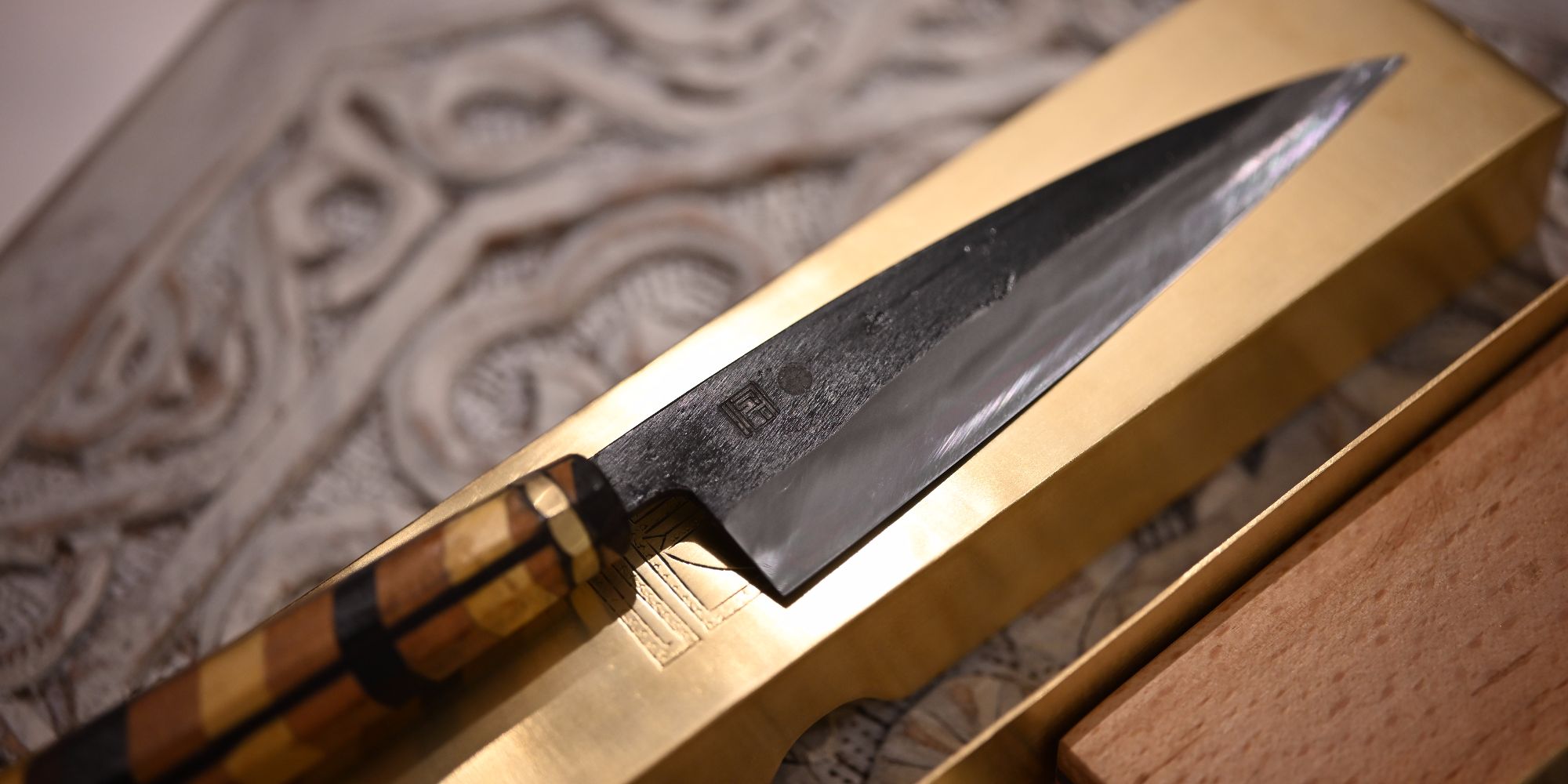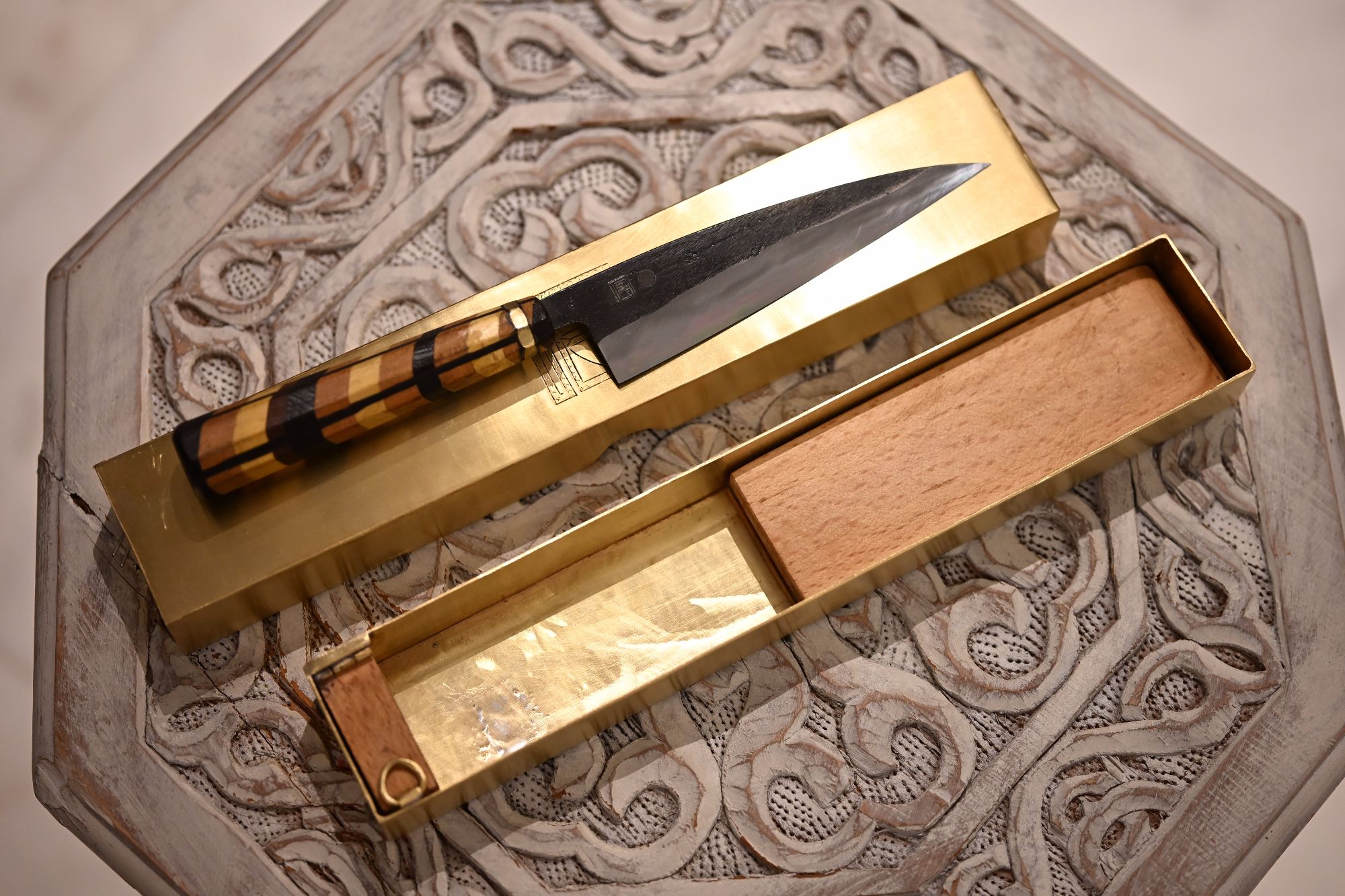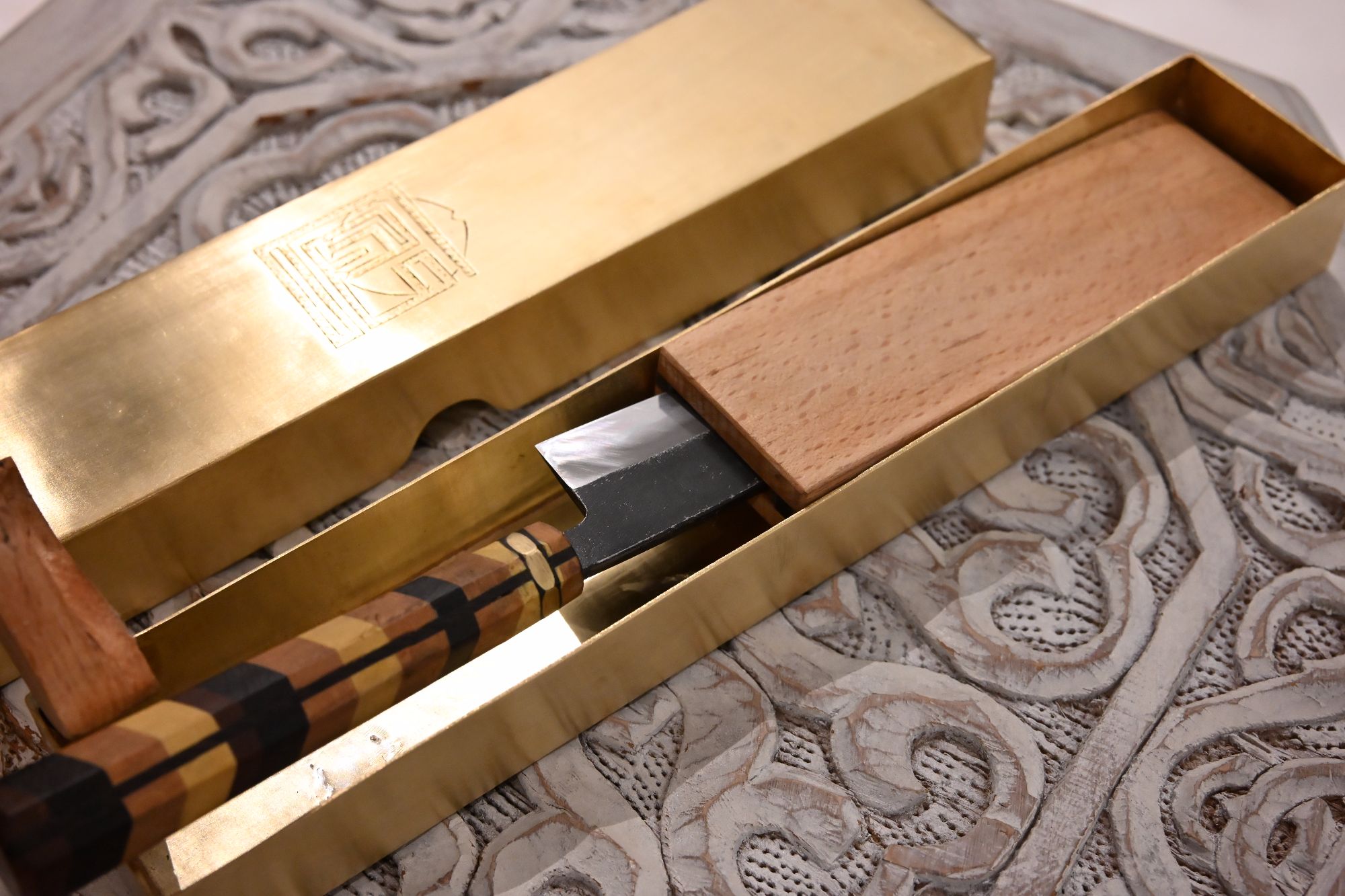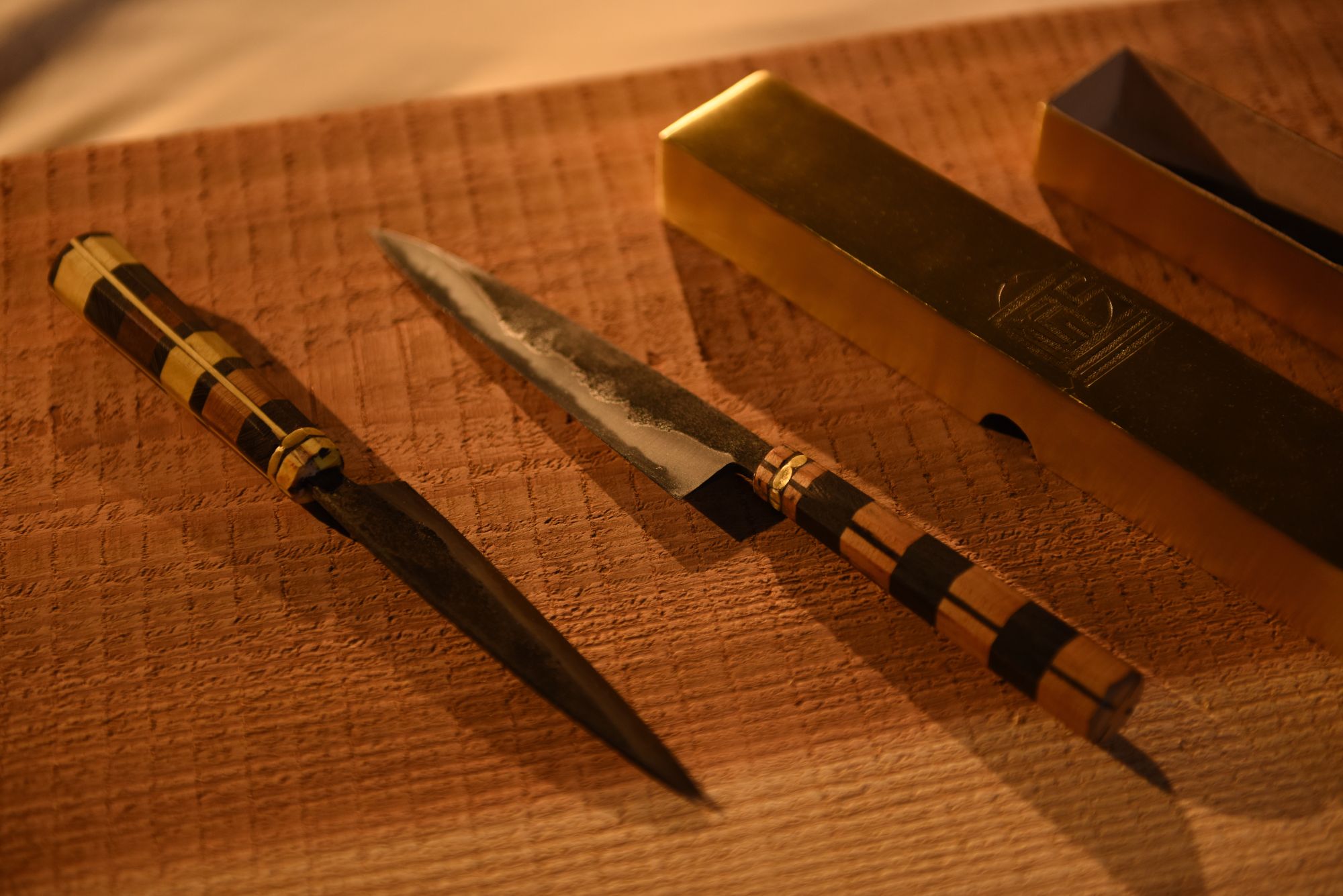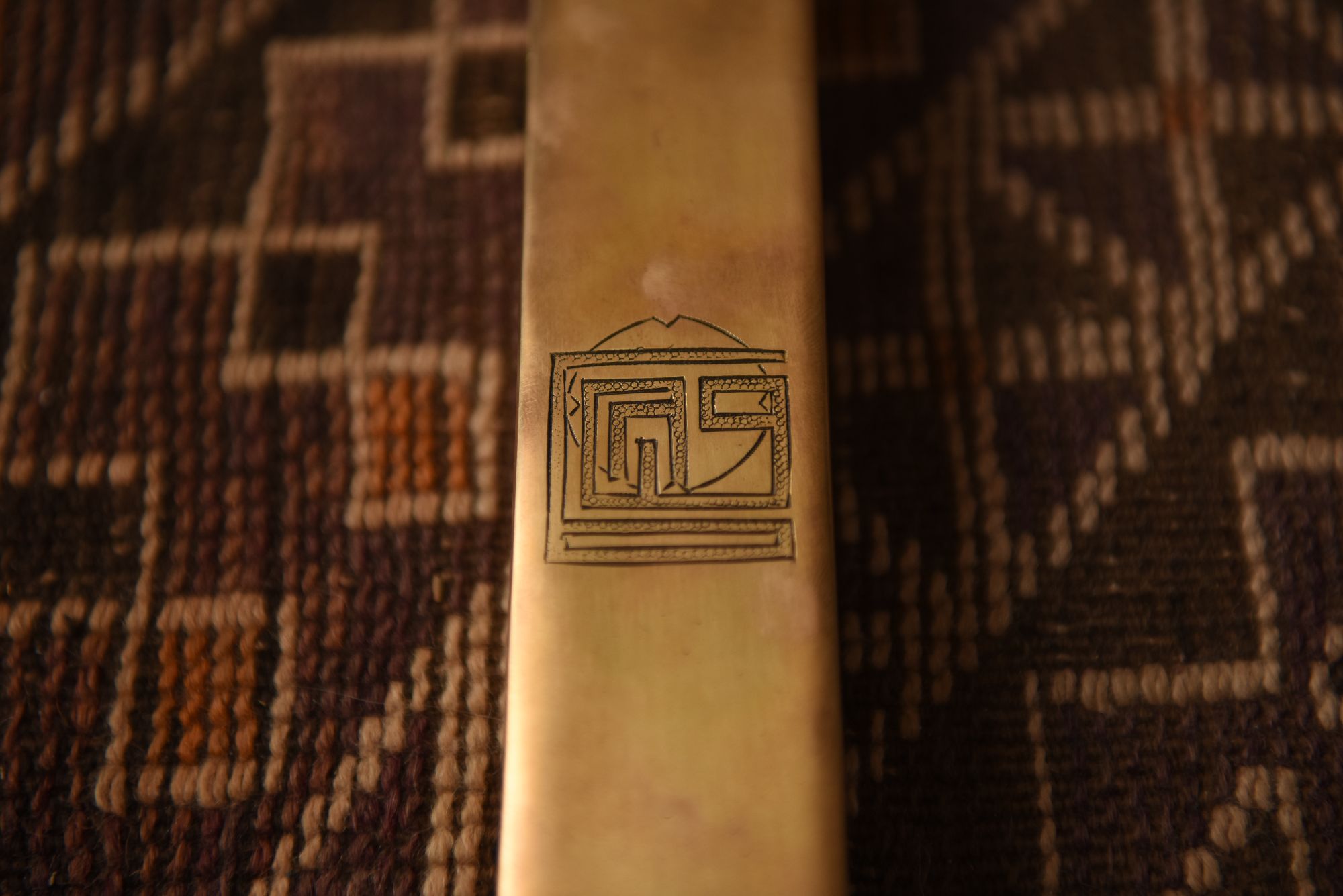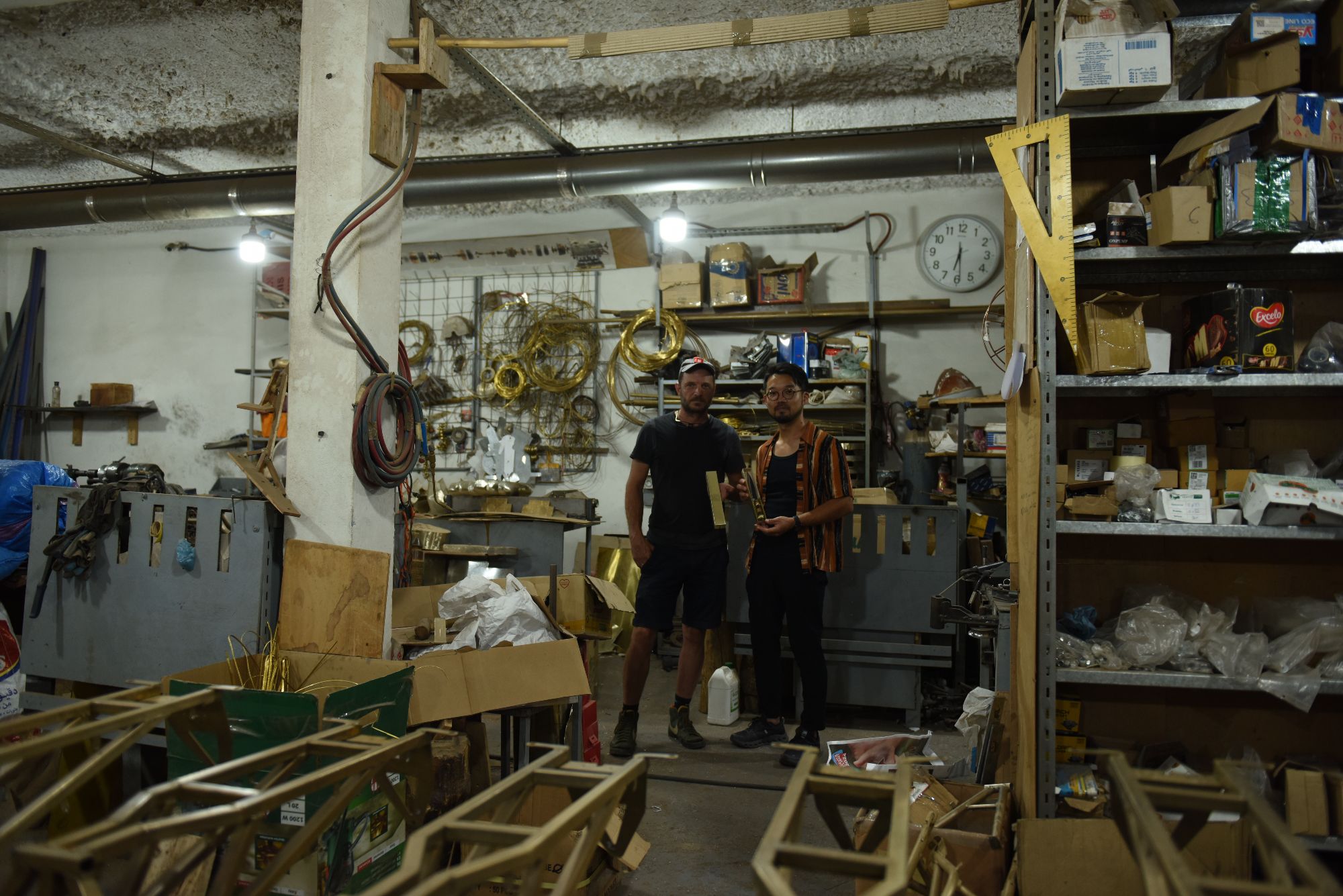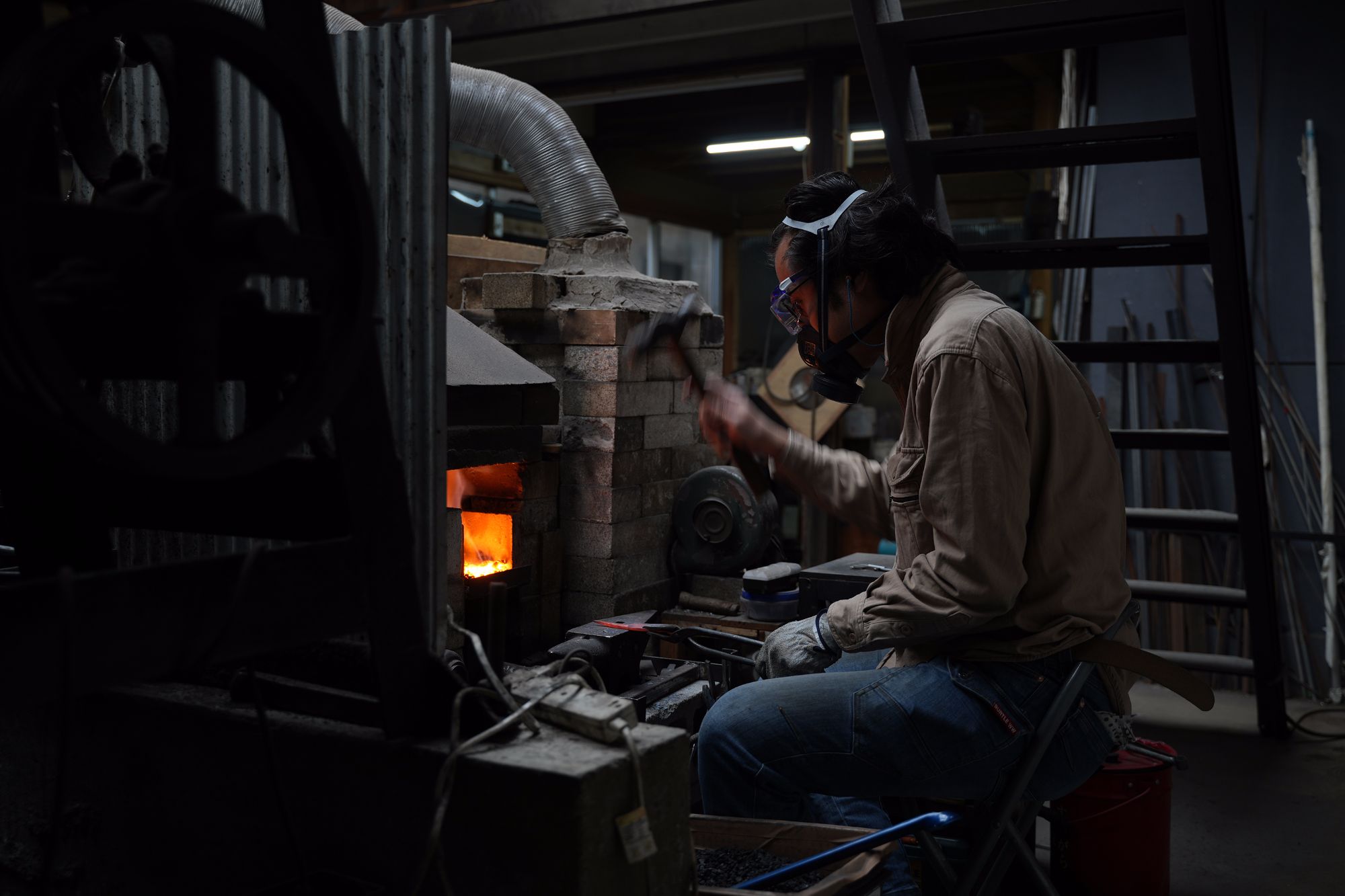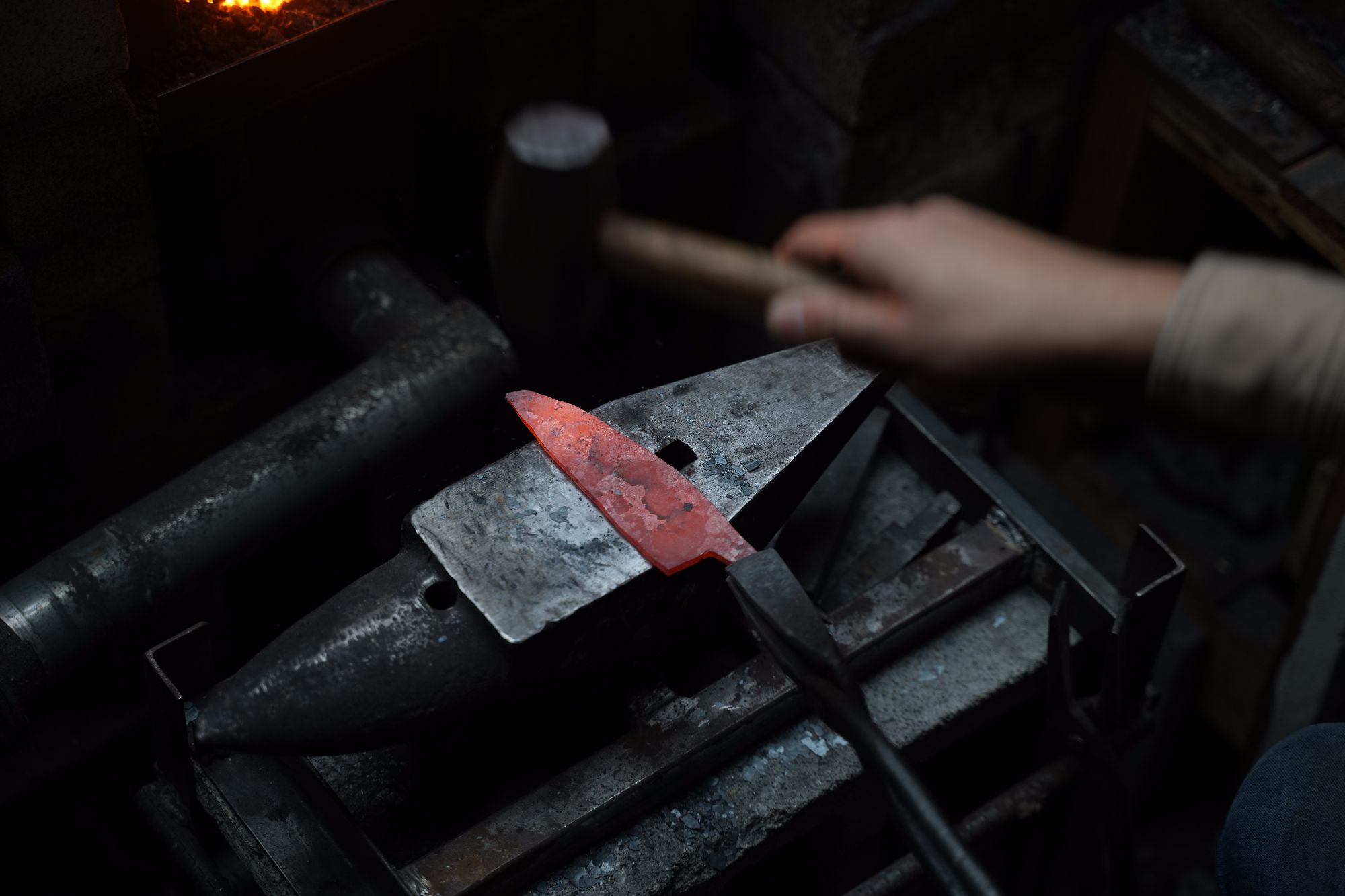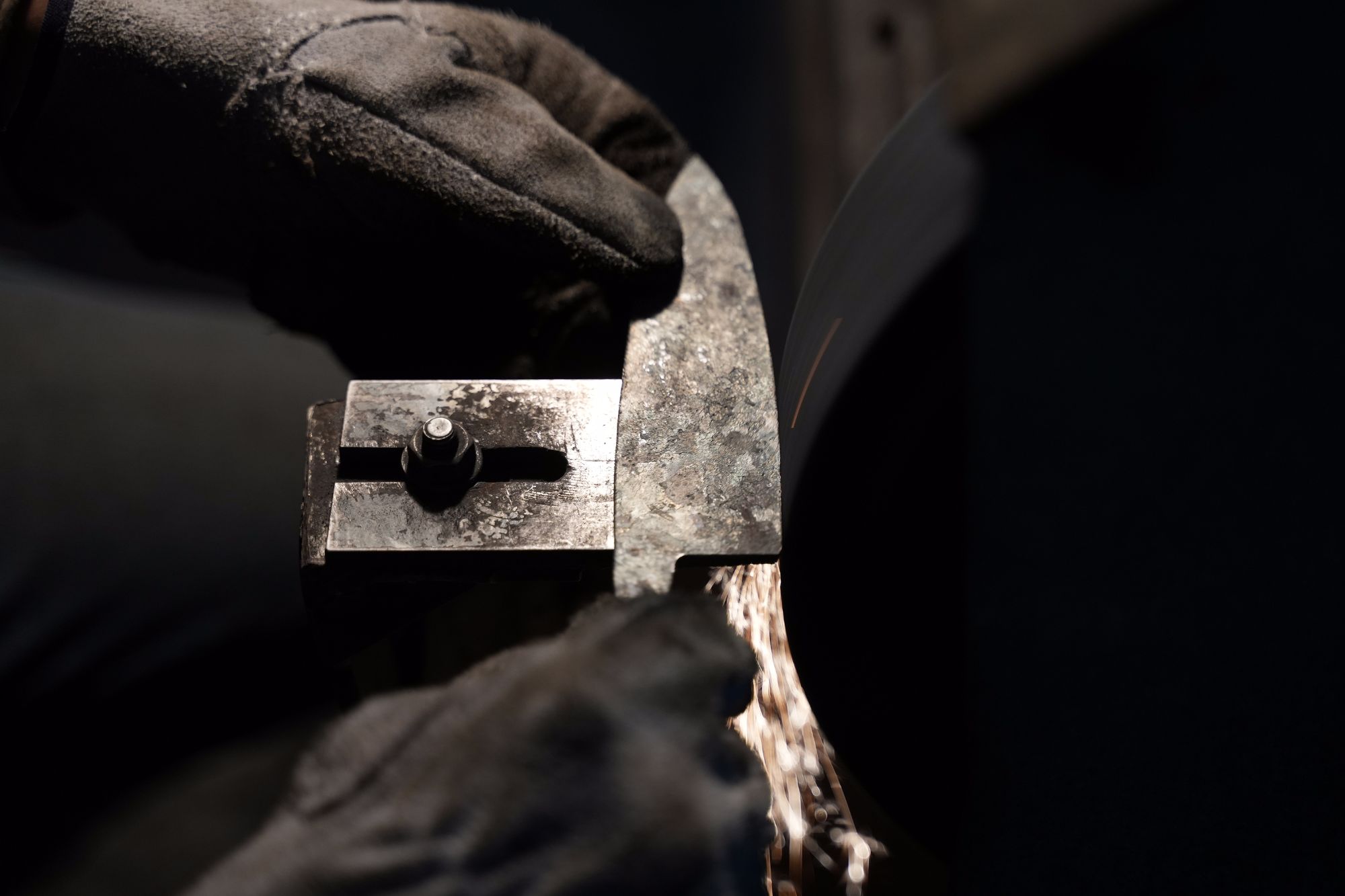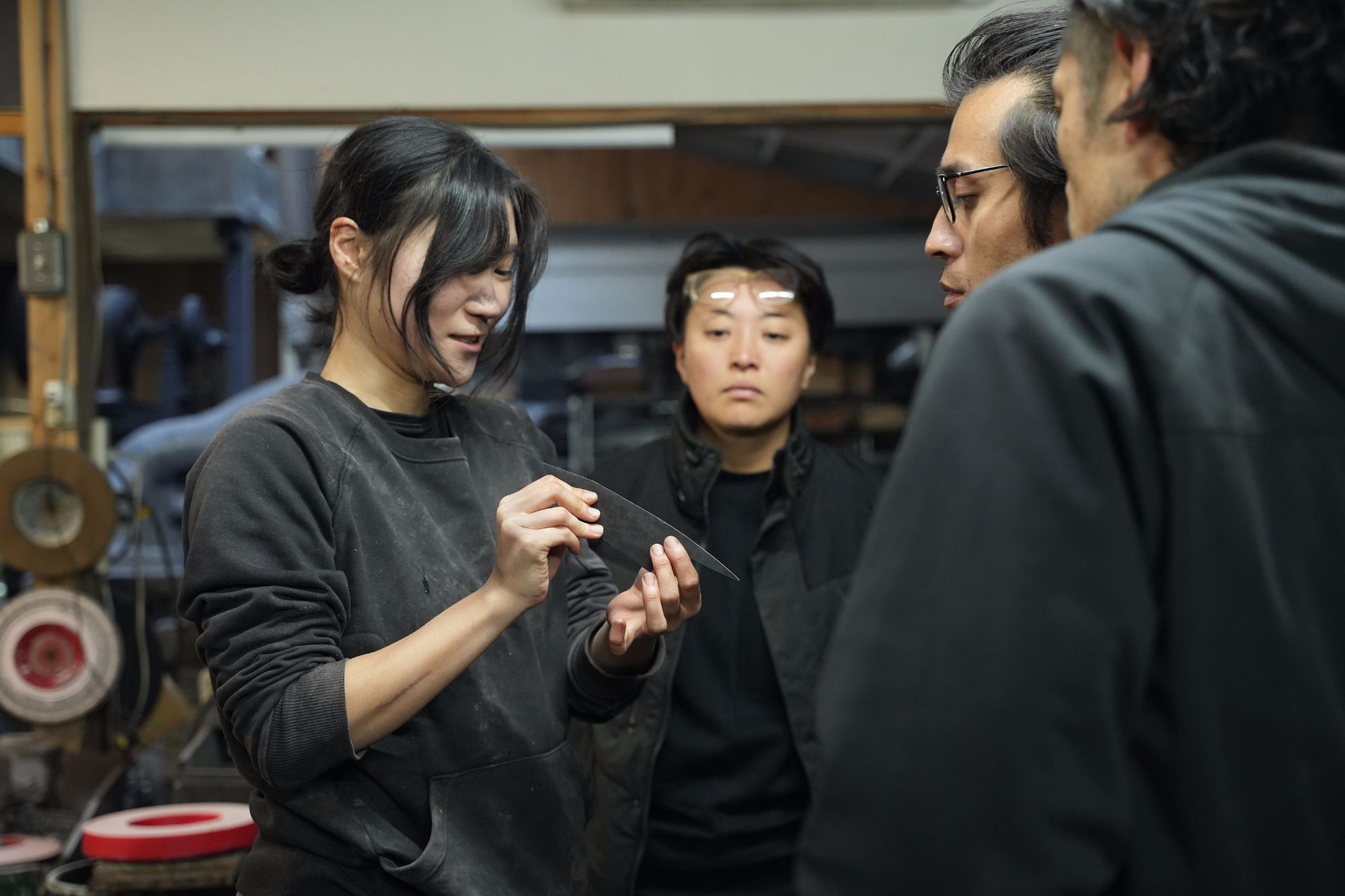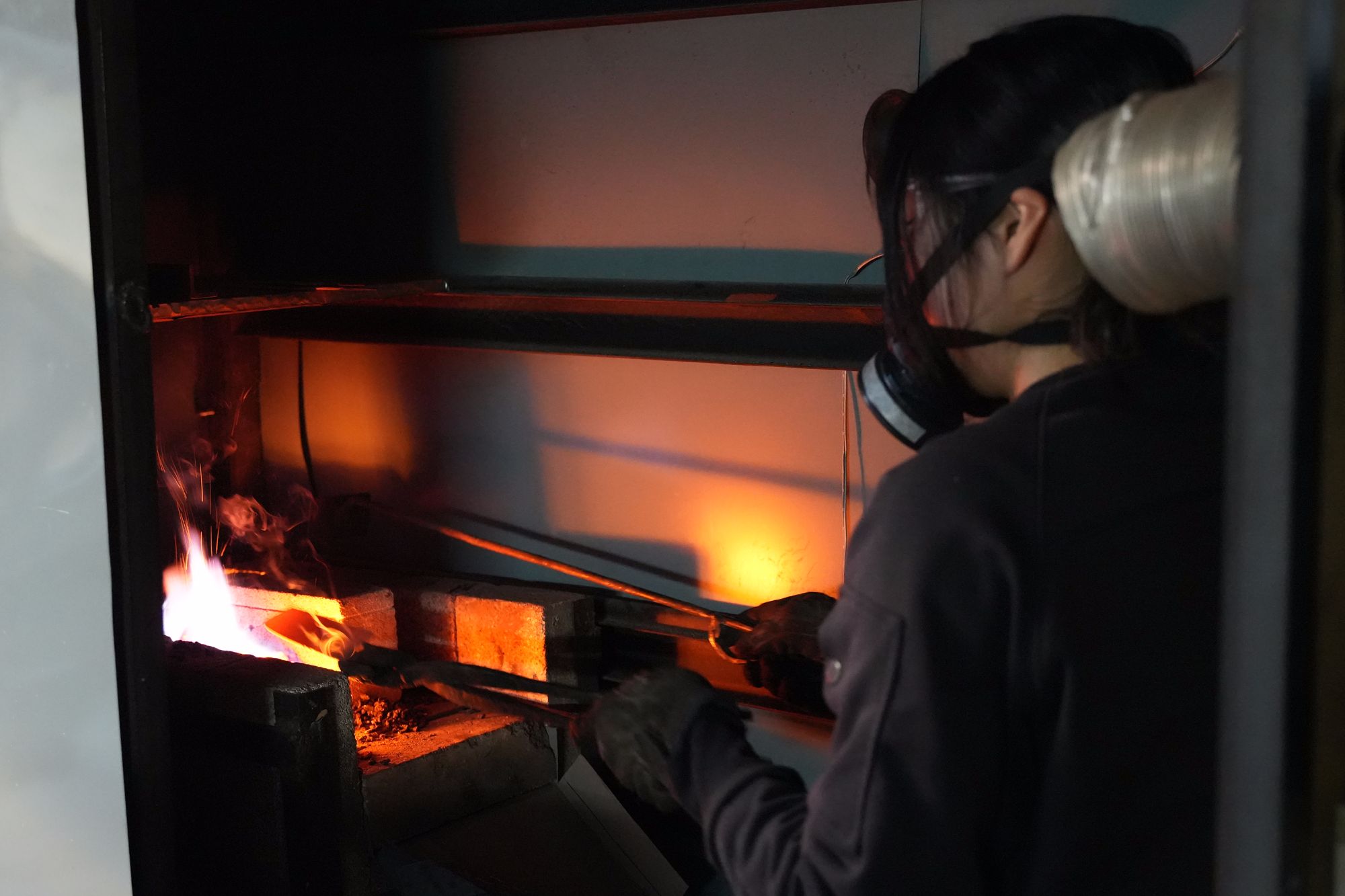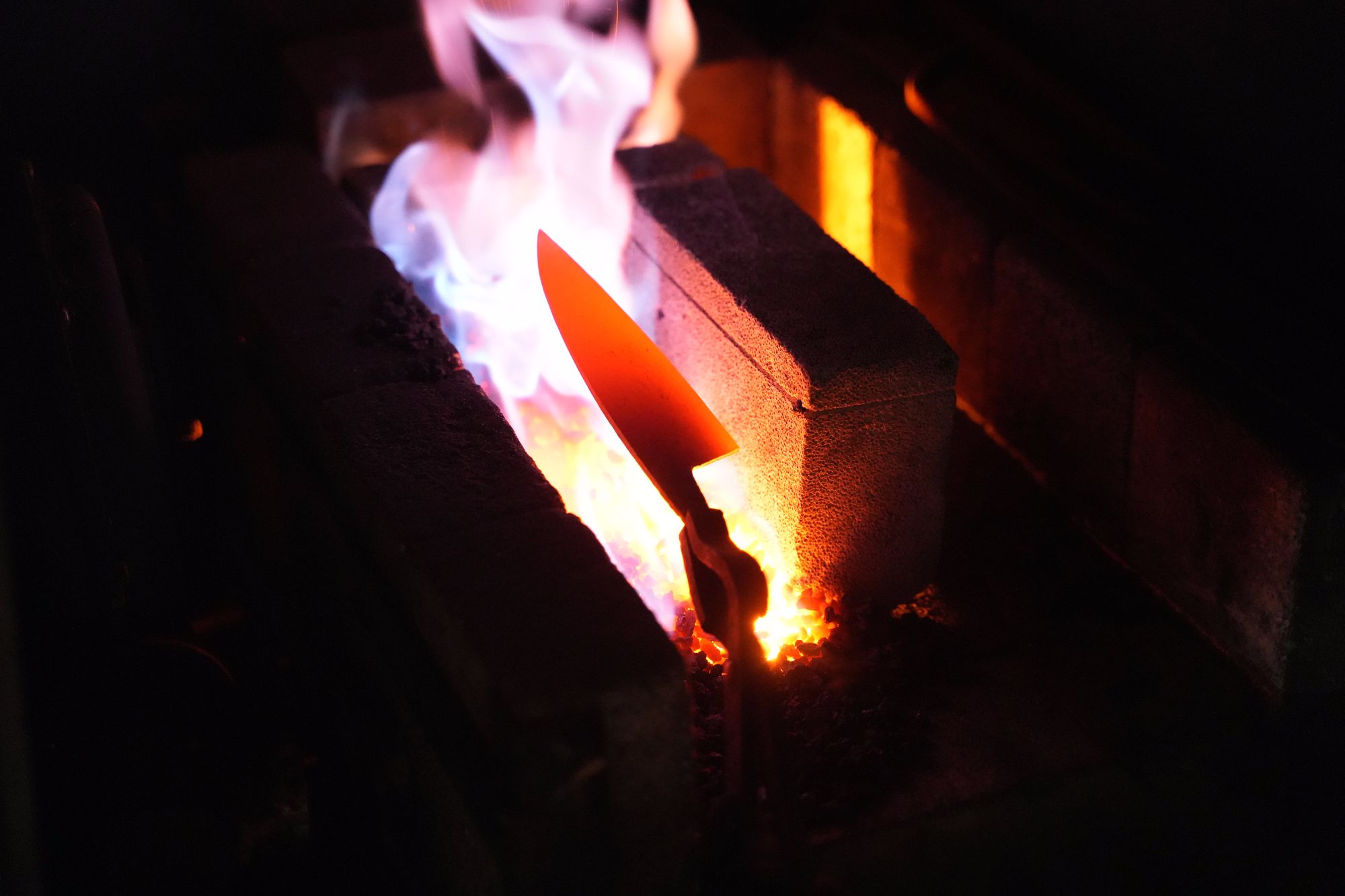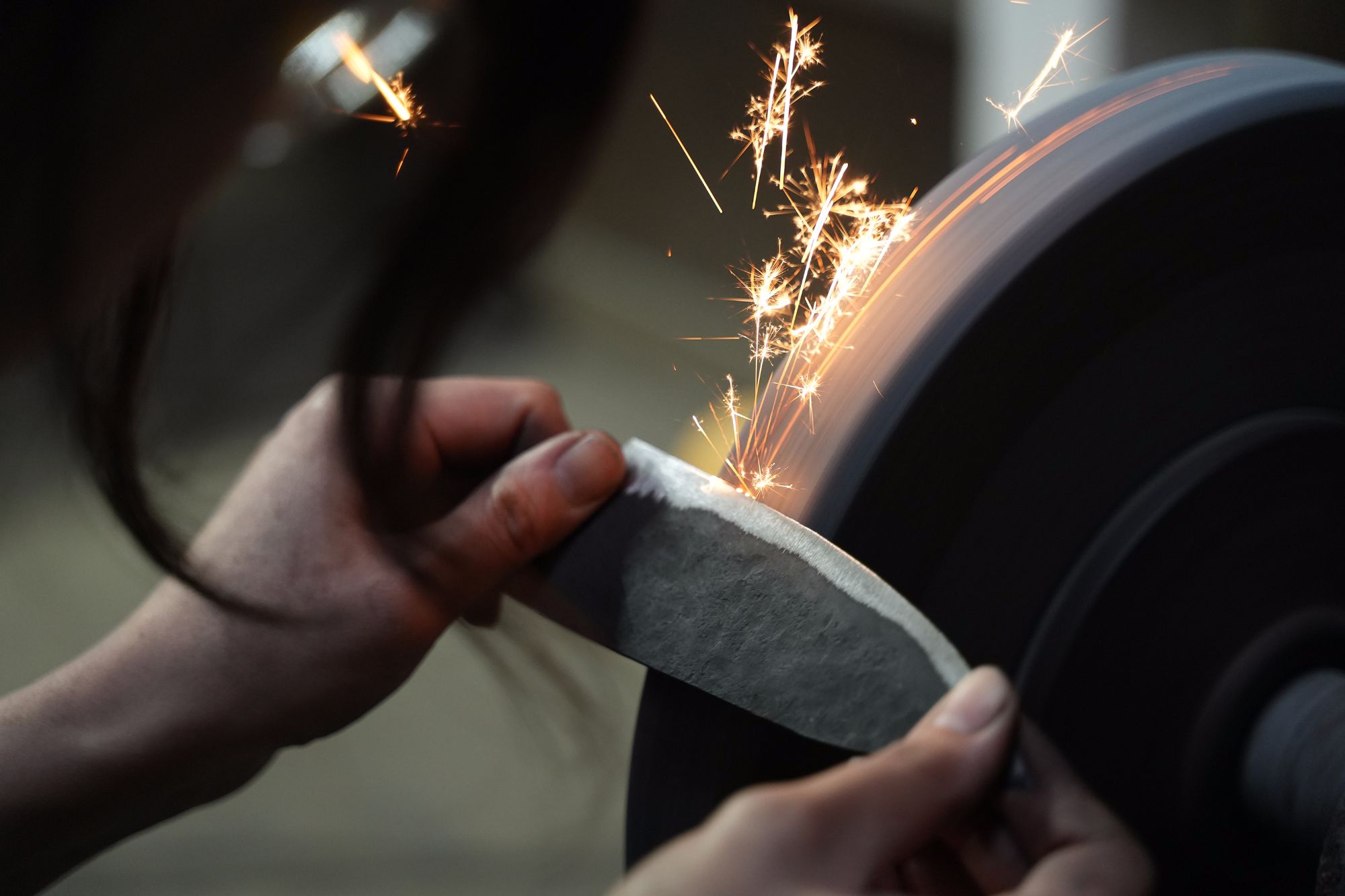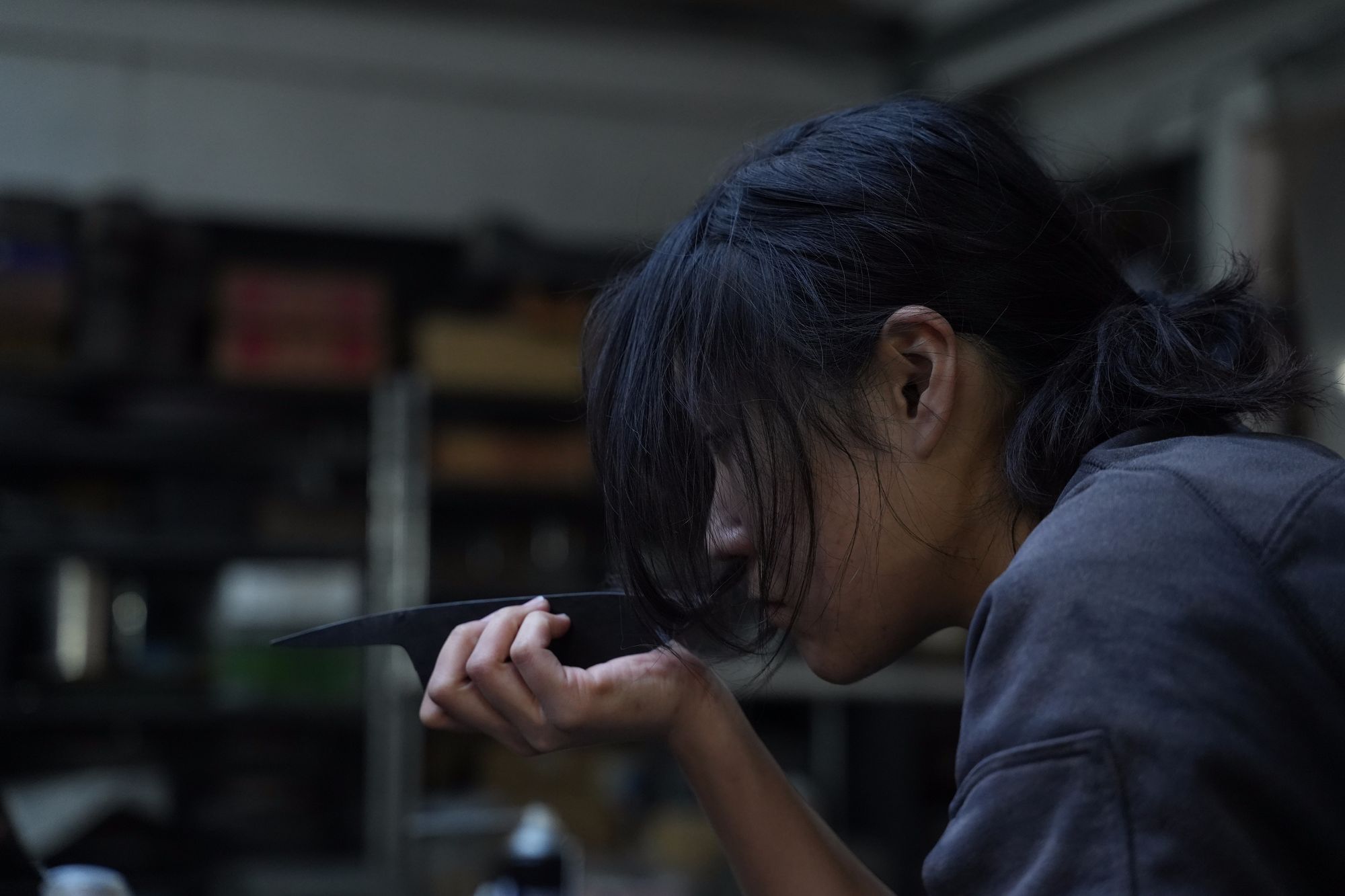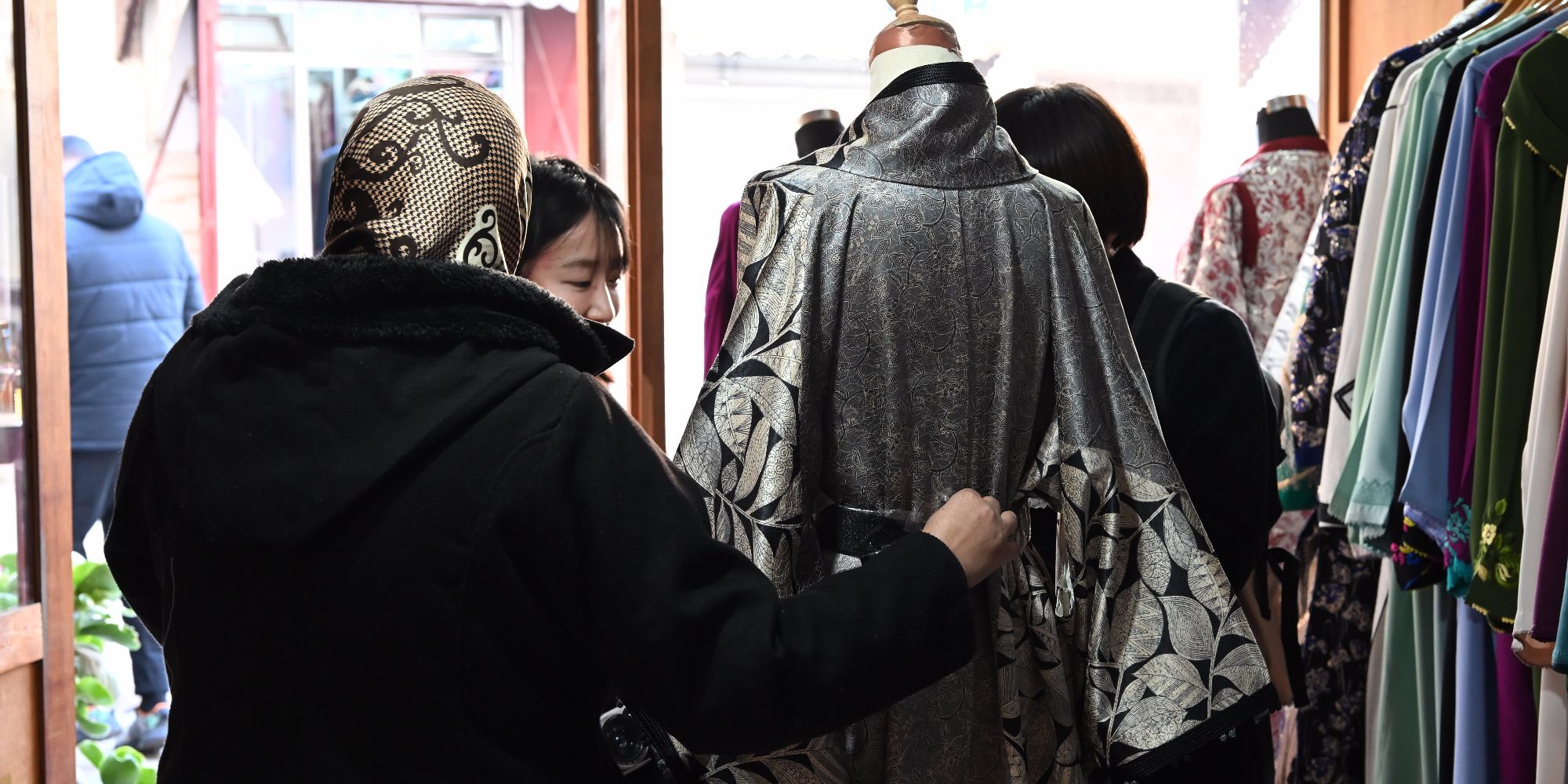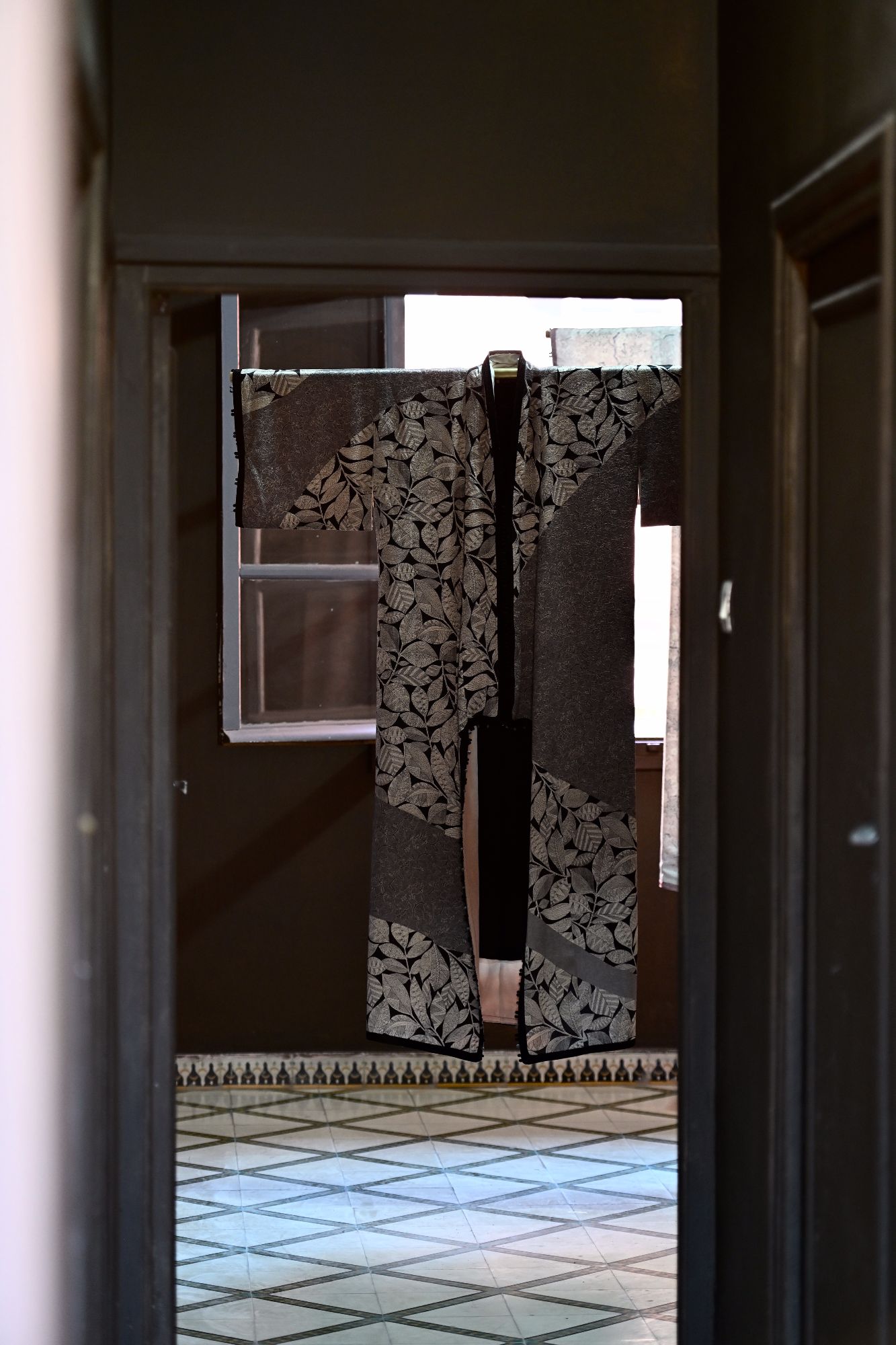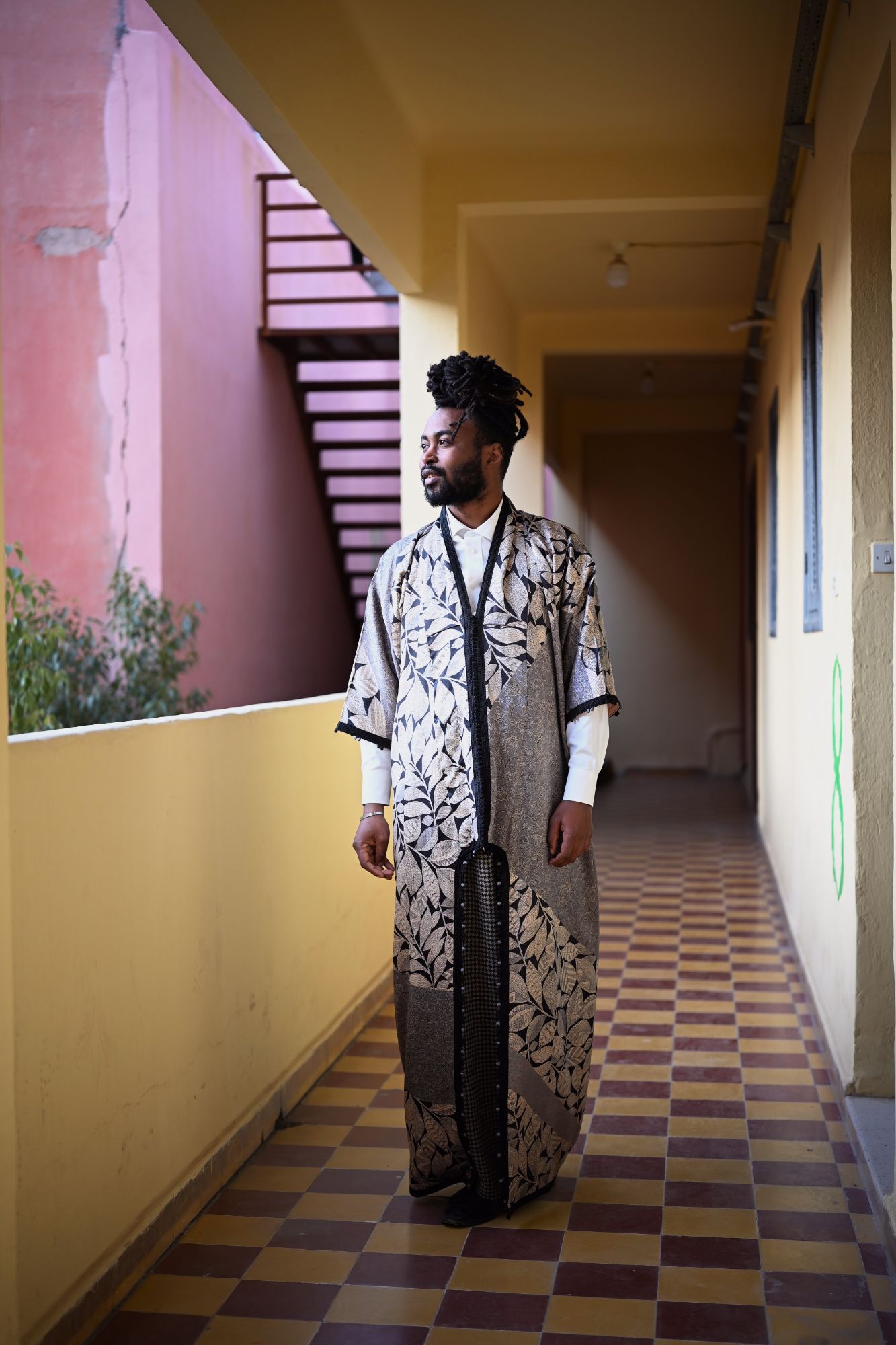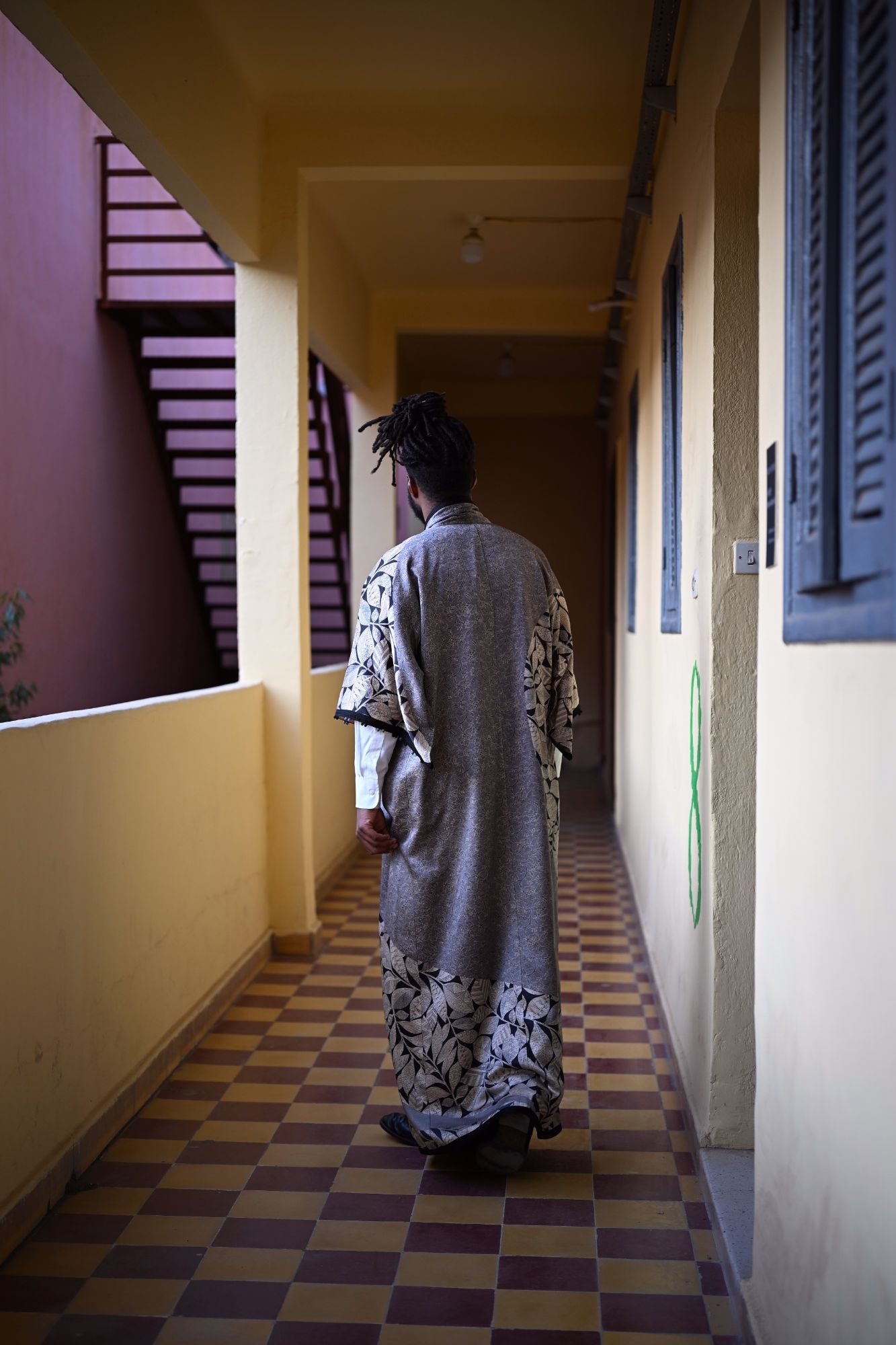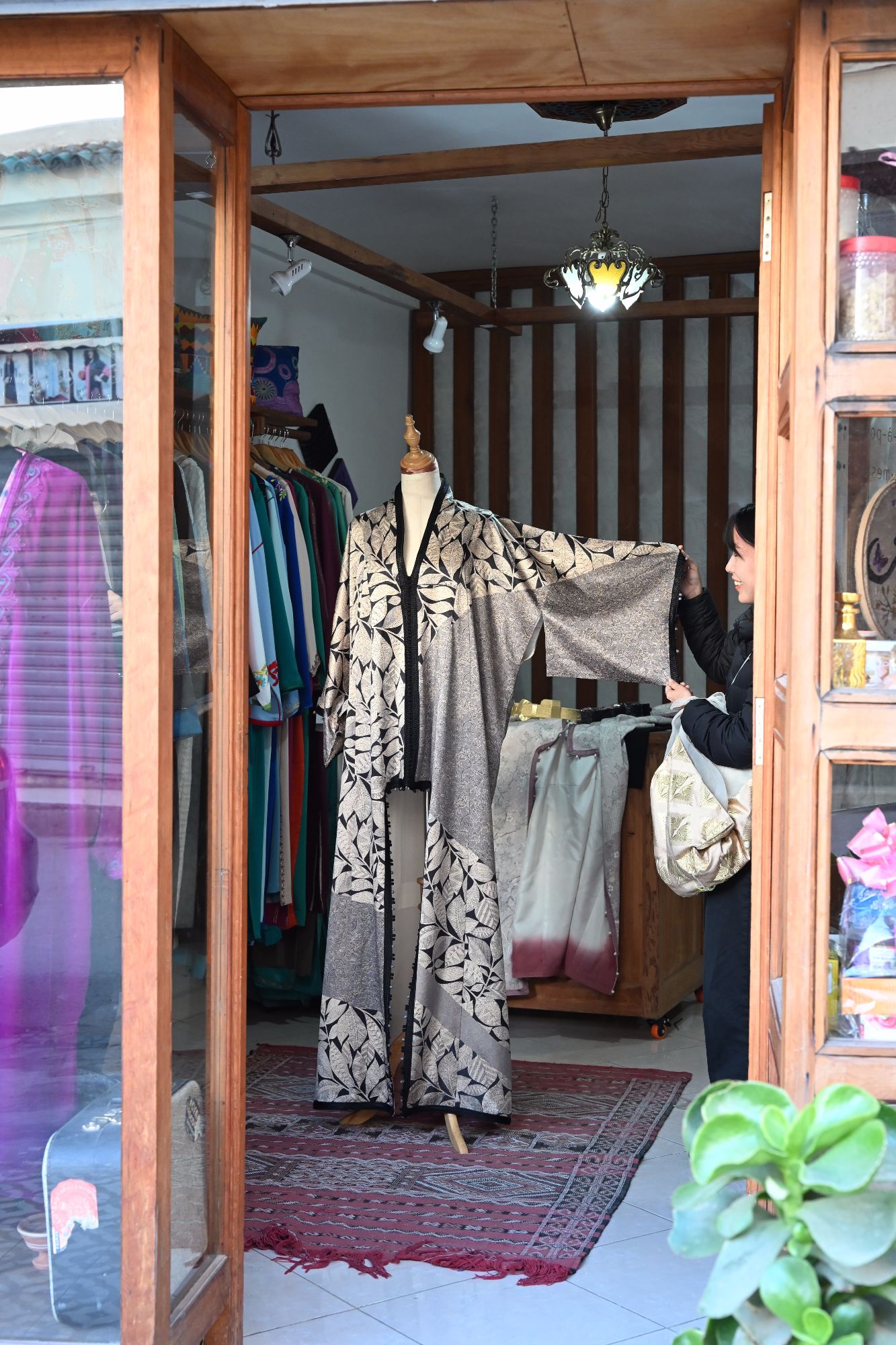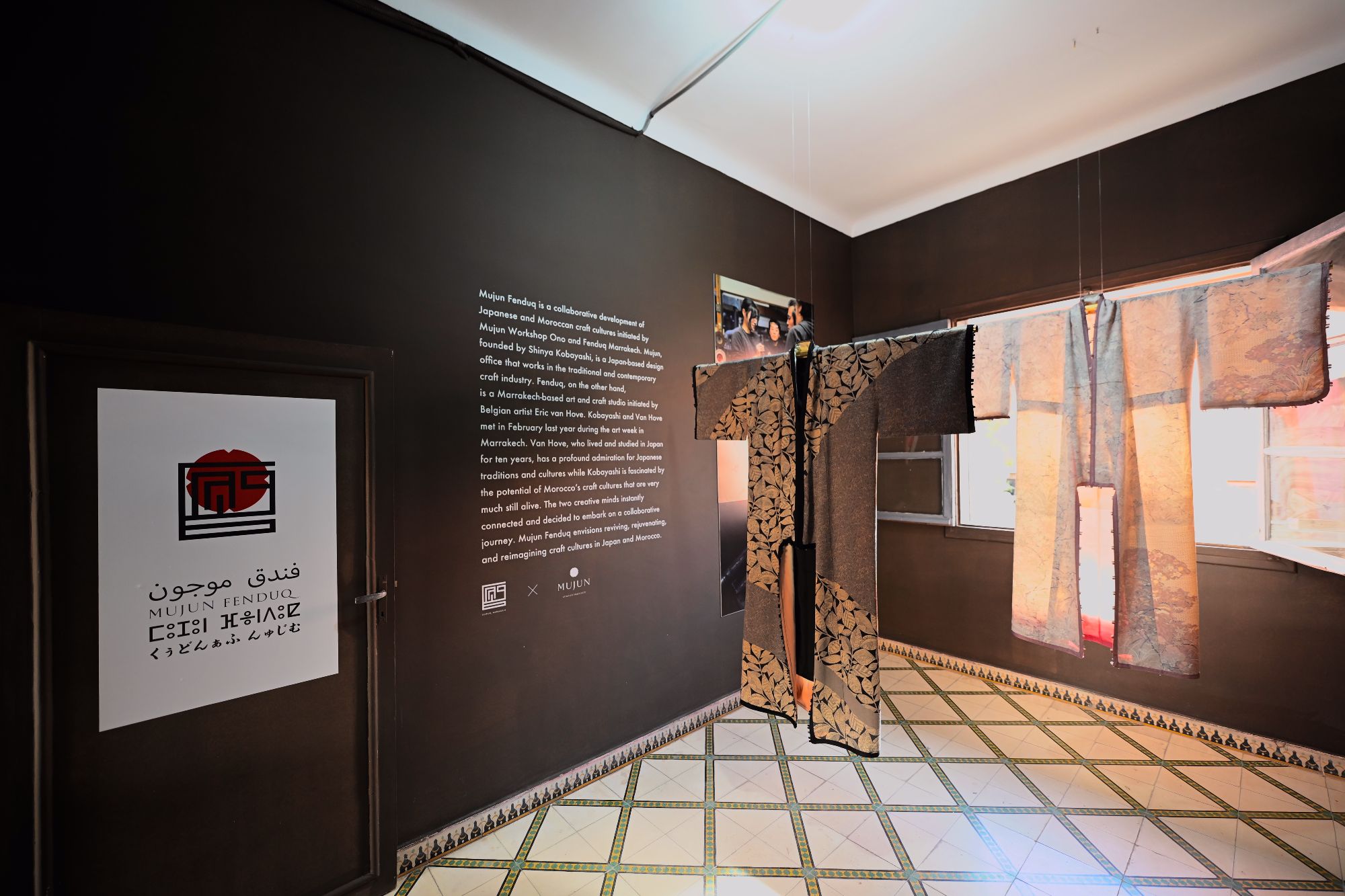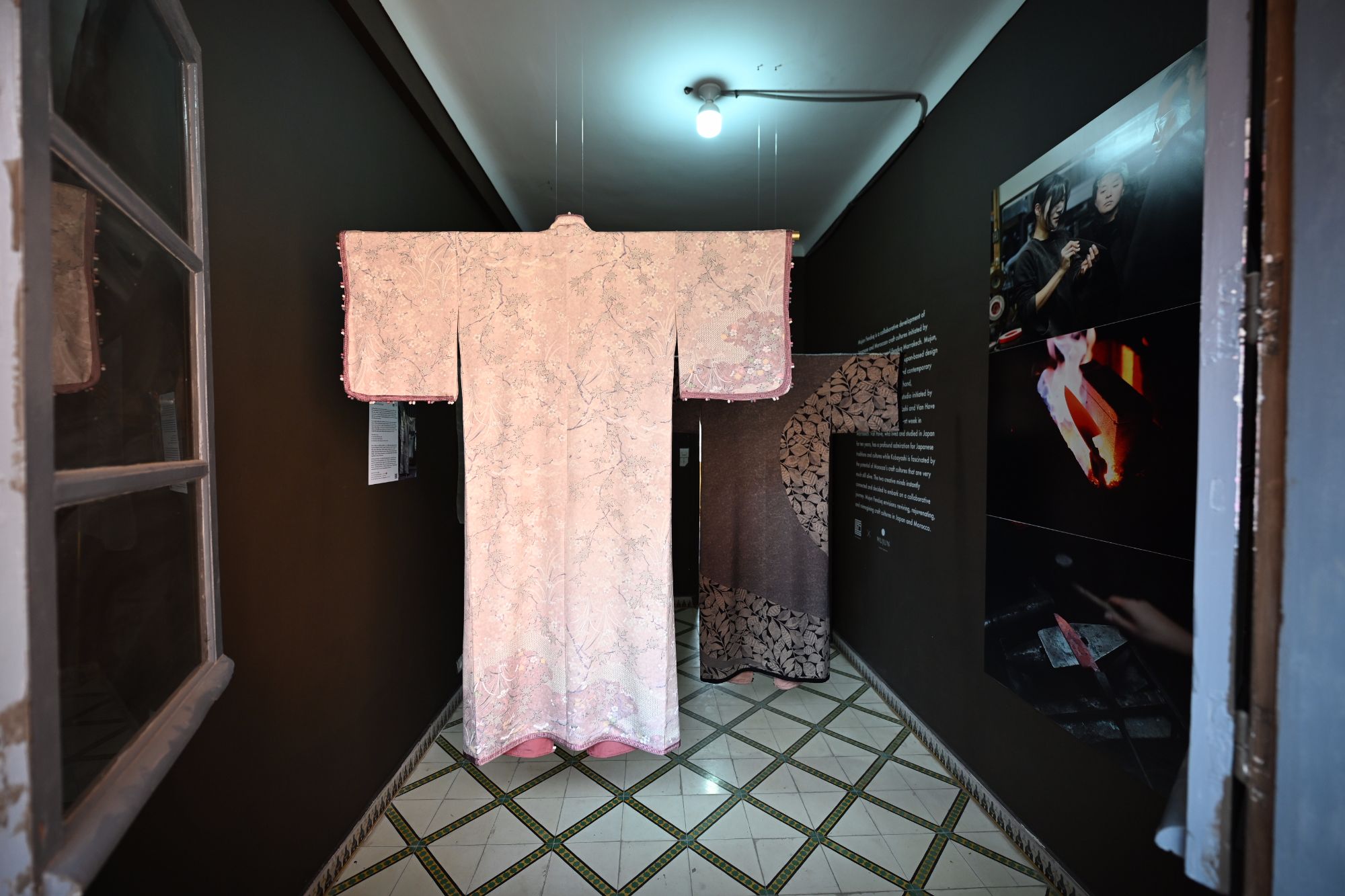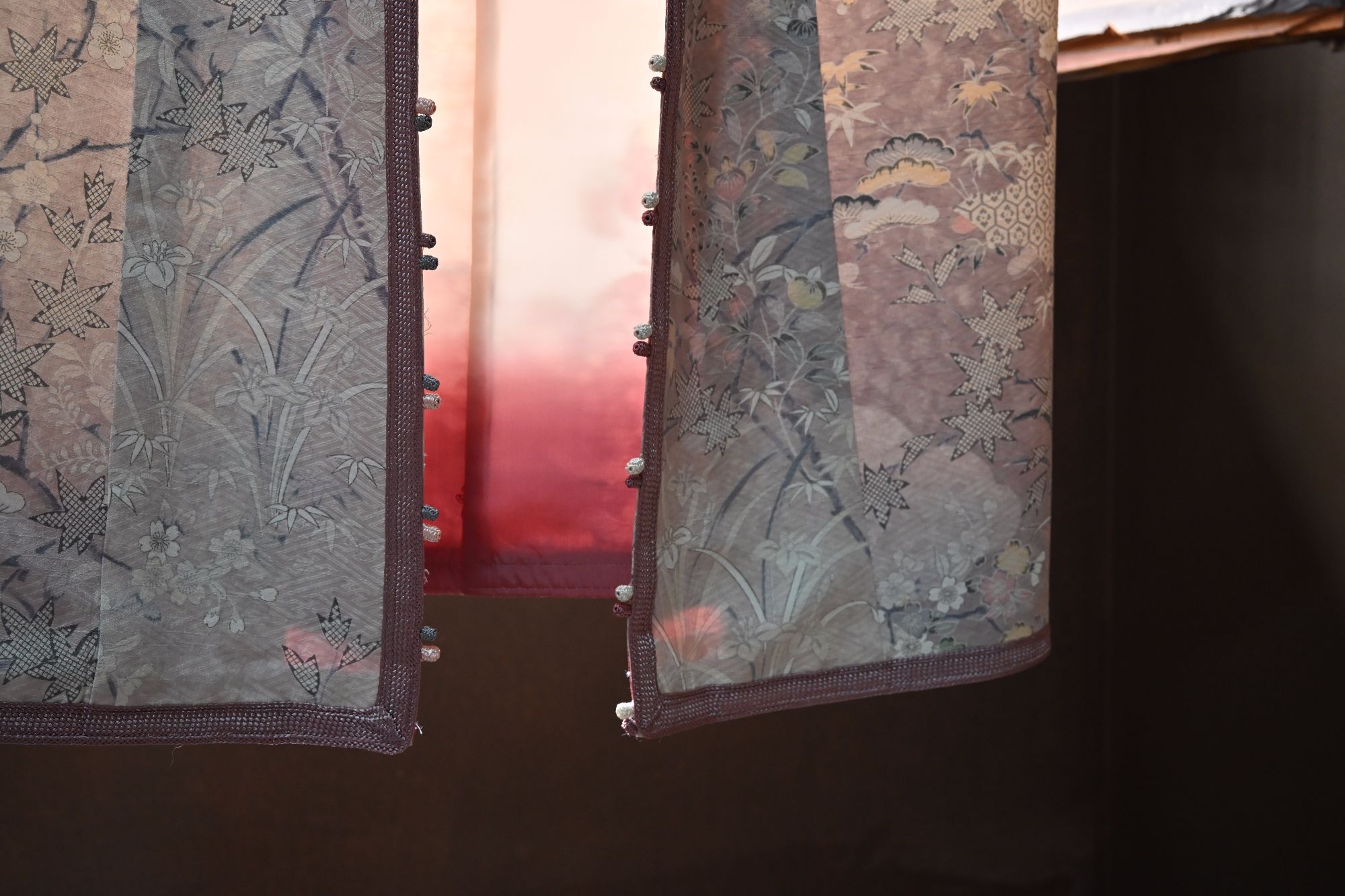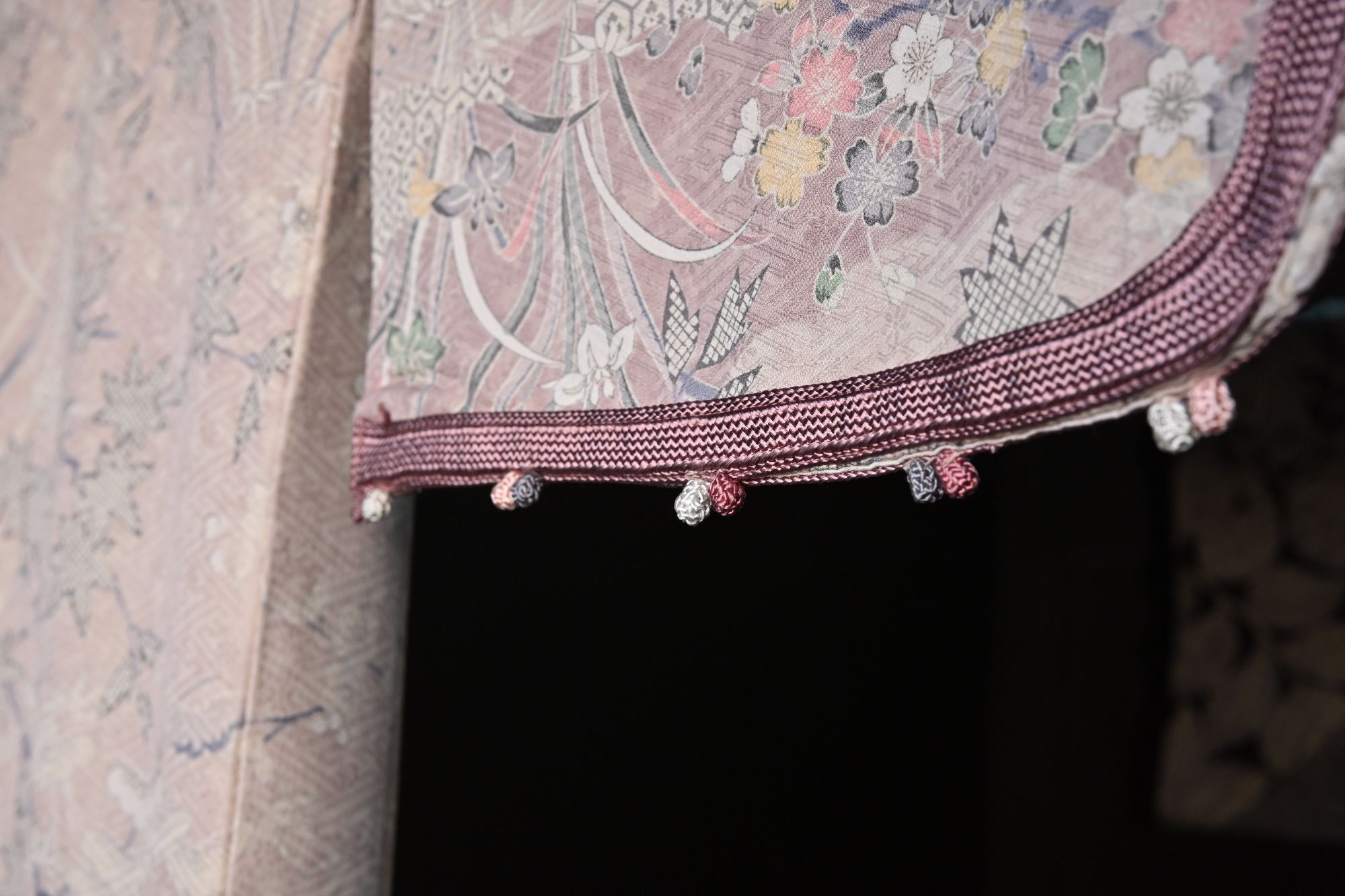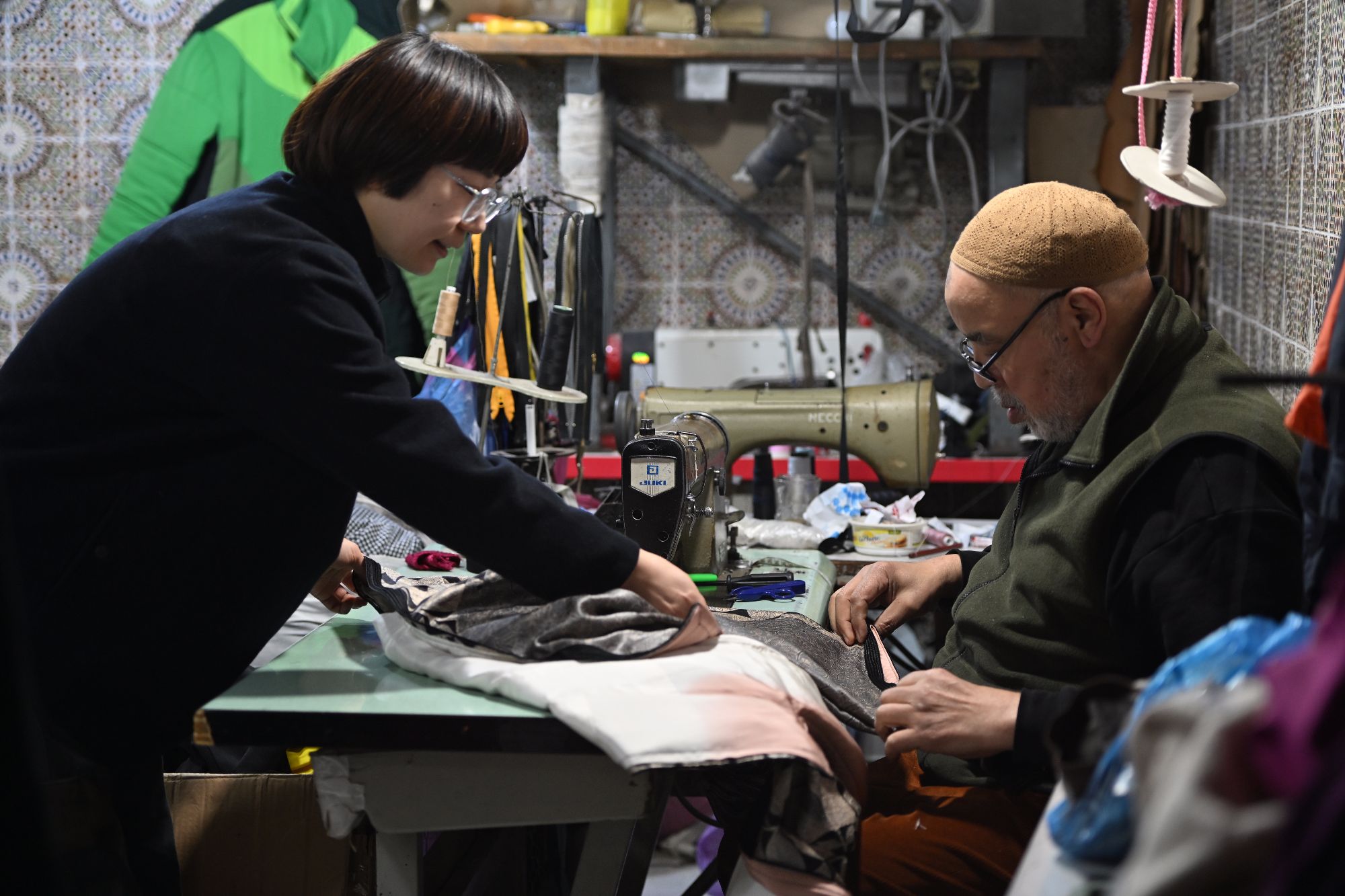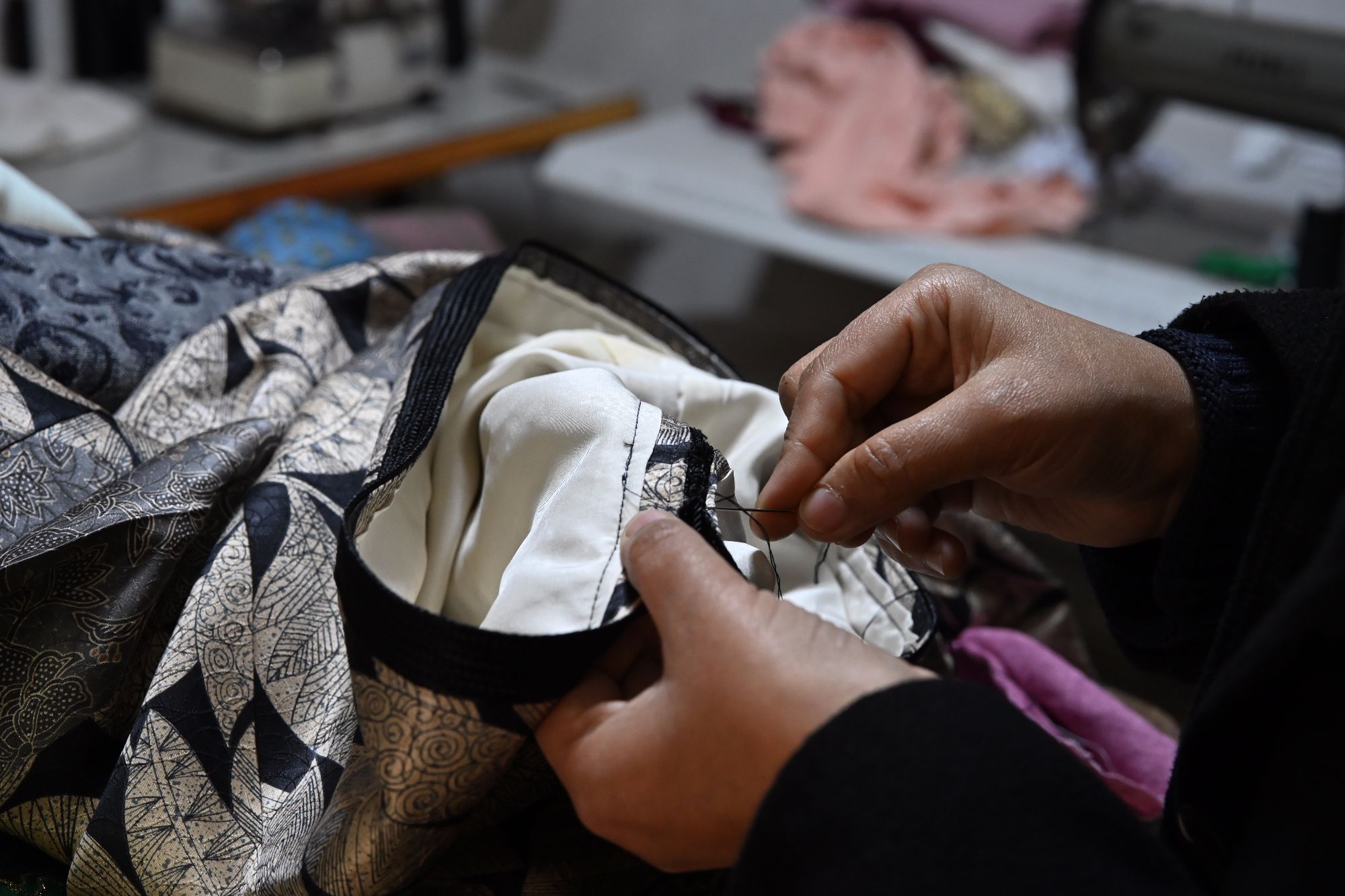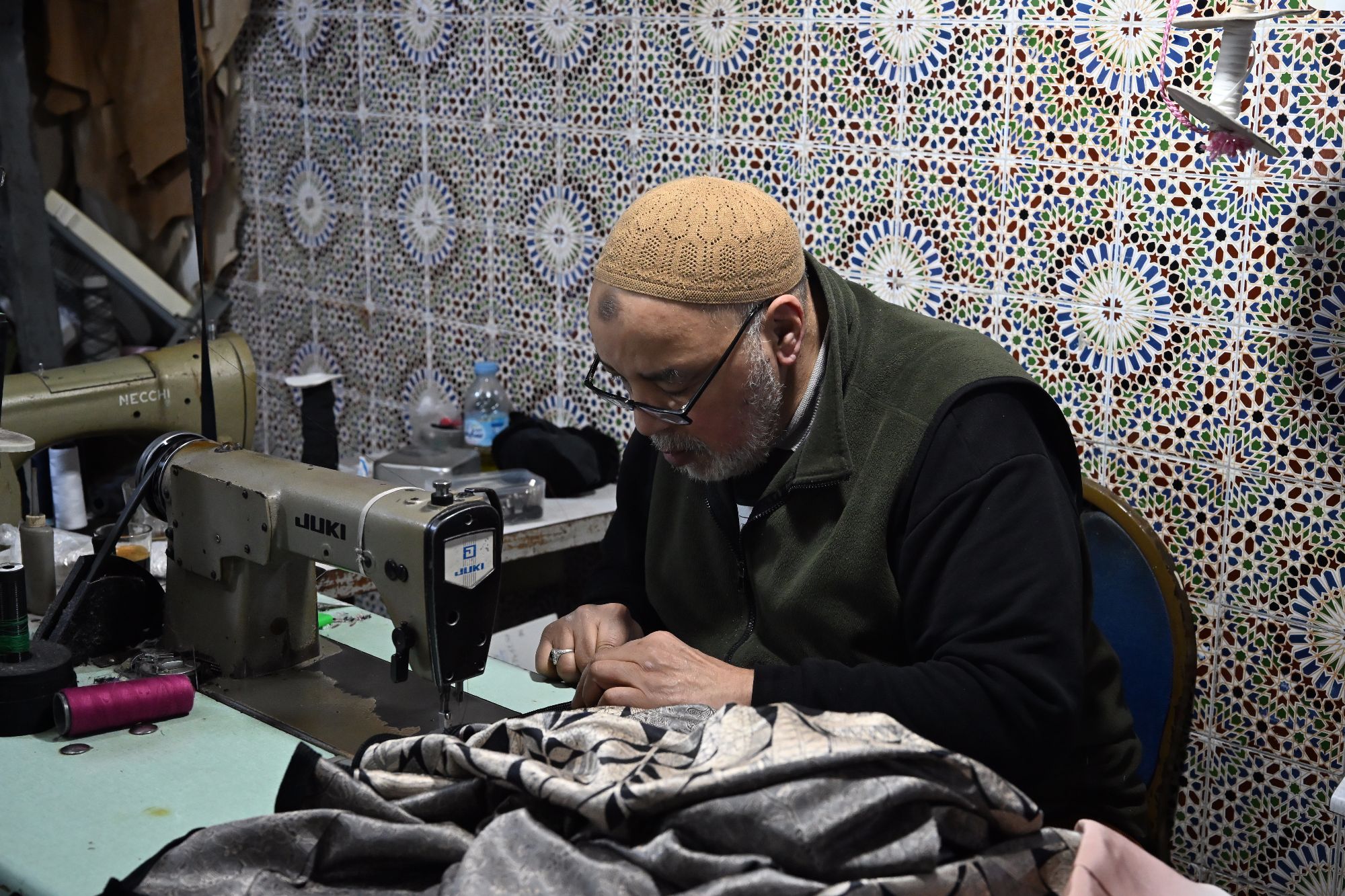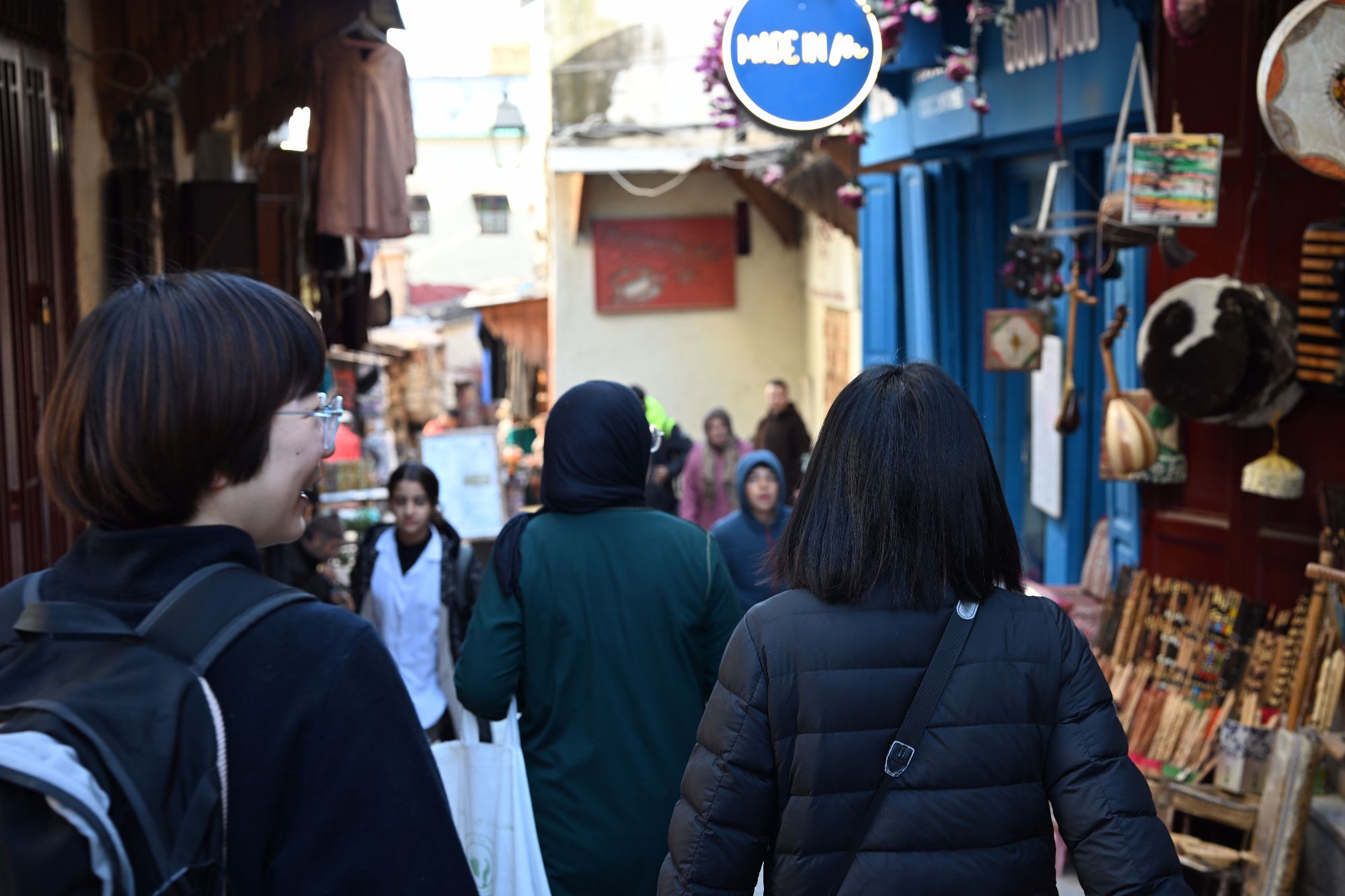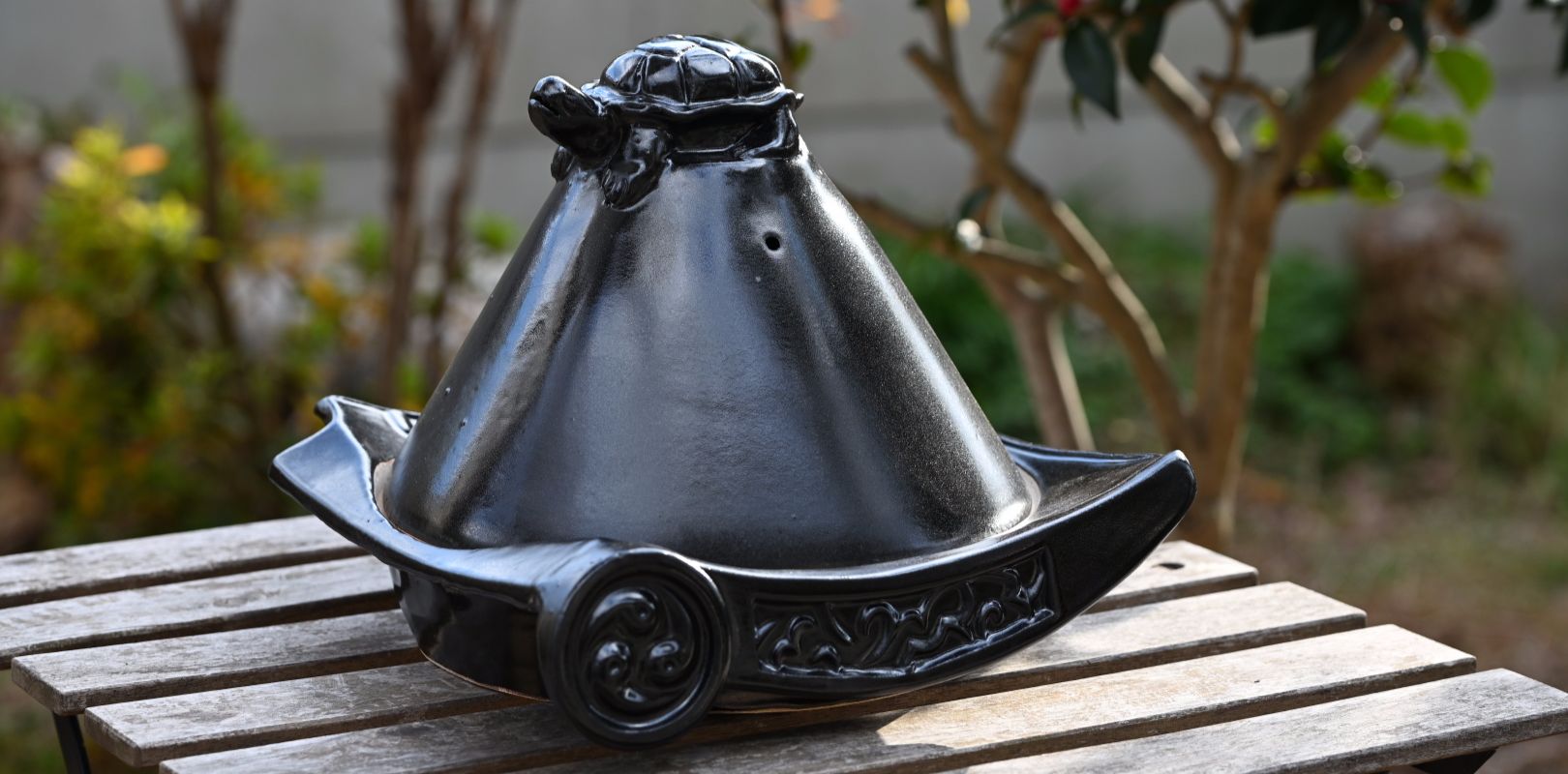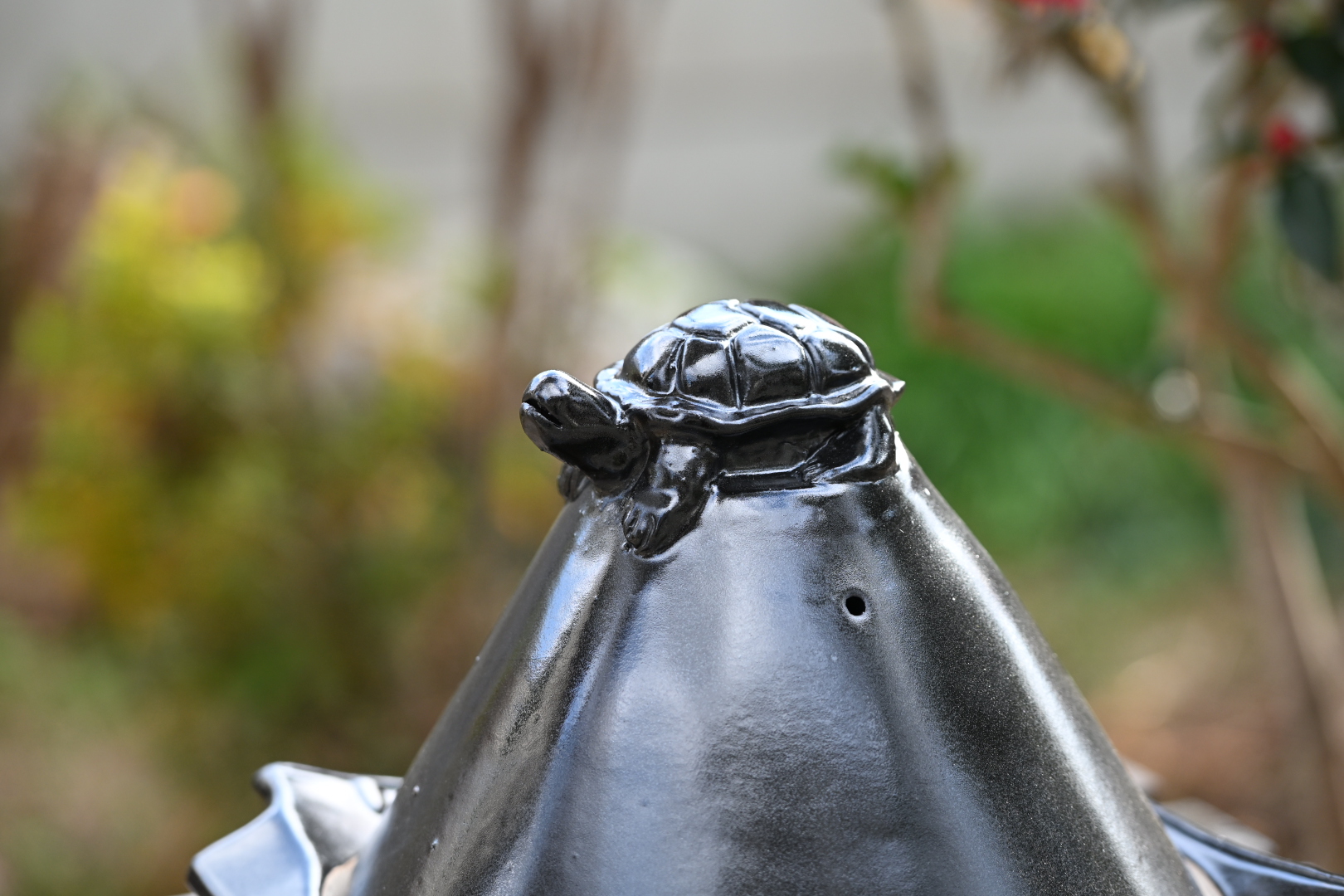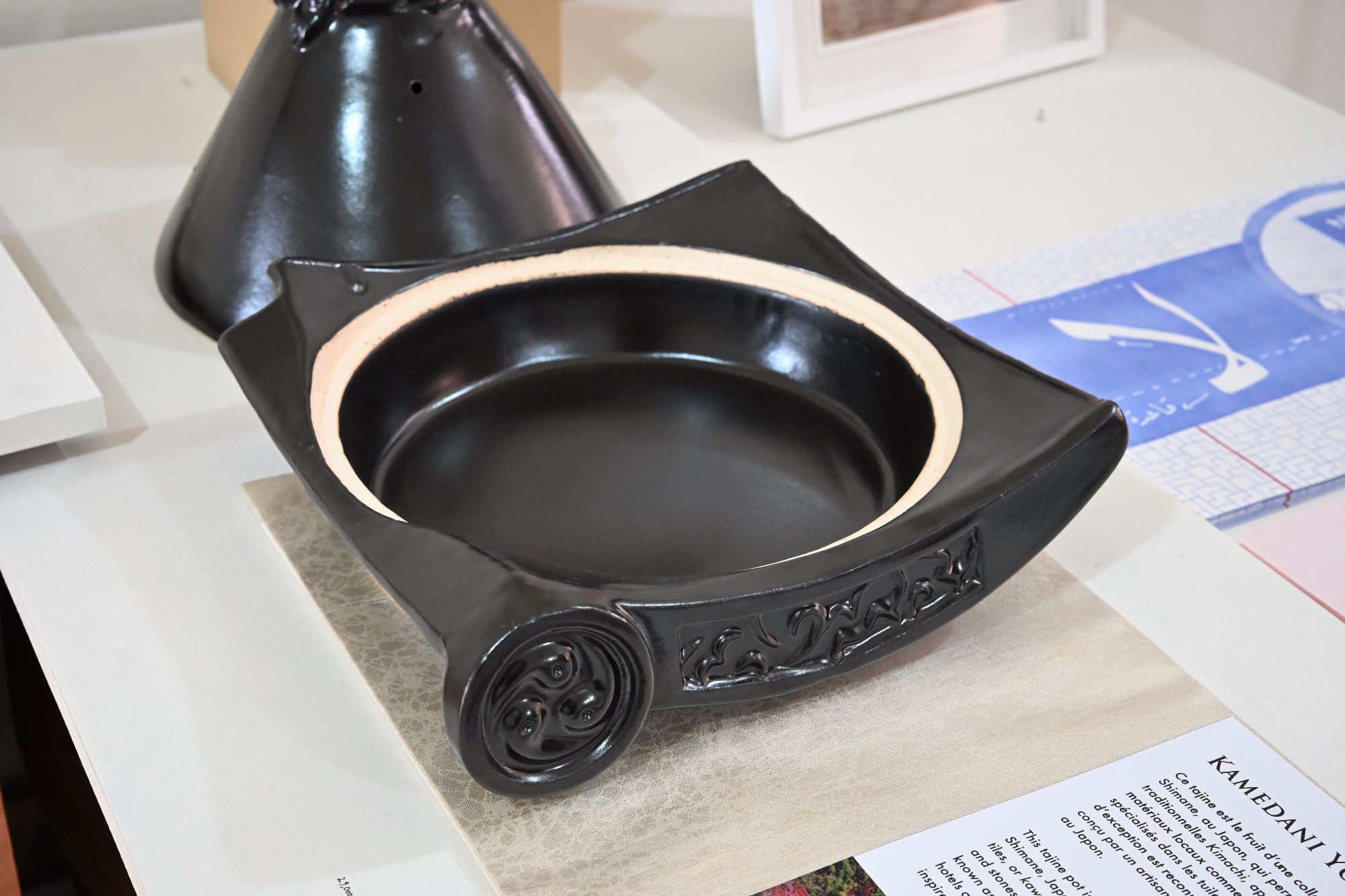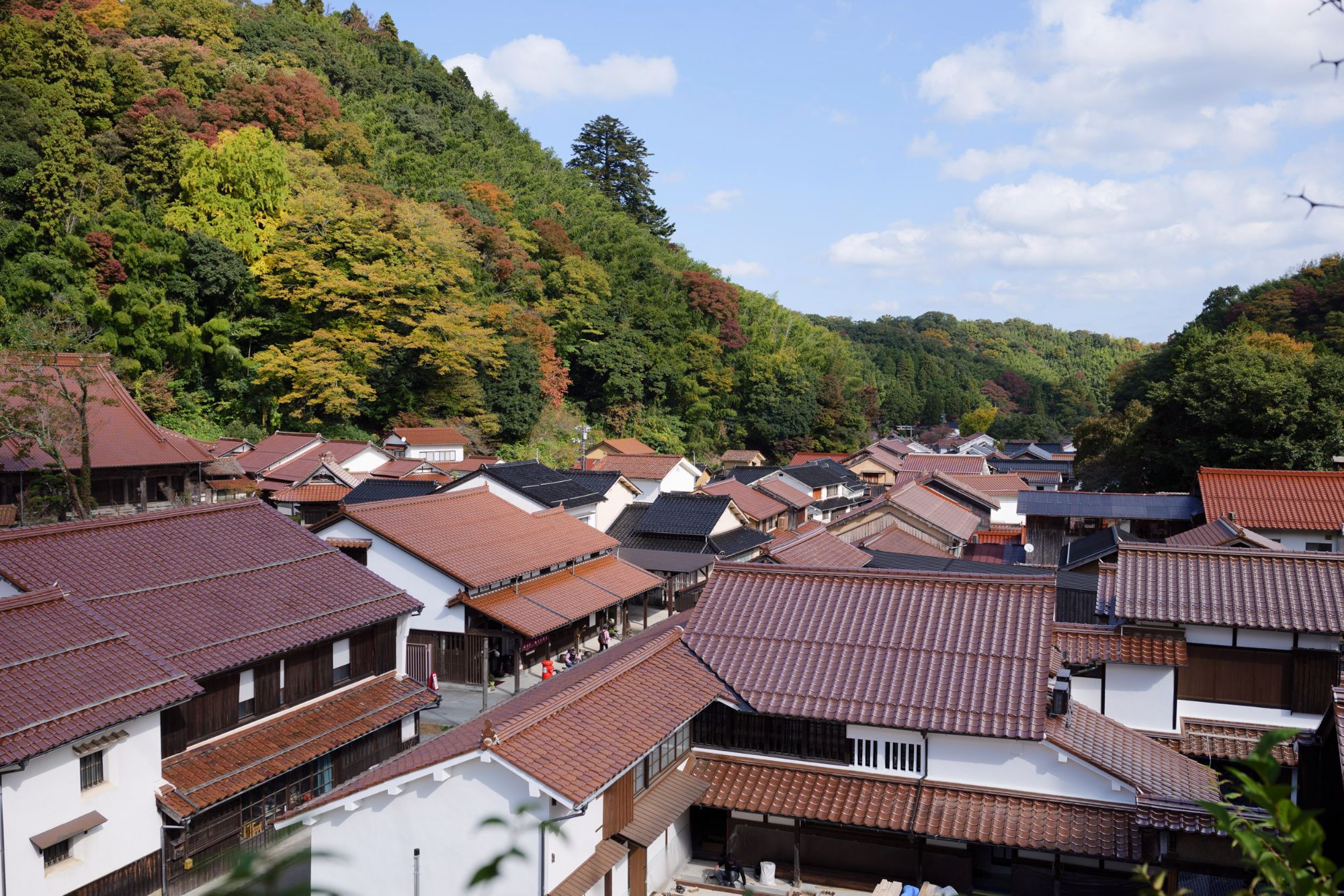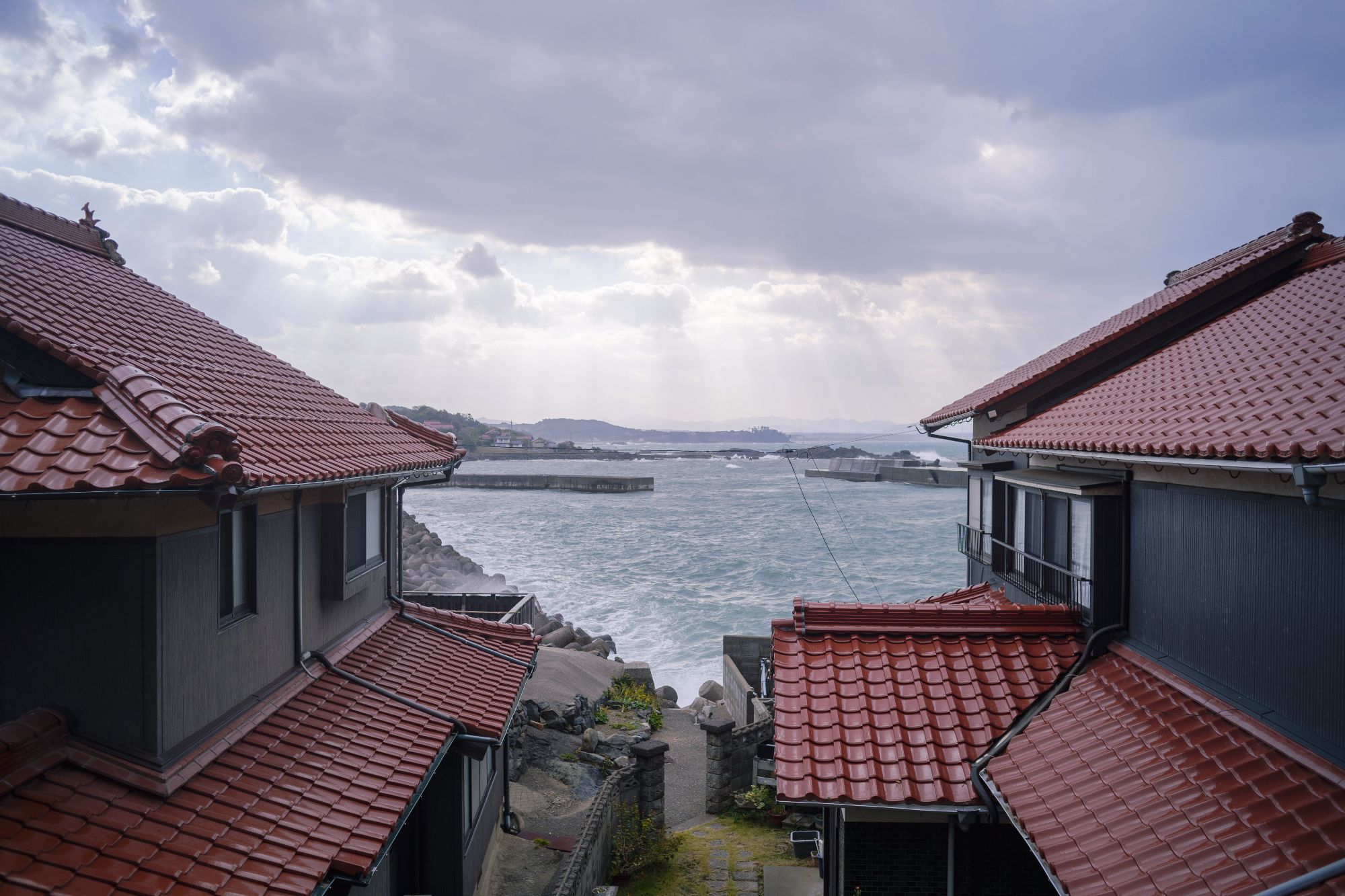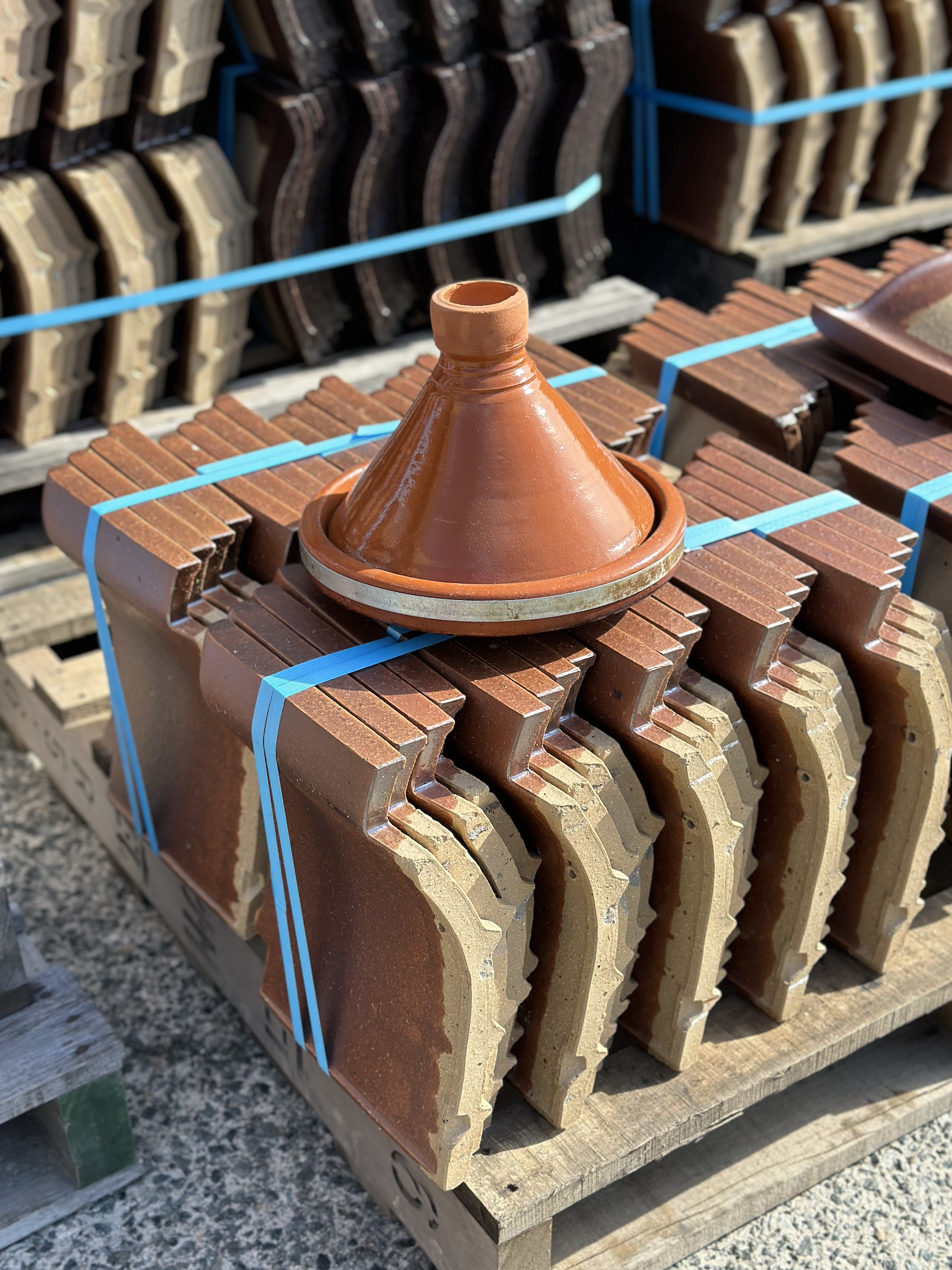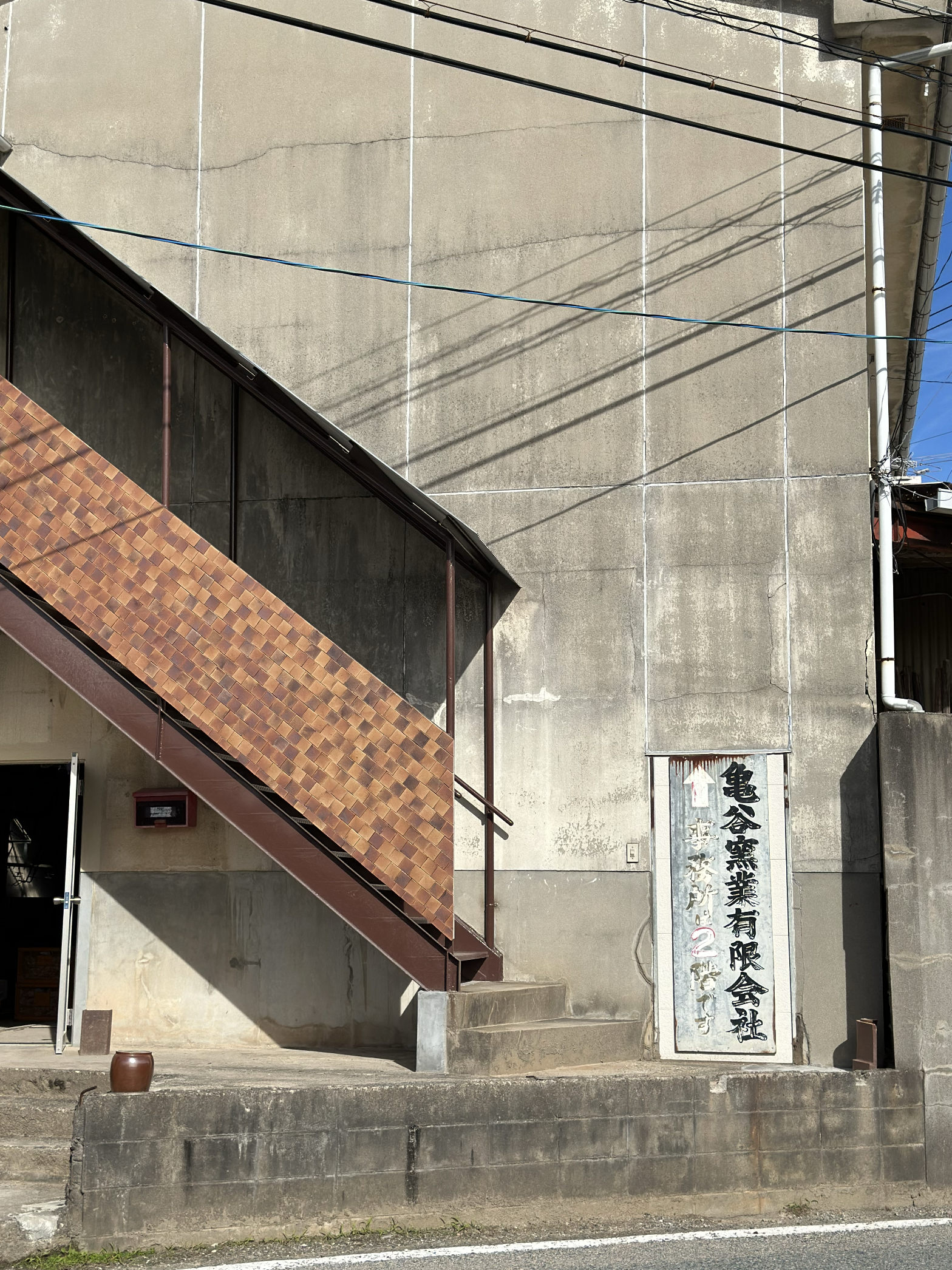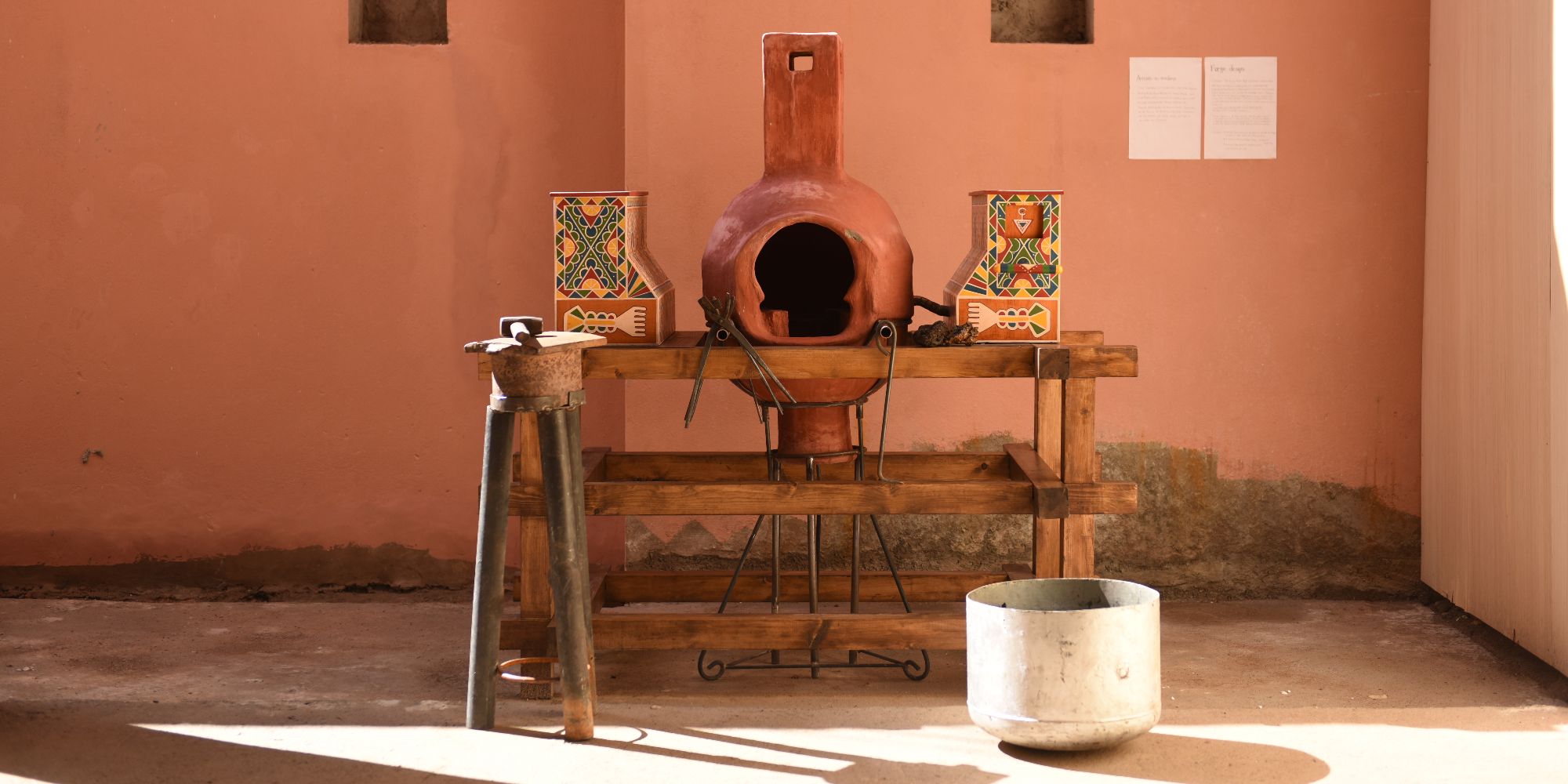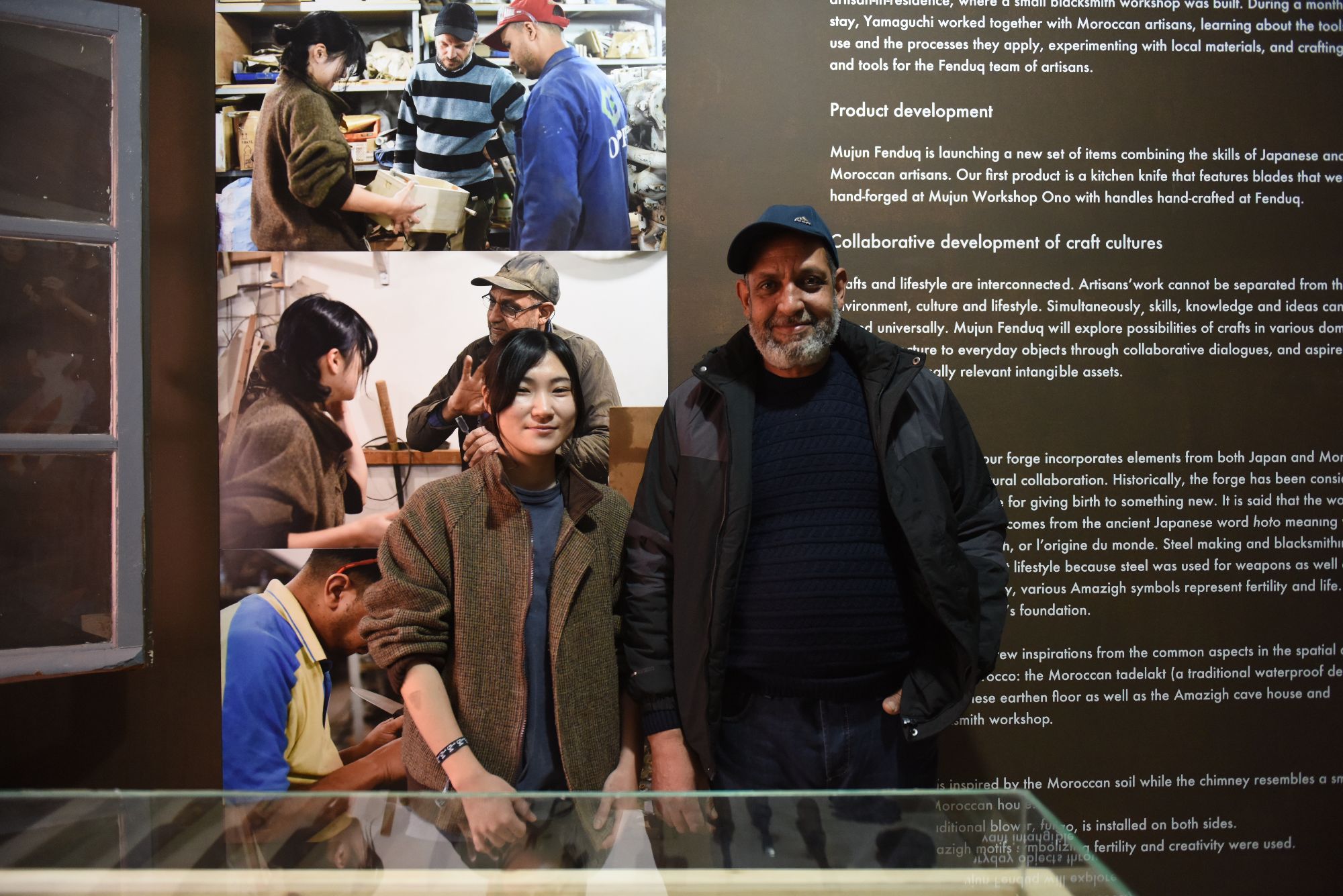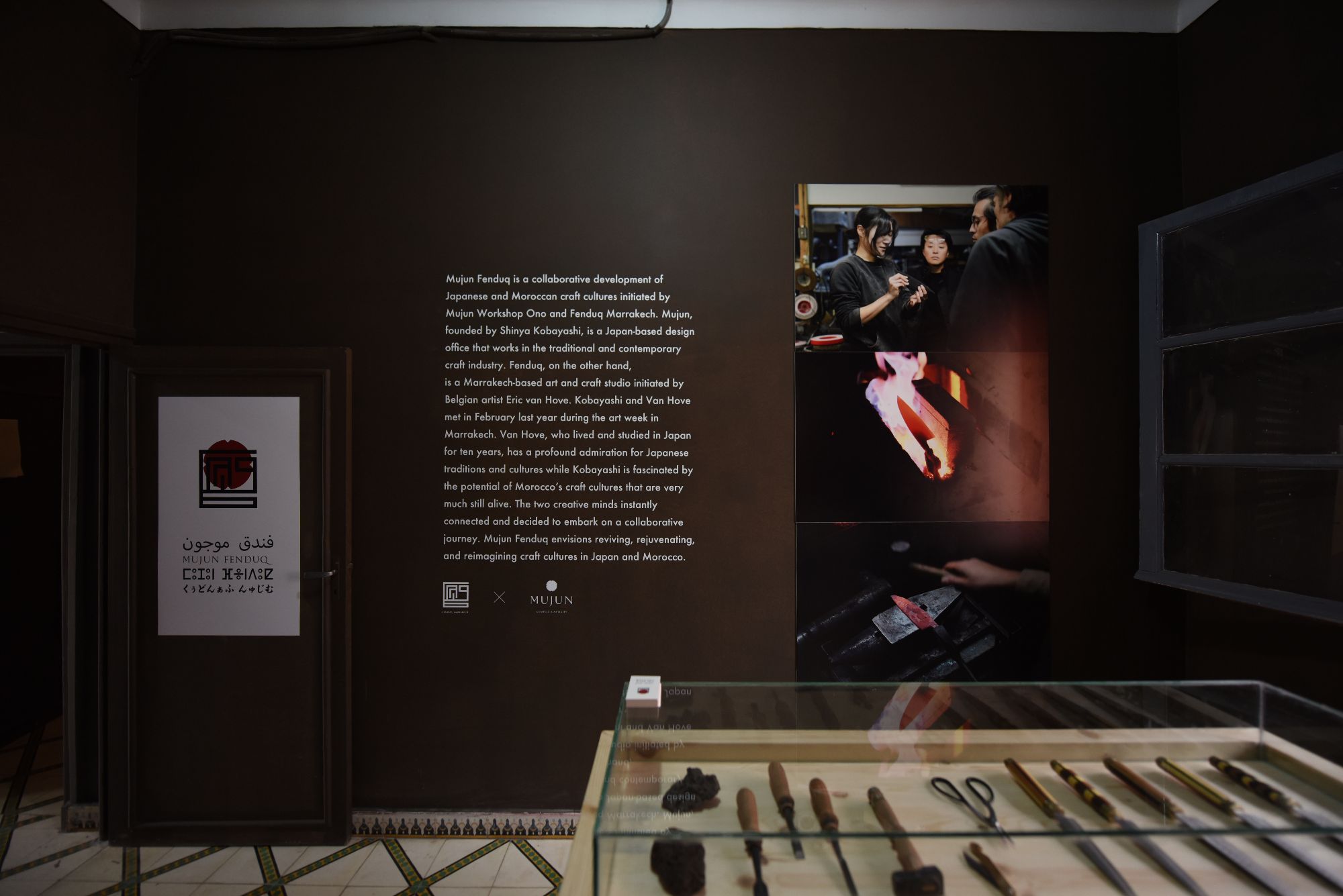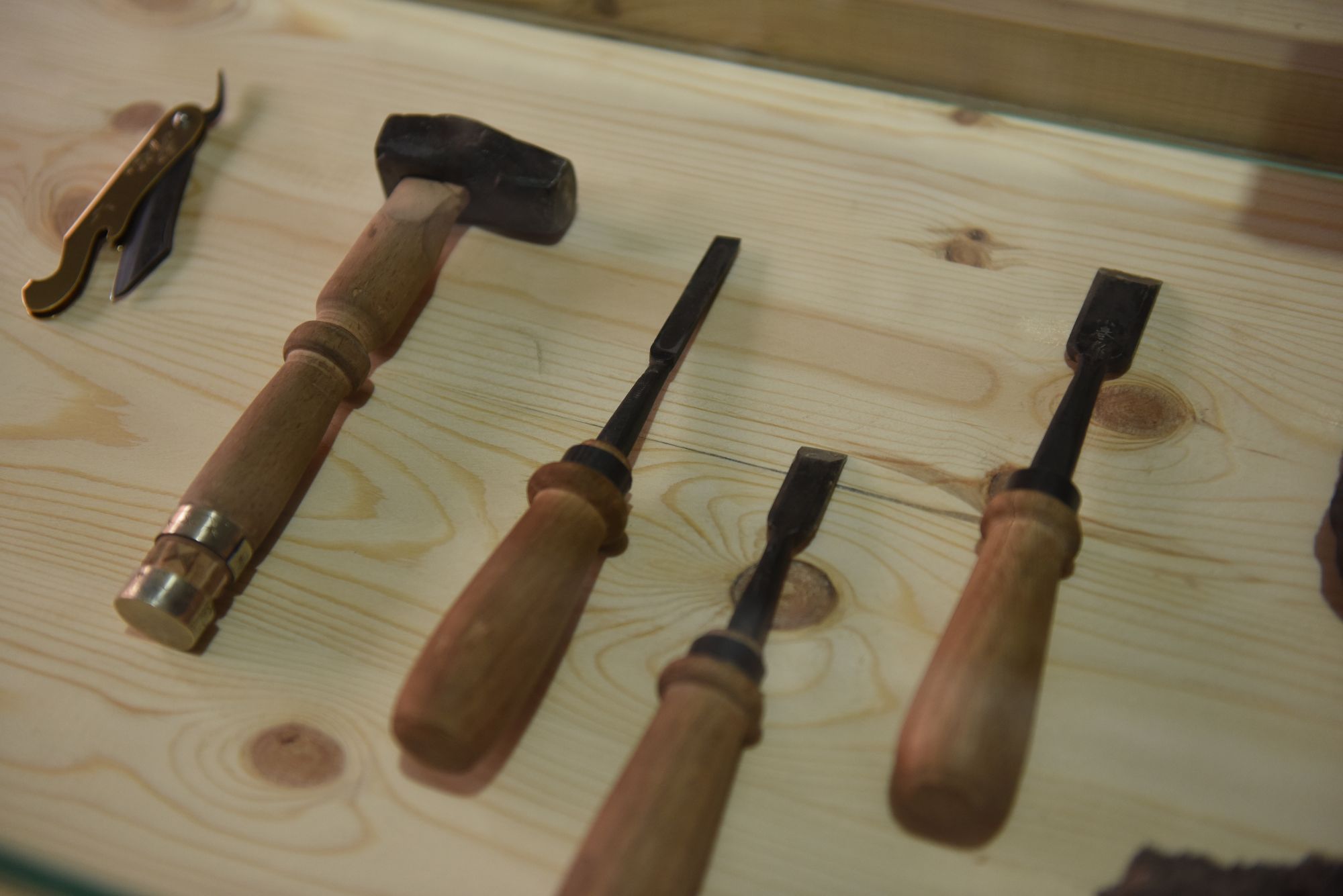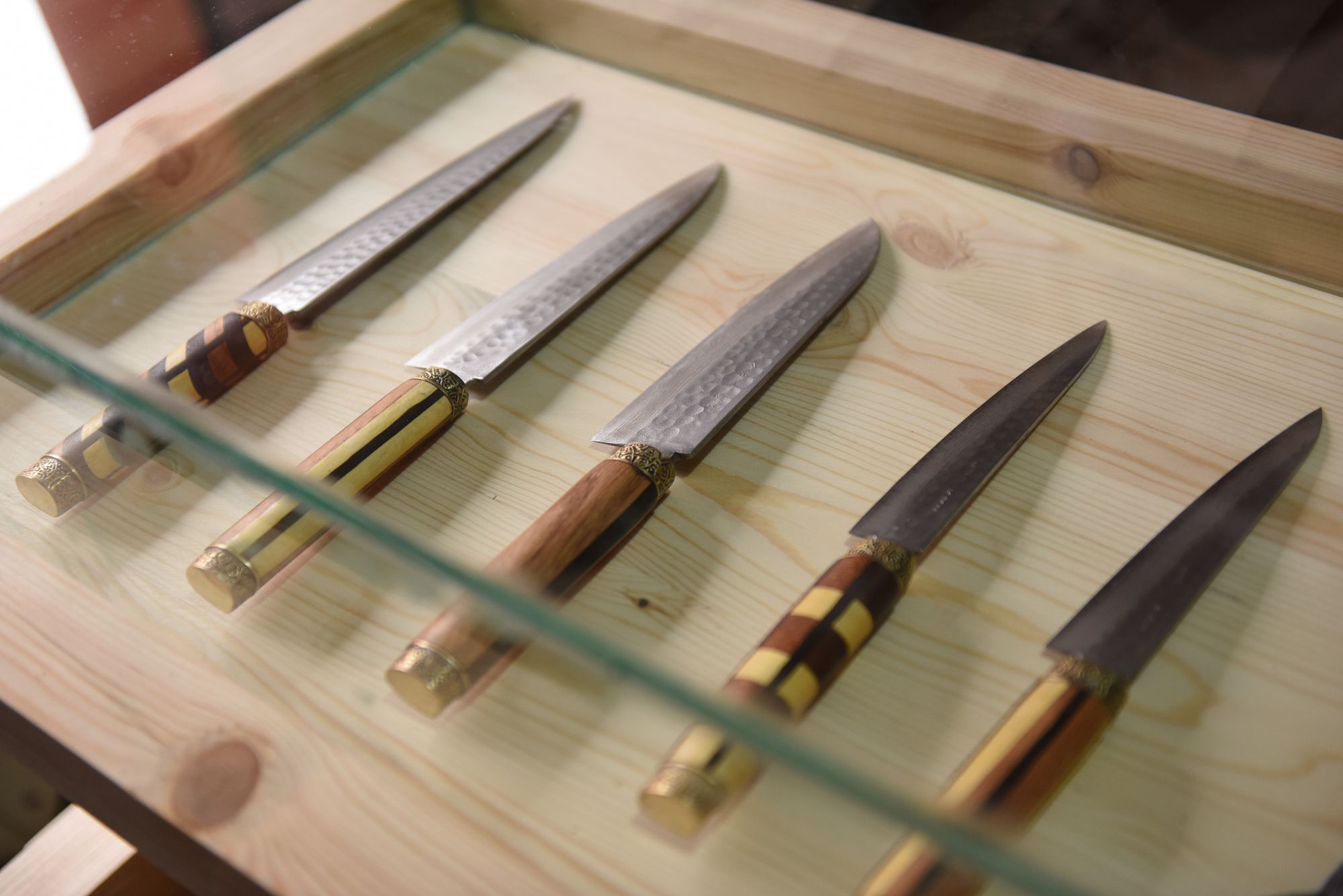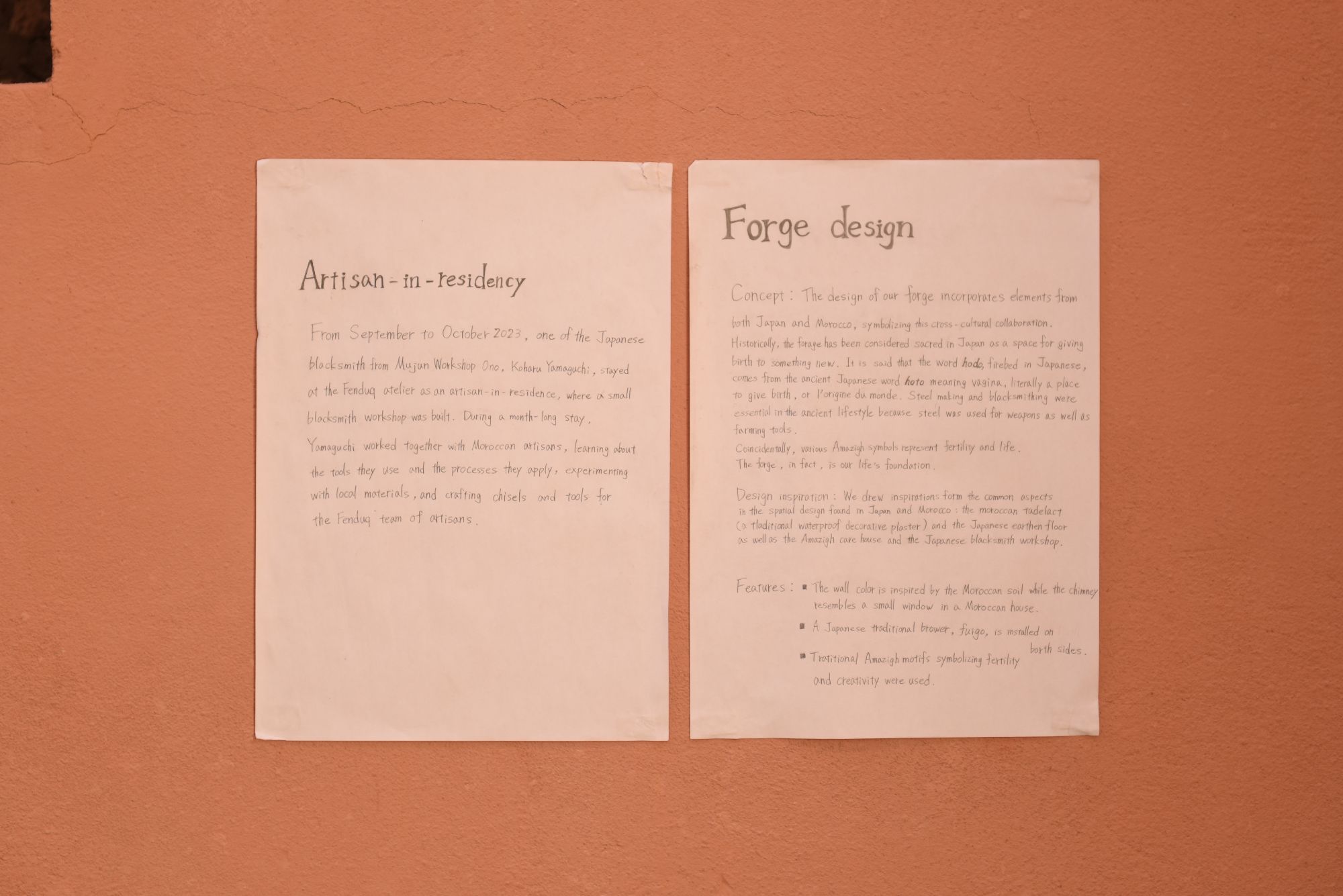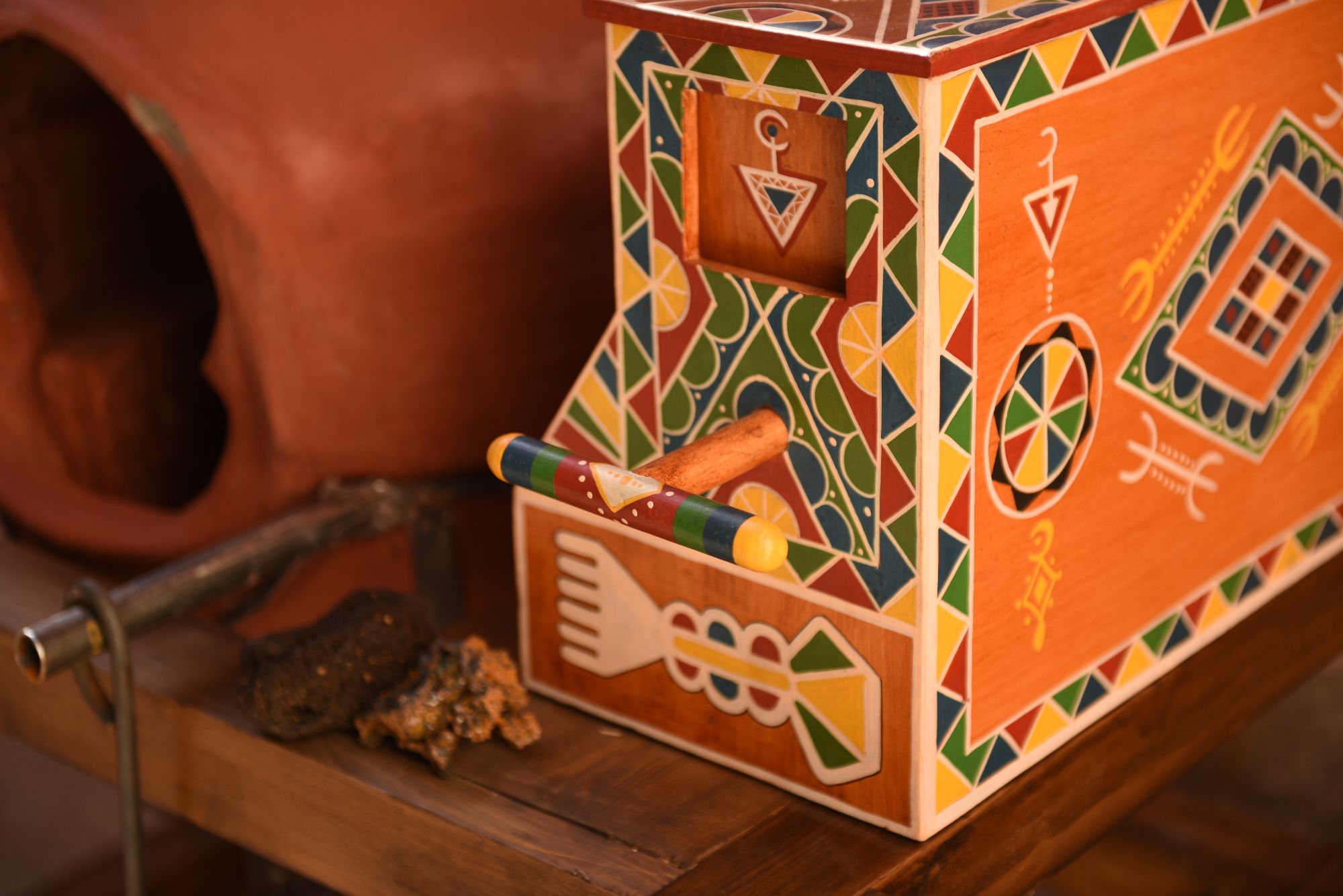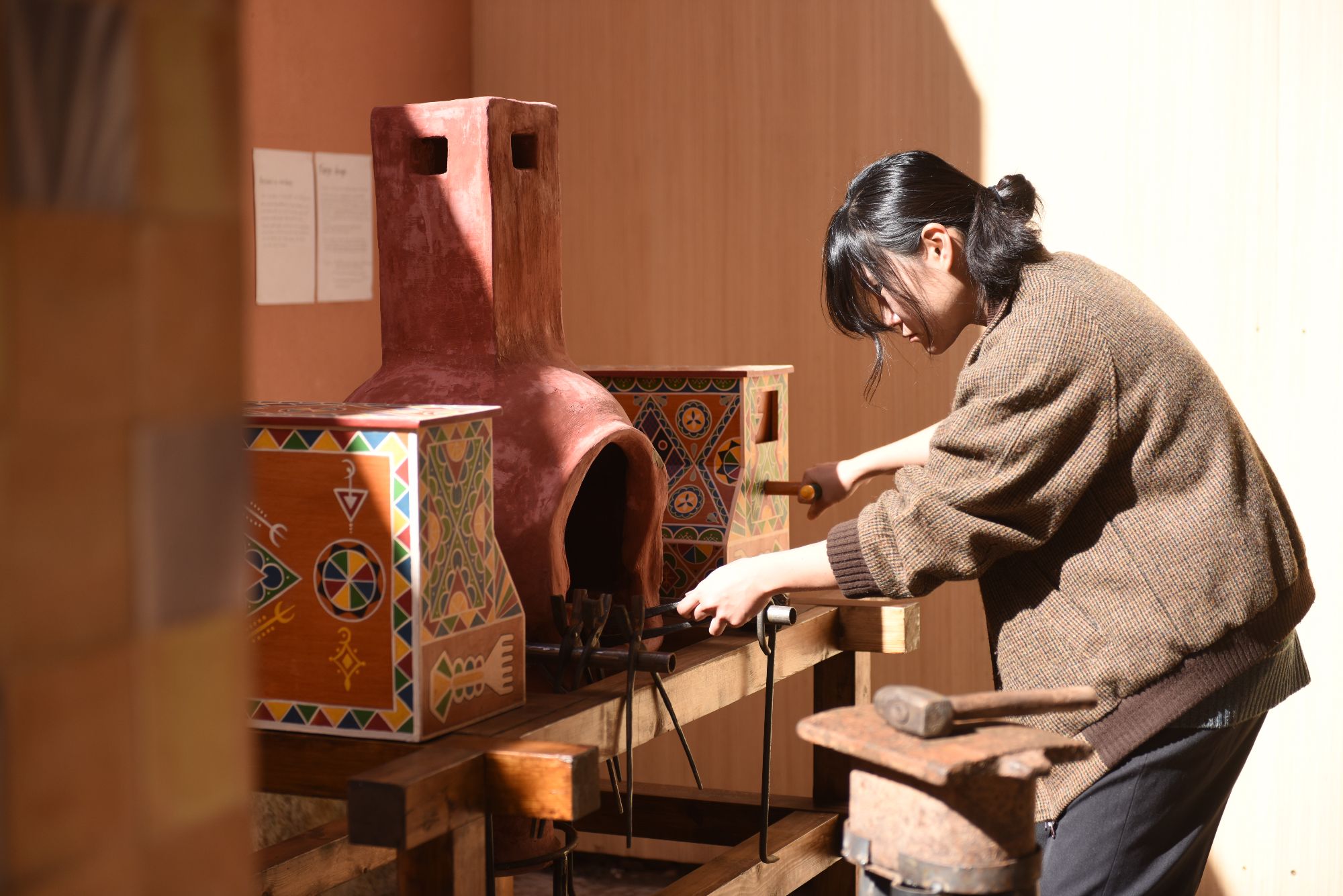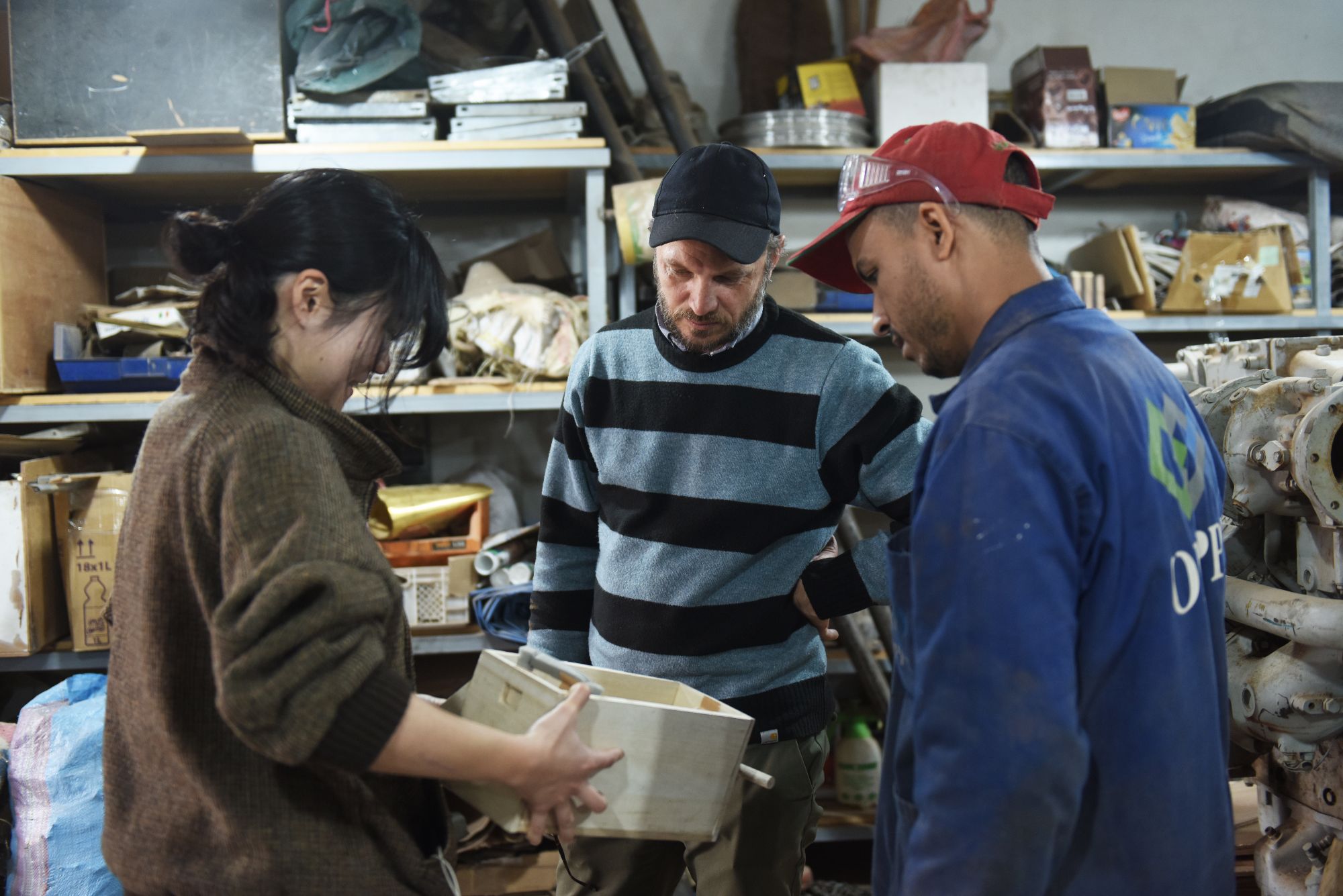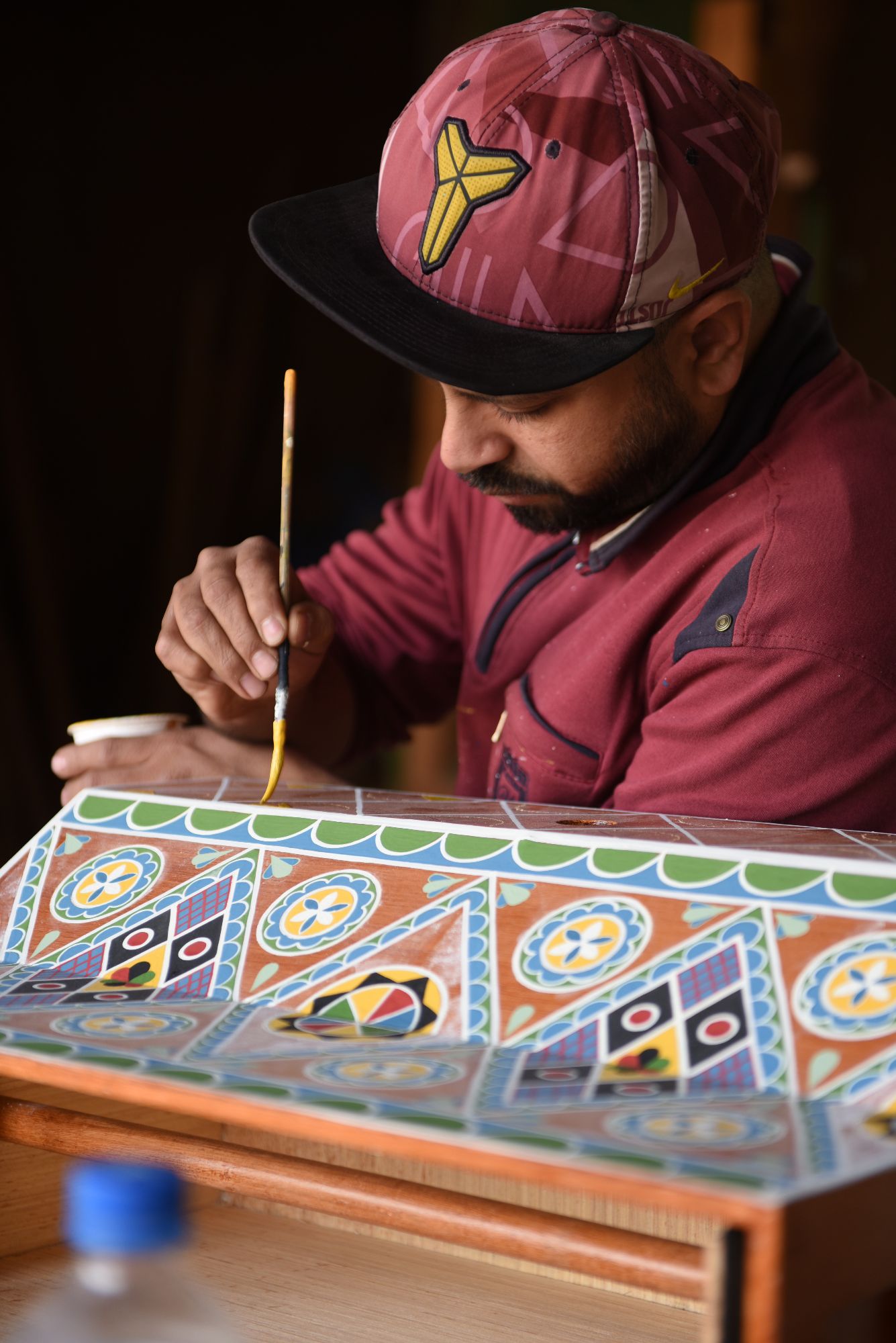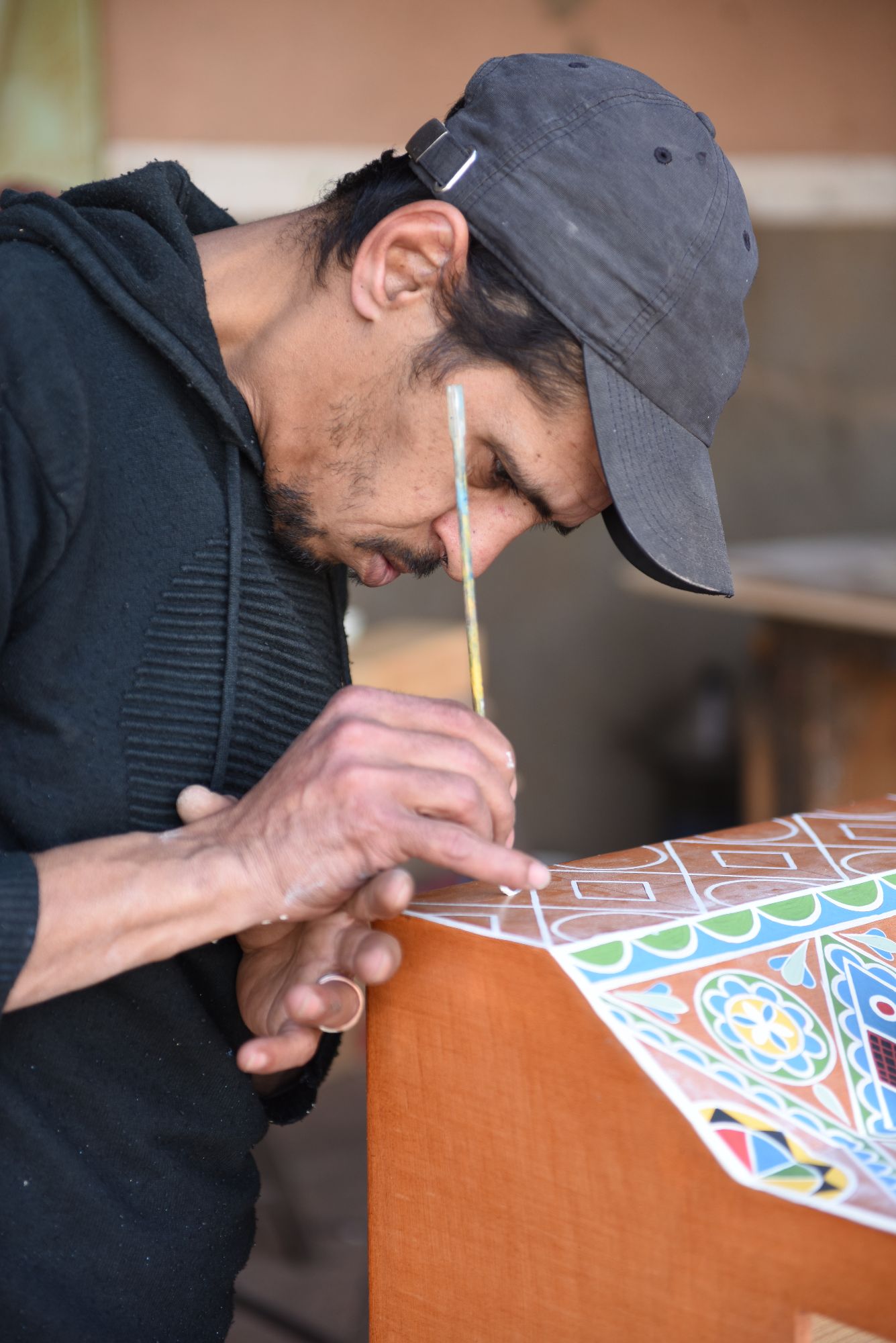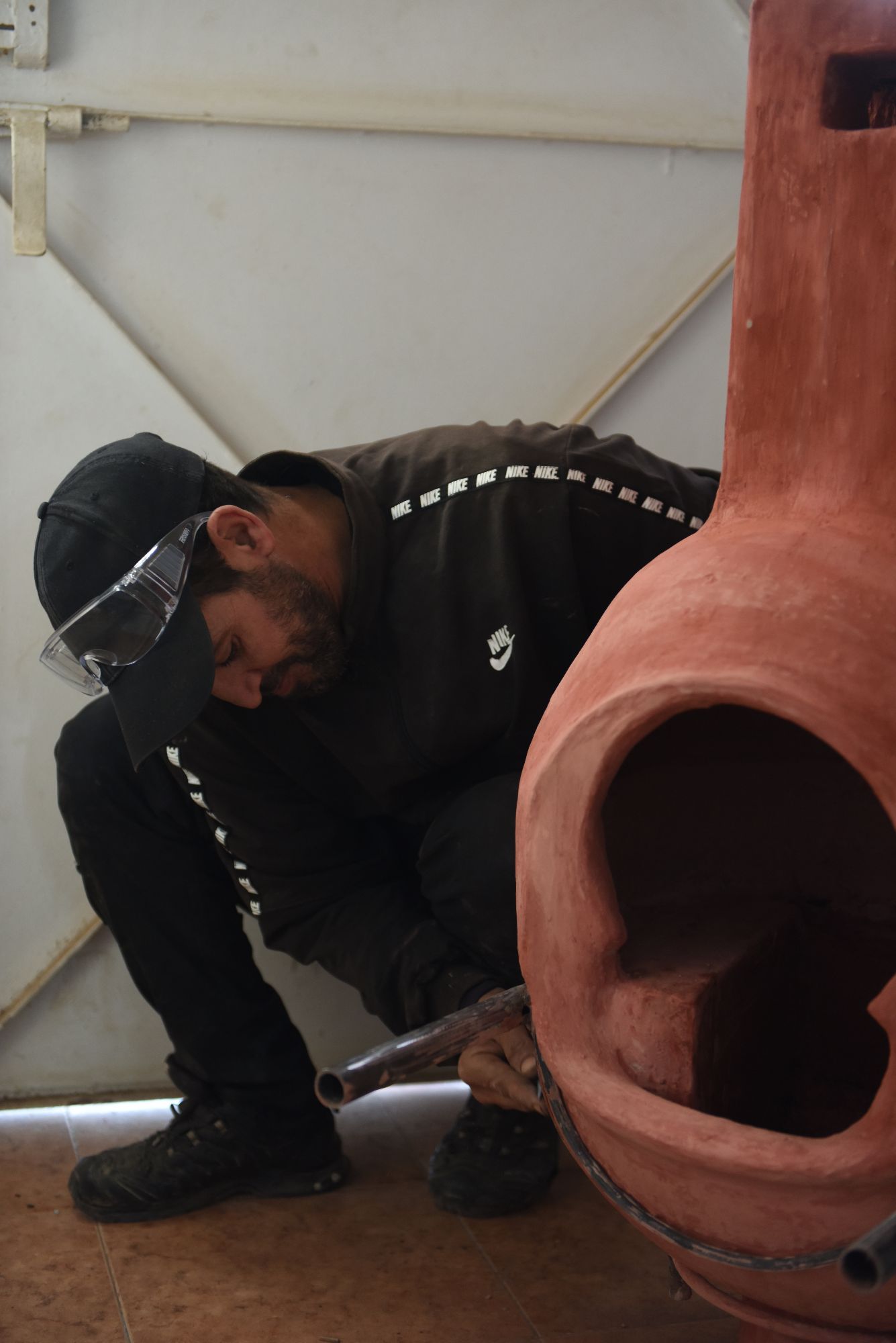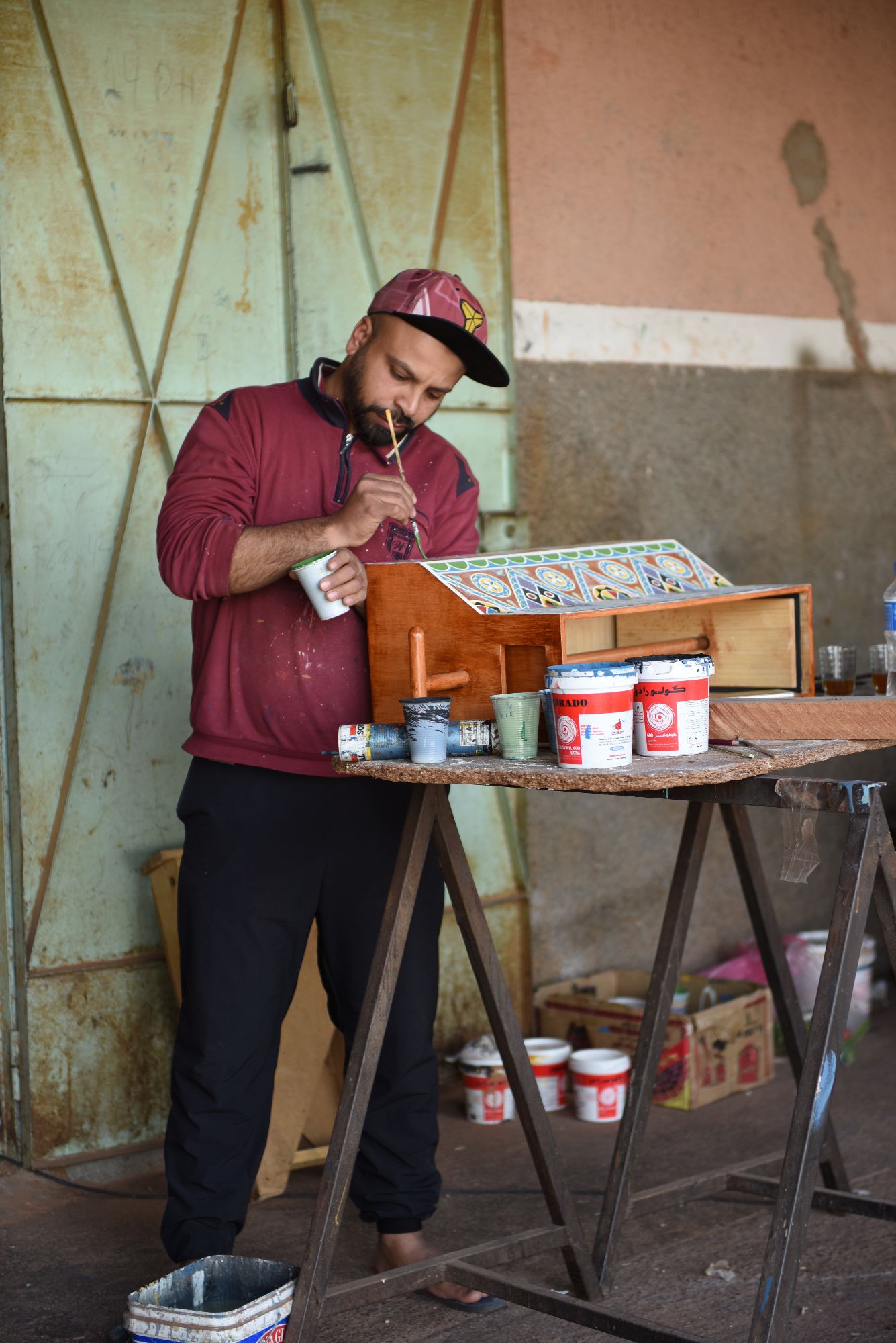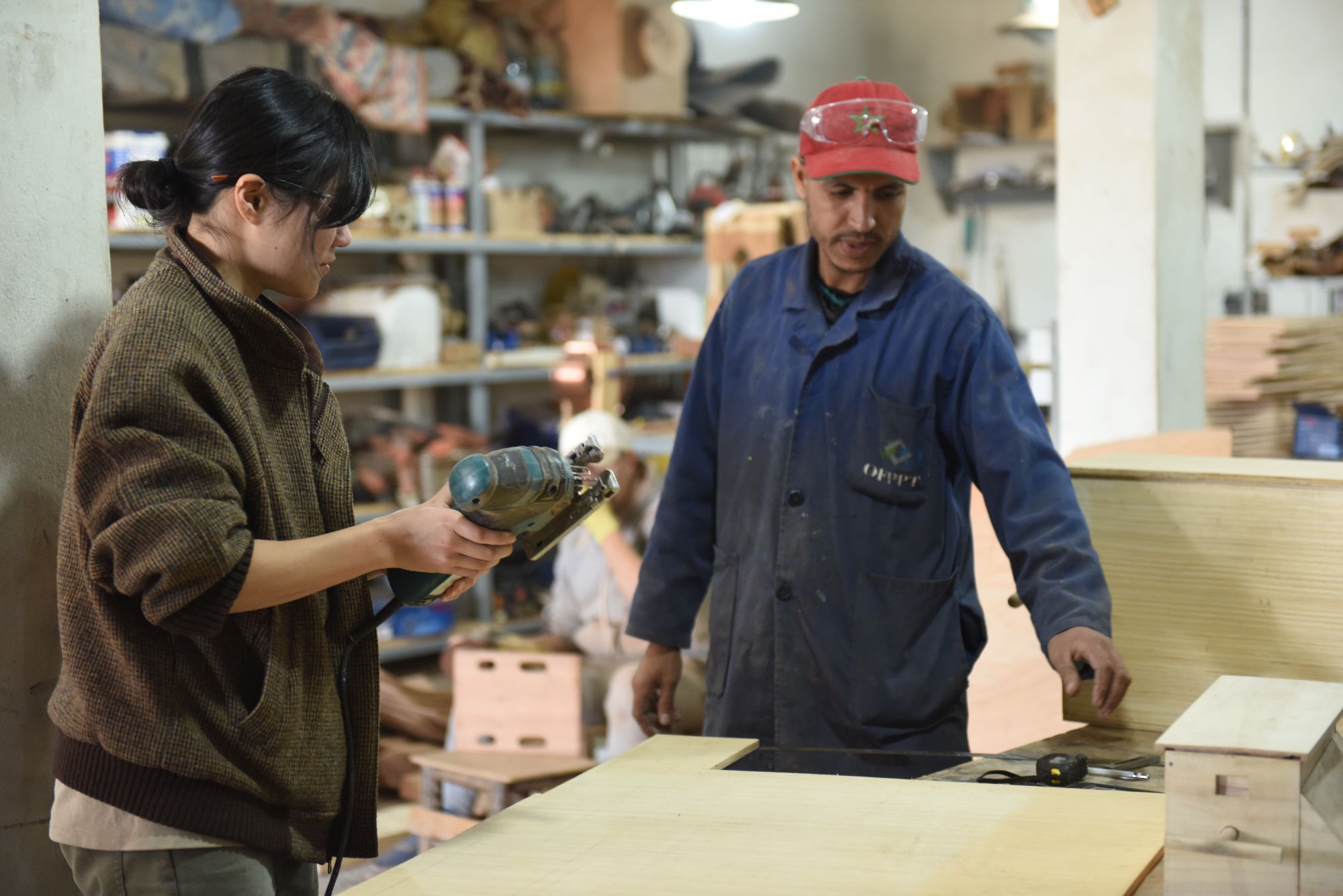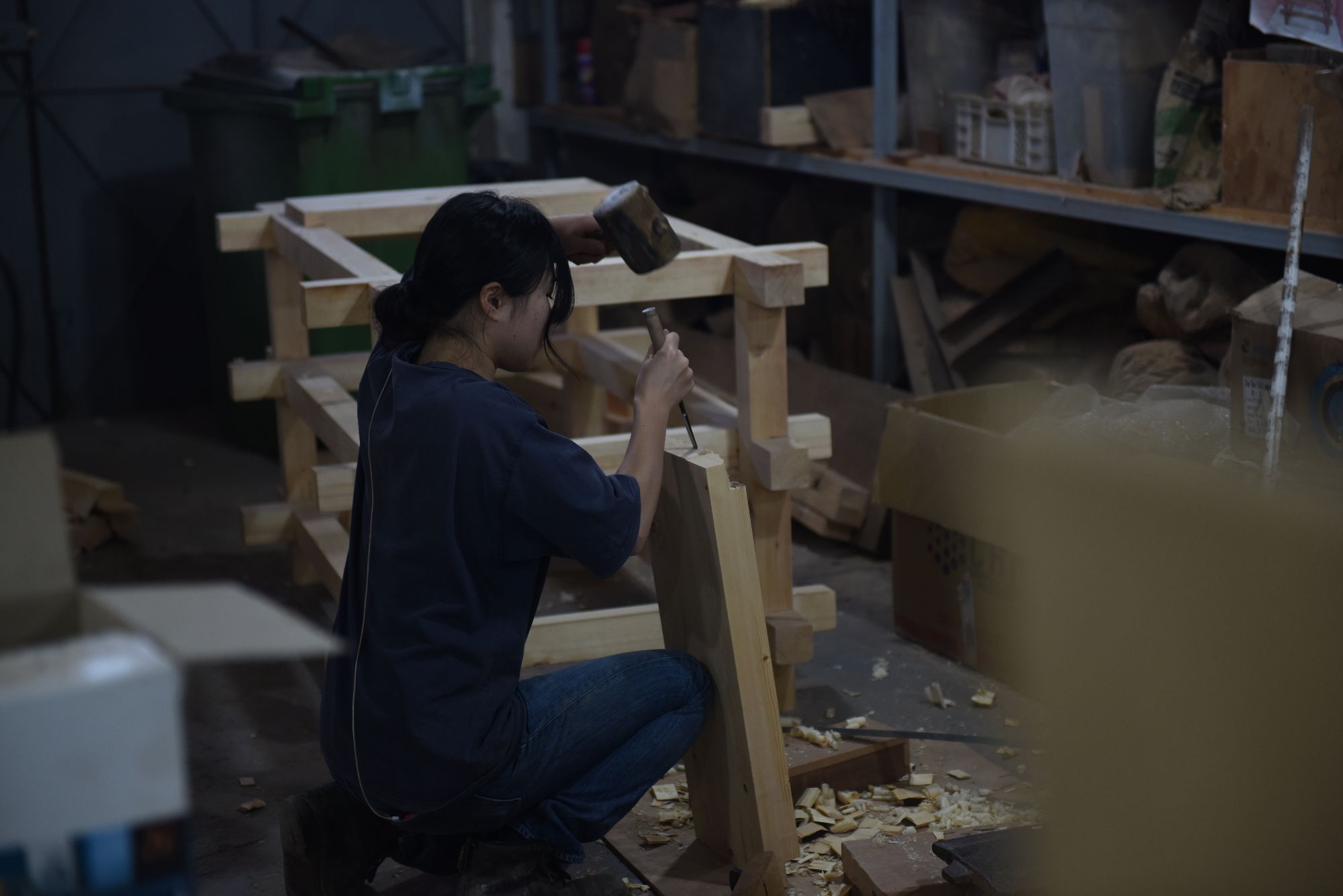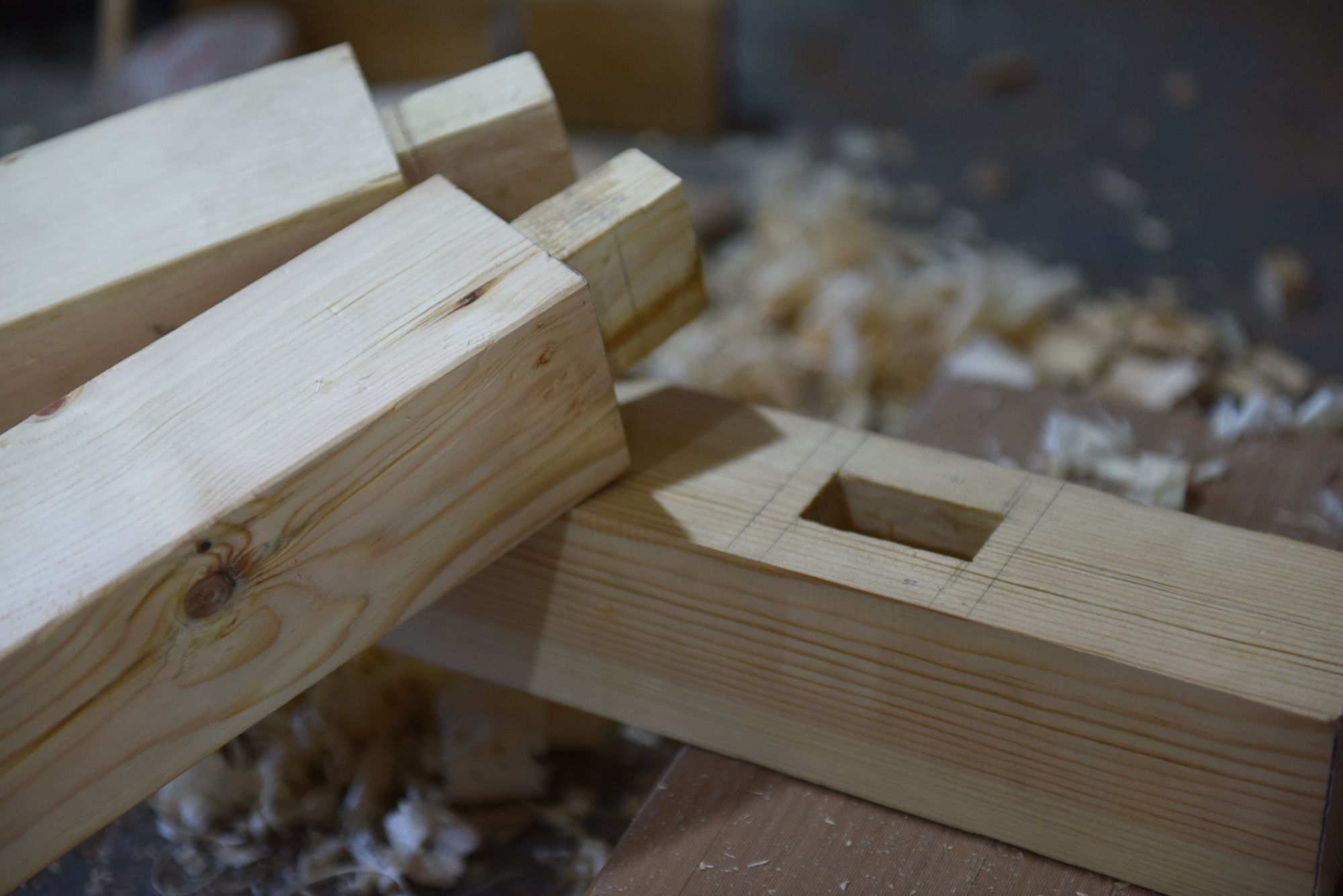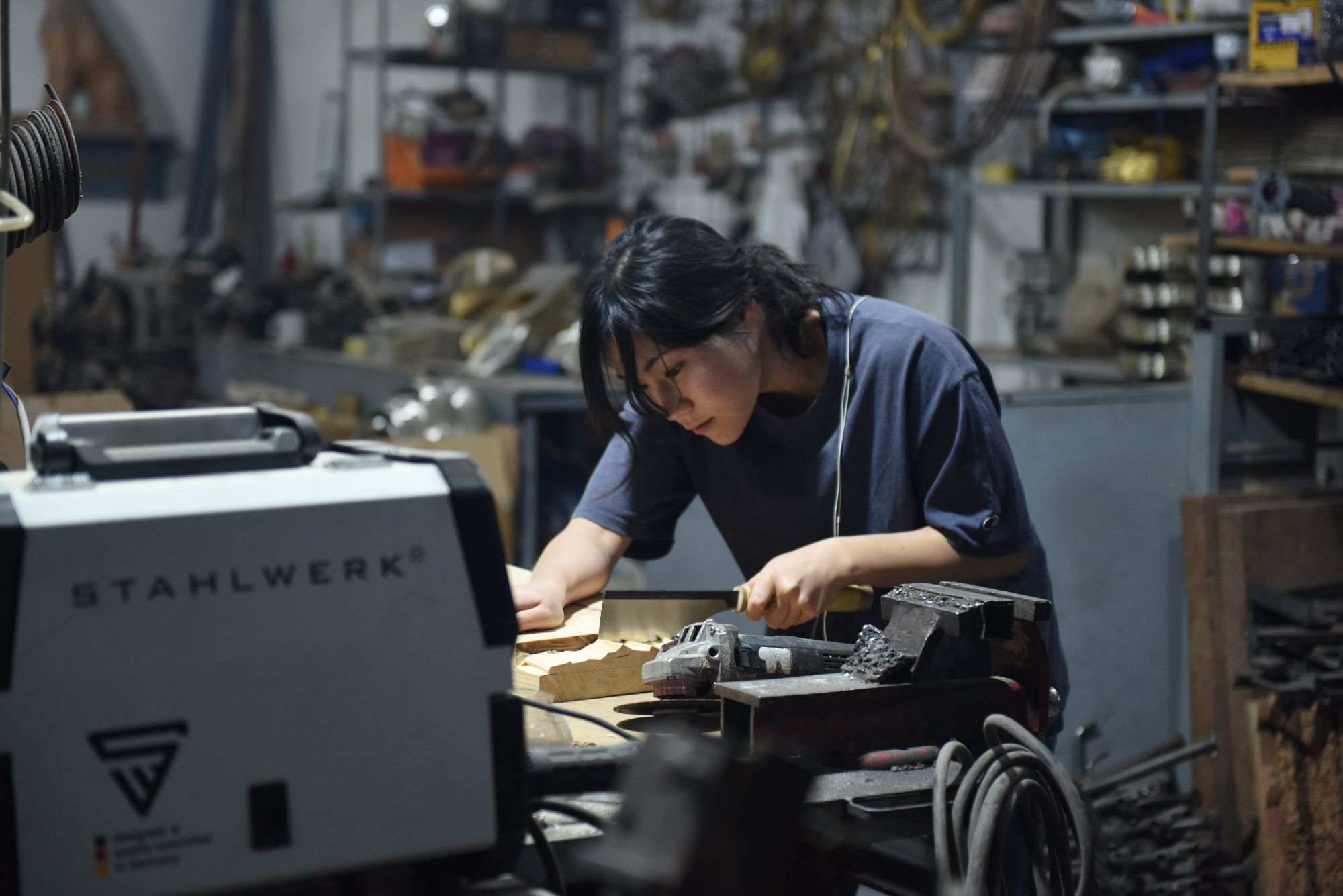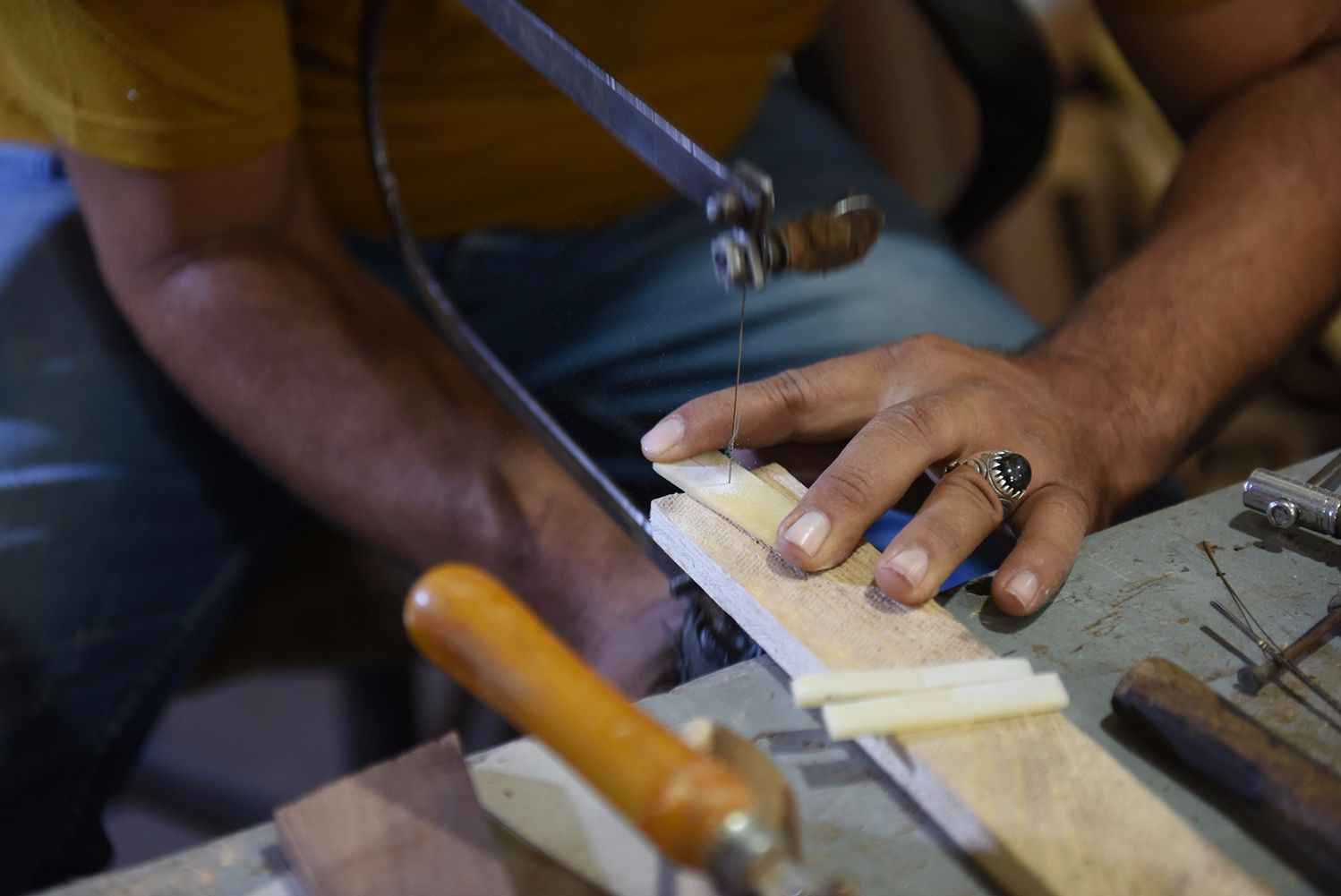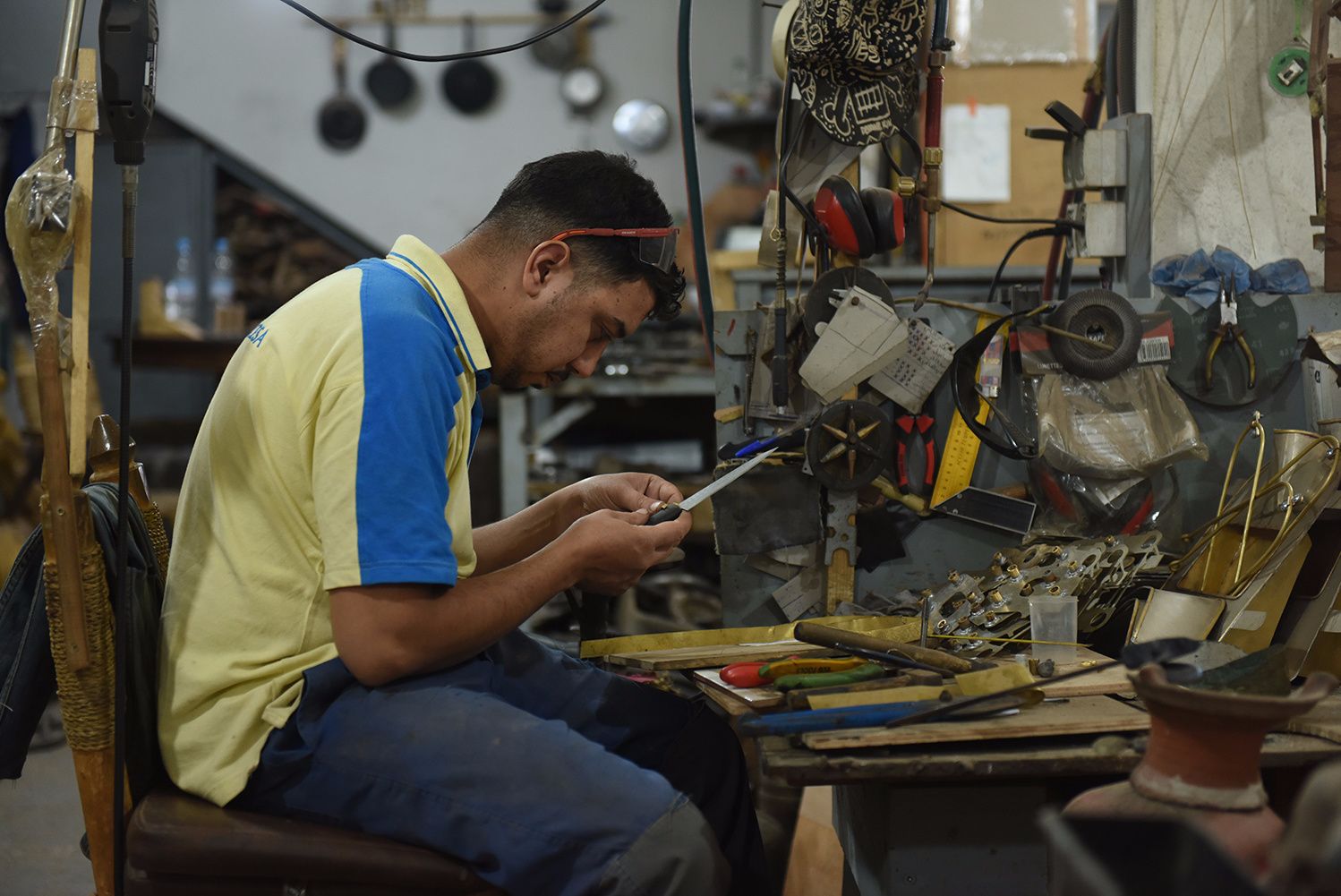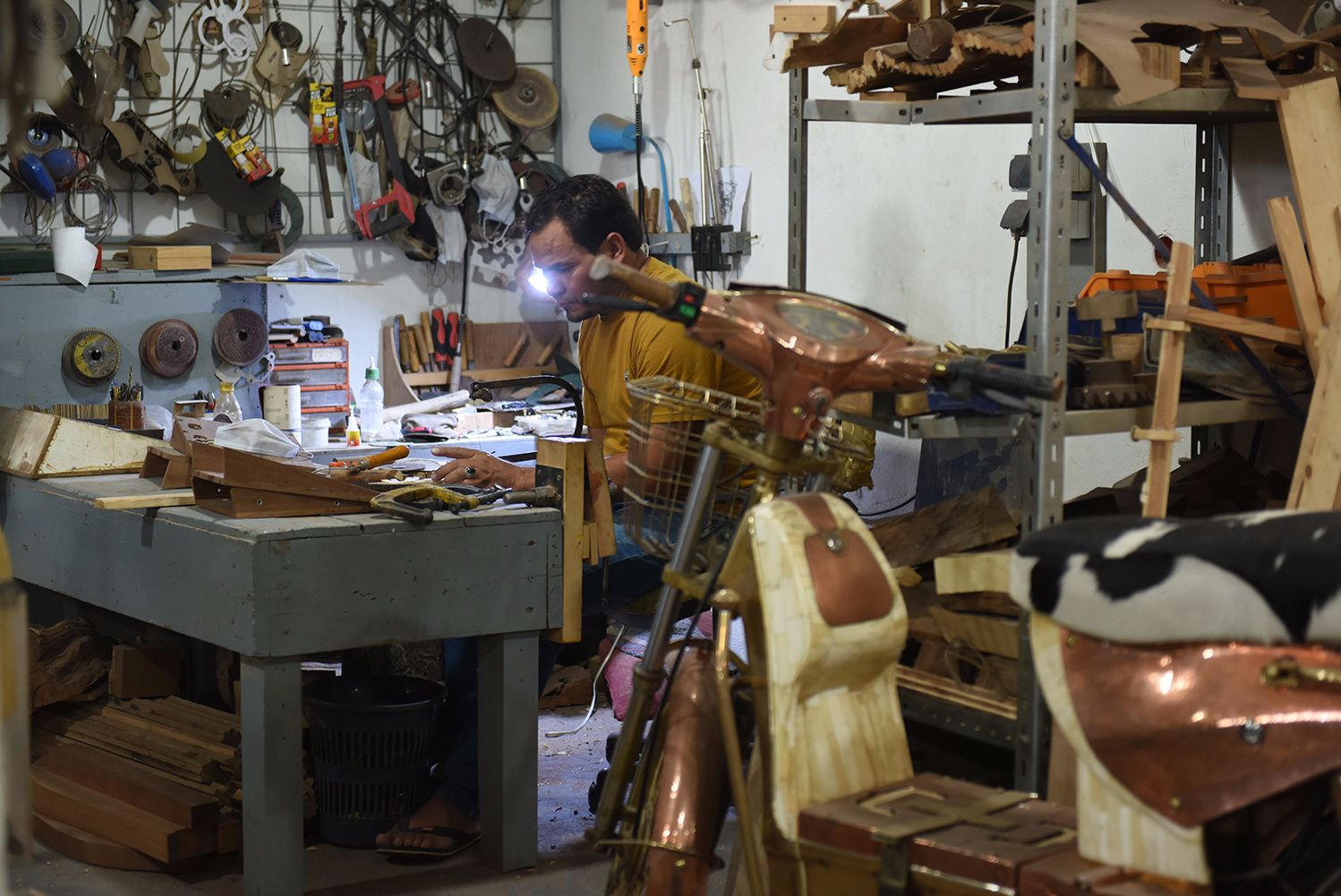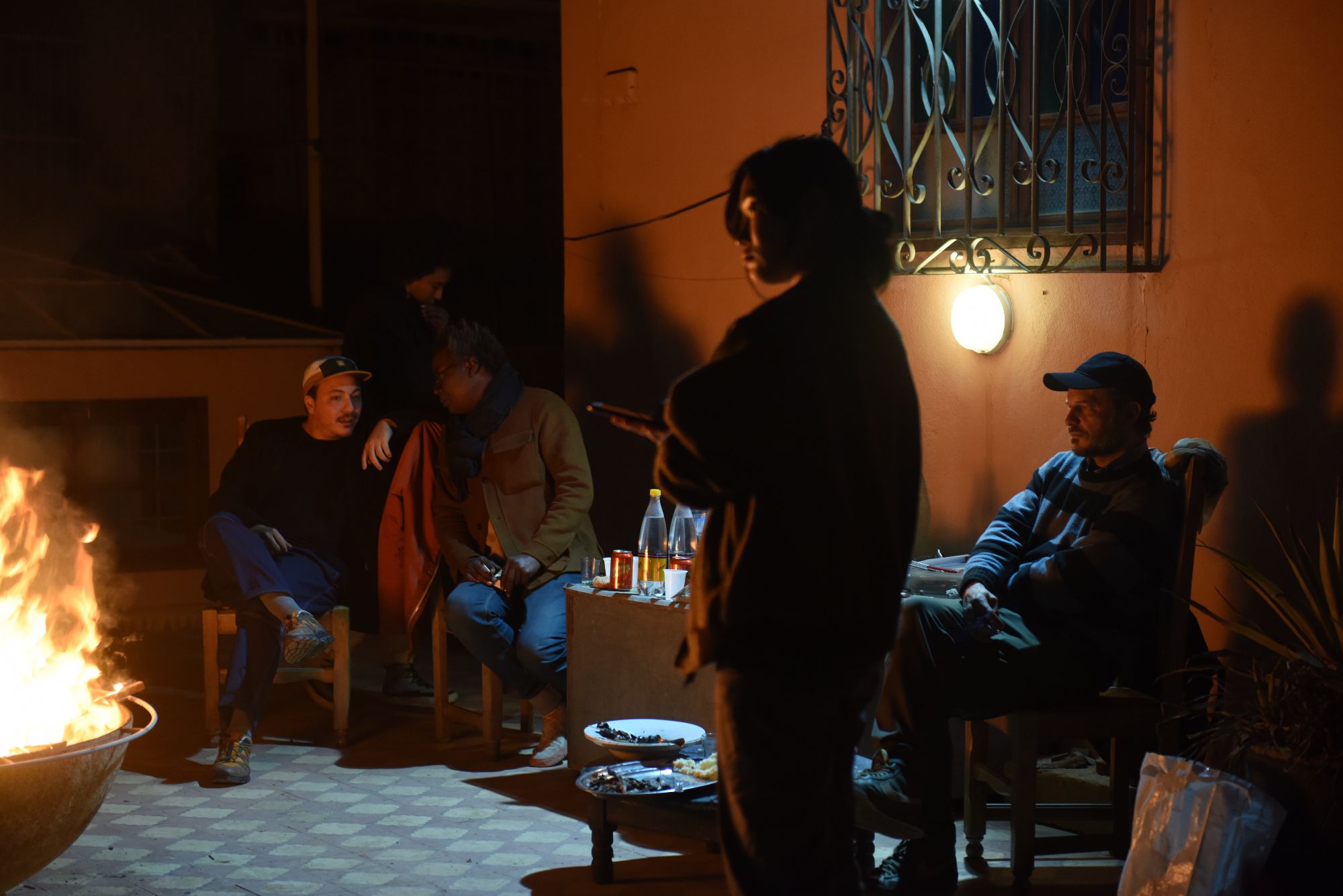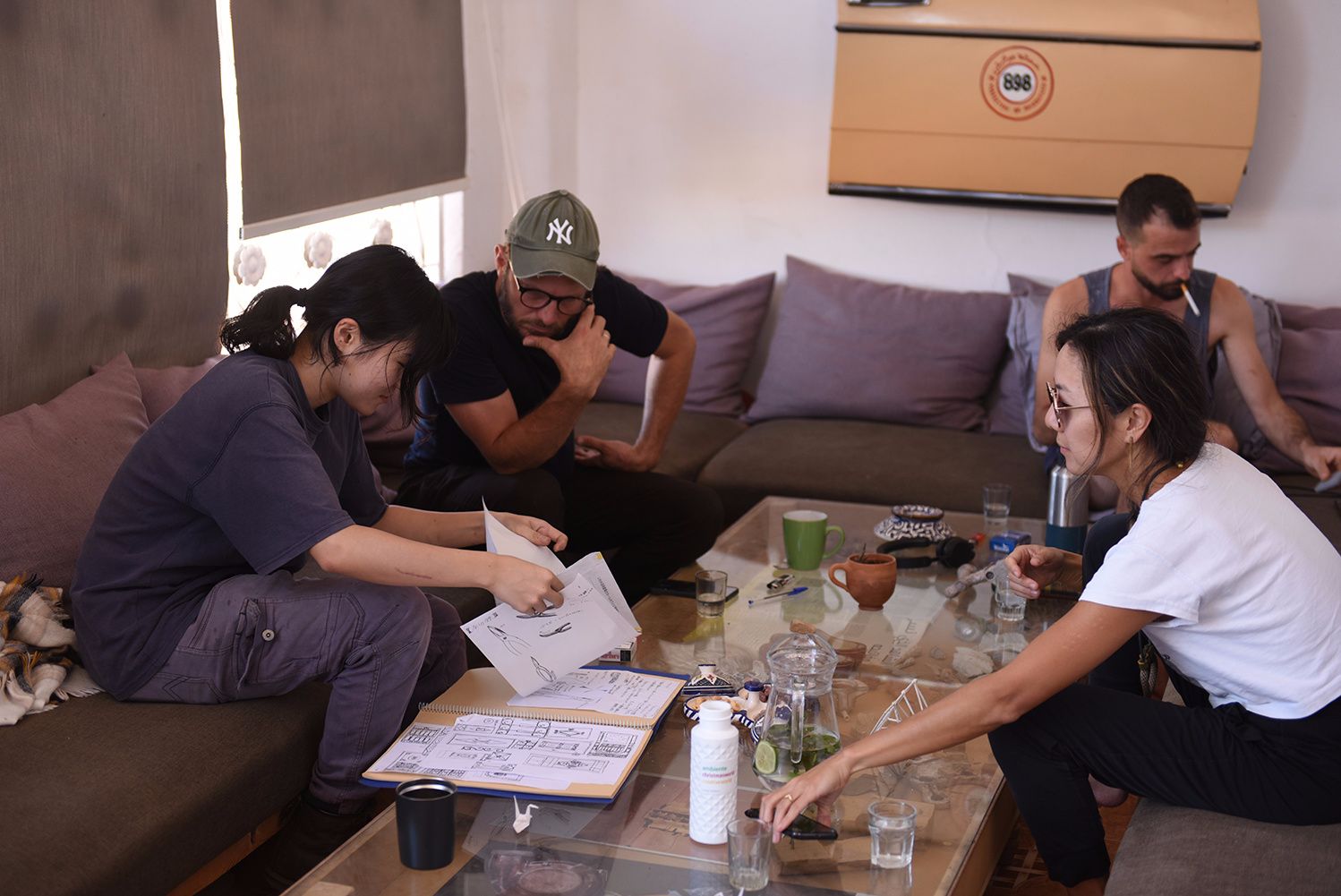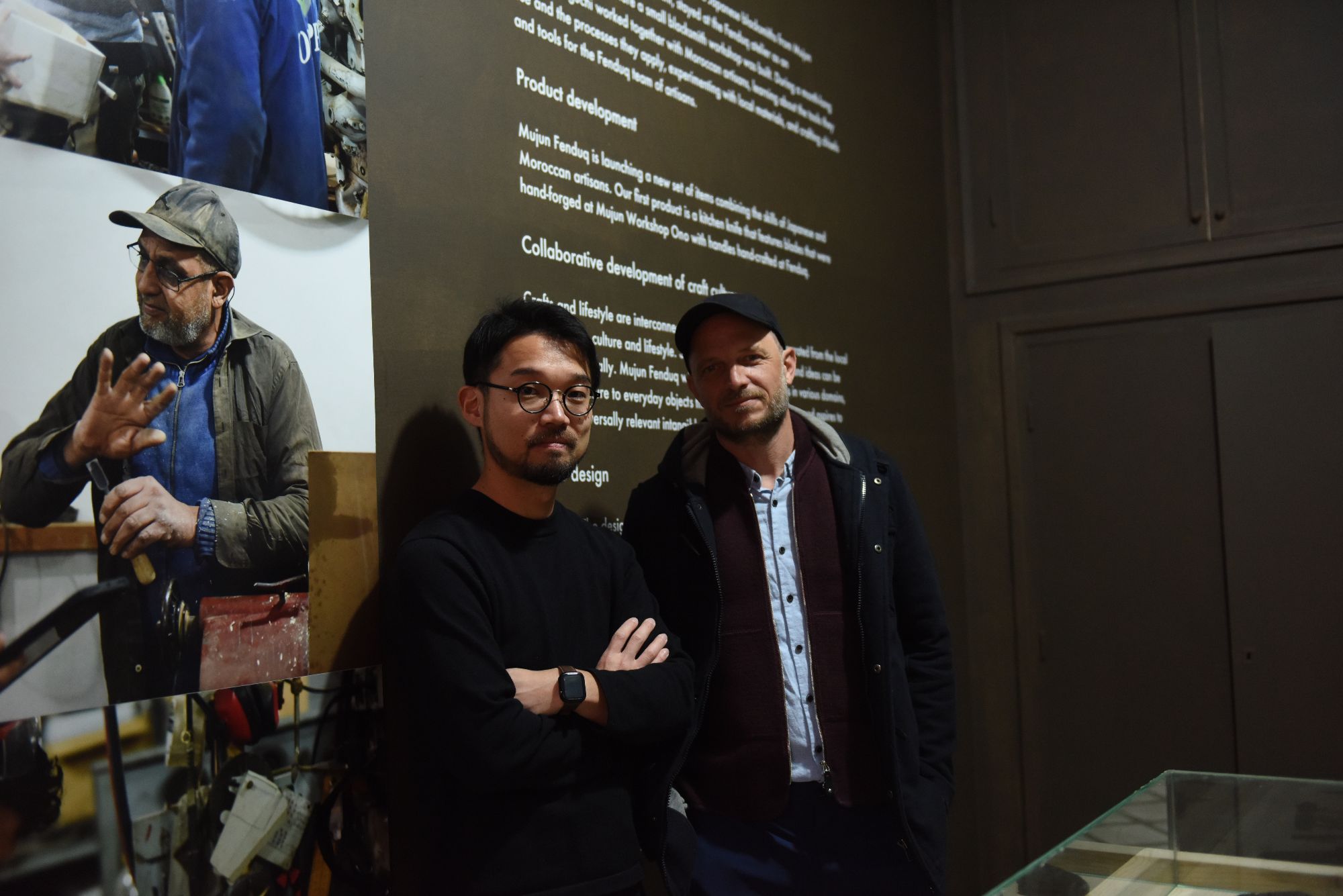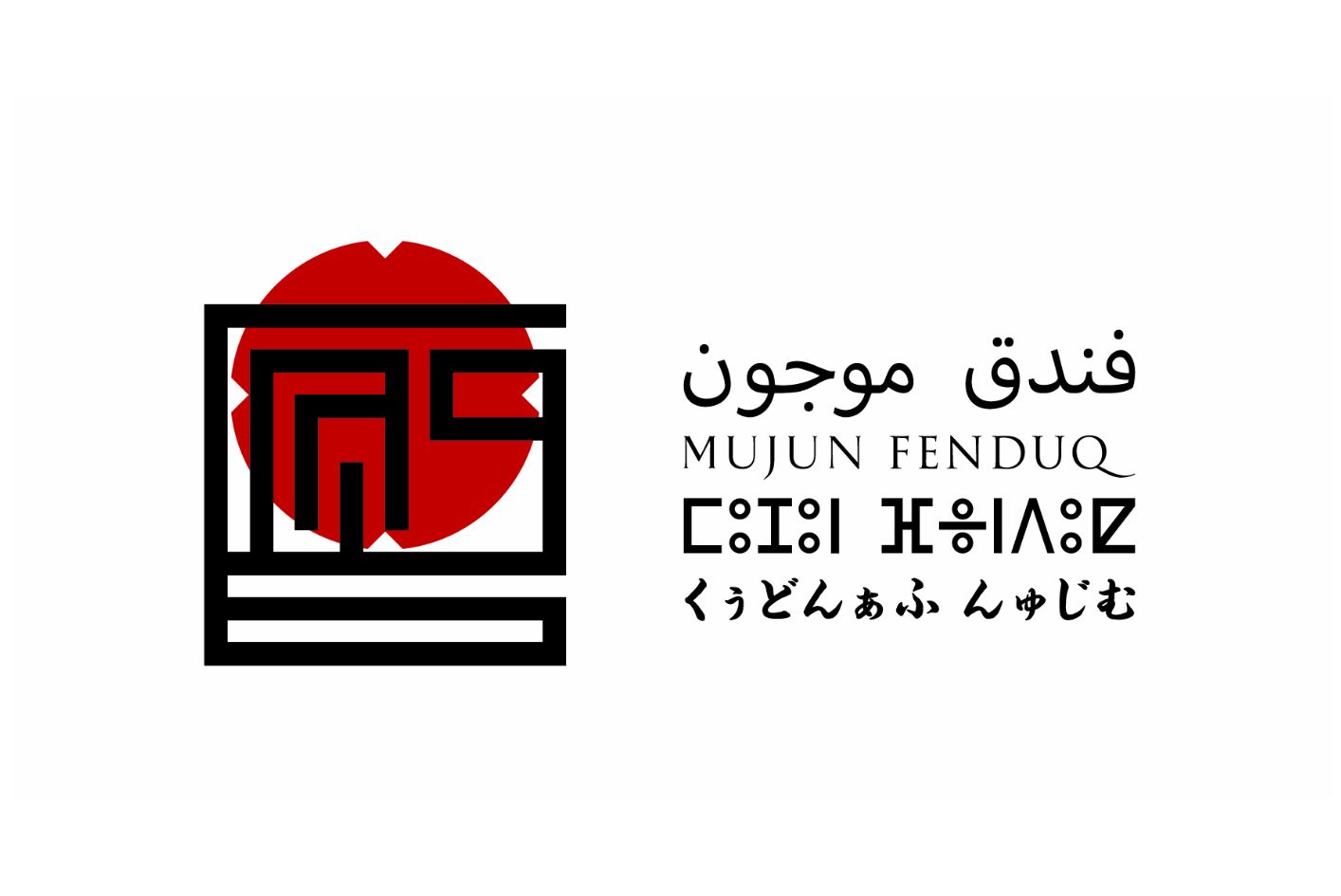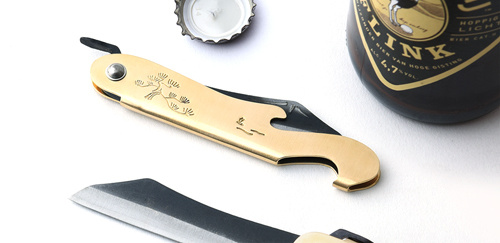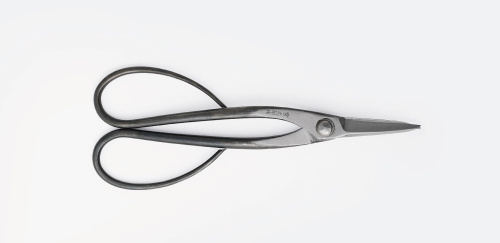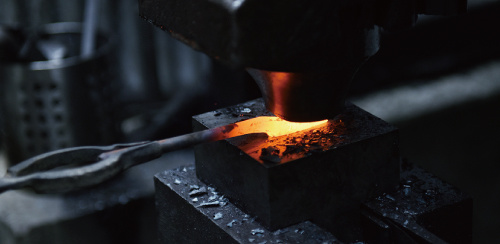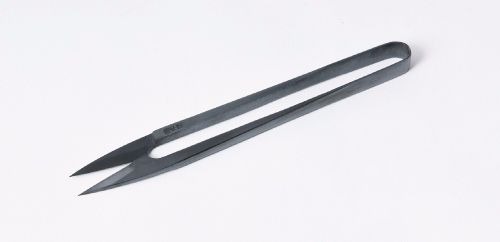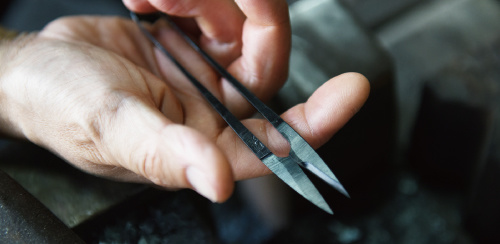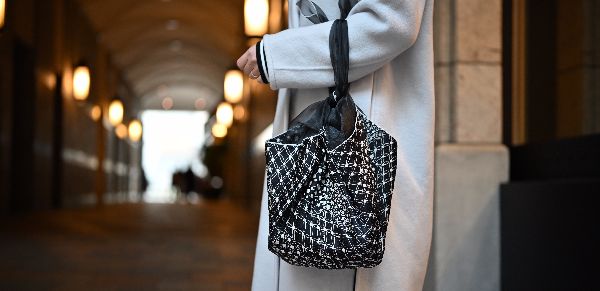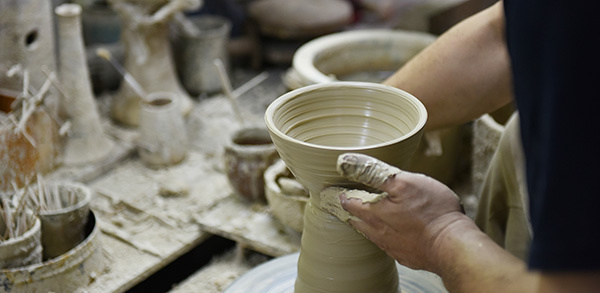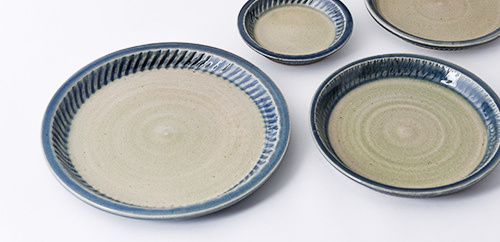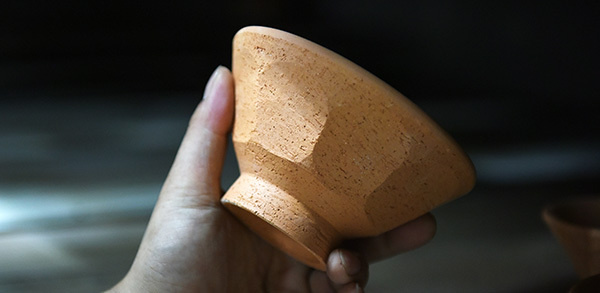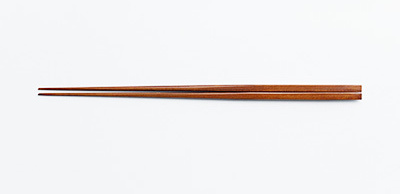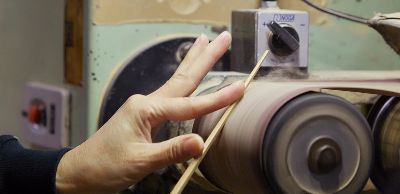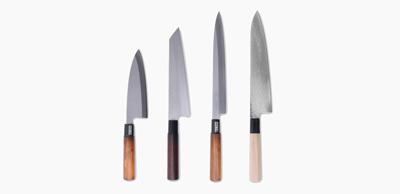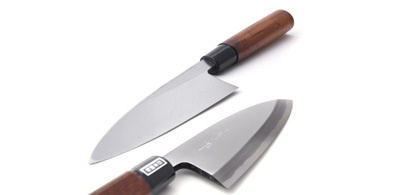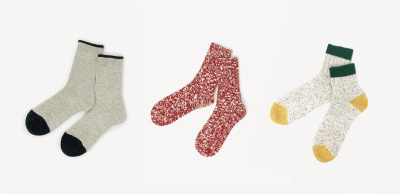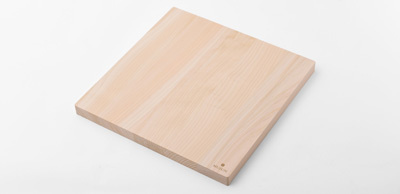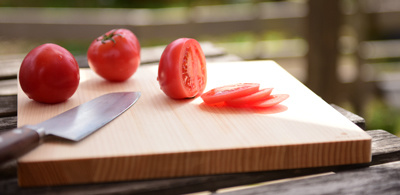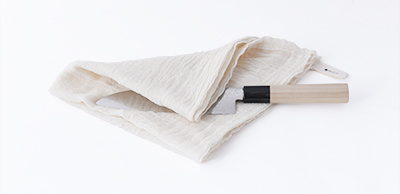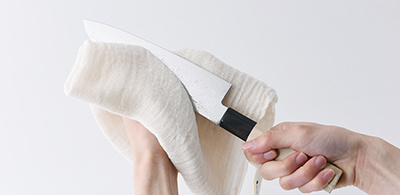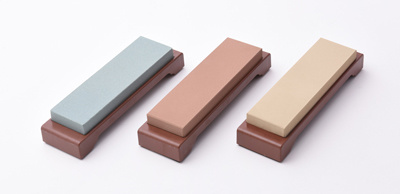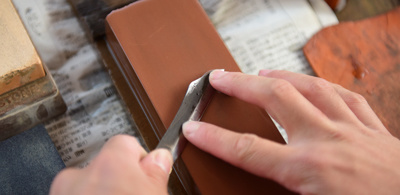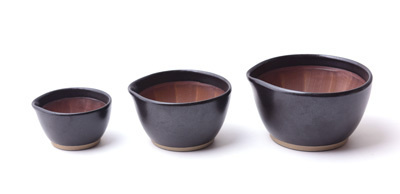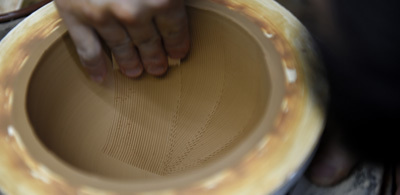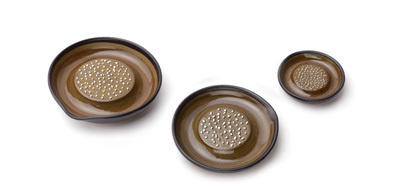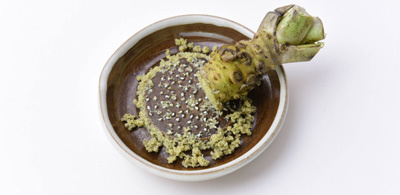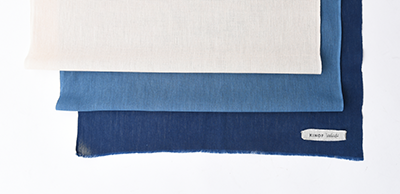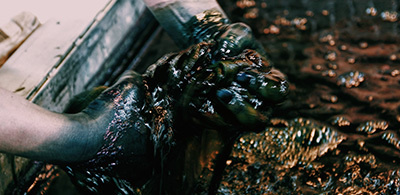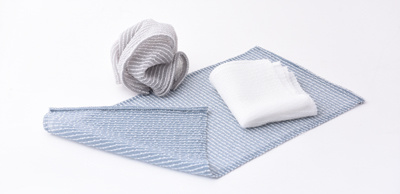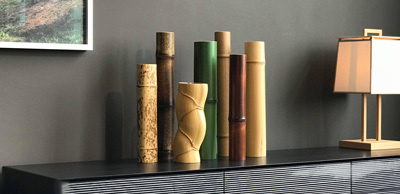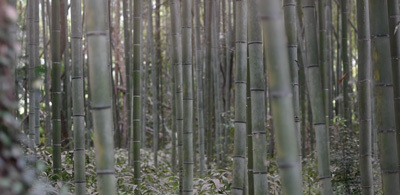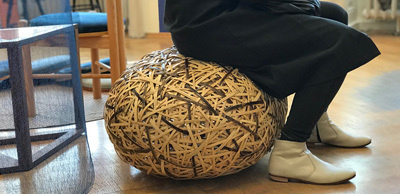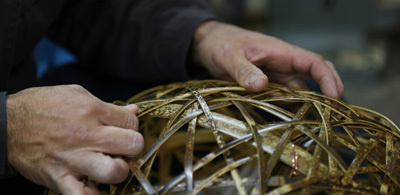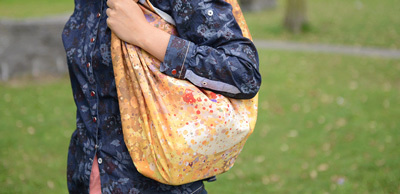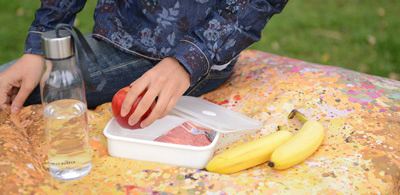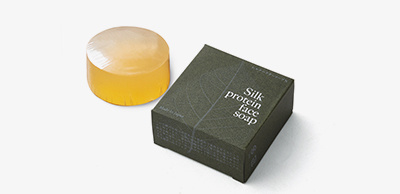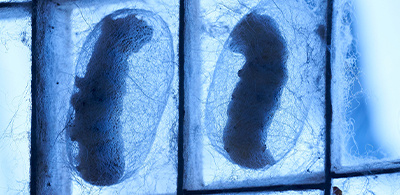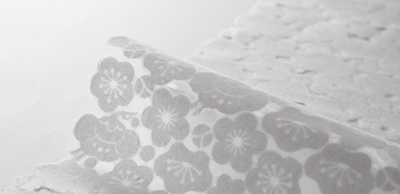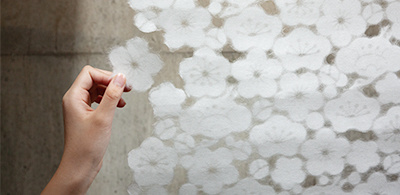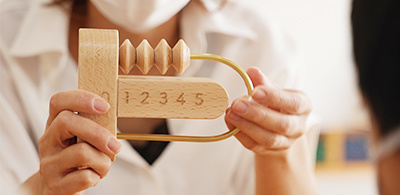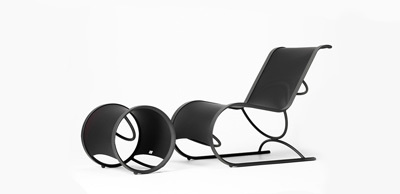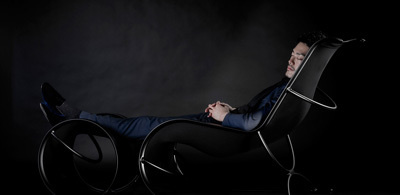
MUJUN FENDUQ
Mujun Fenduq is a collaborative development of Japanese and Moroccan craft cultures initiated by Mujun Workshop Ono and Fenduq Marrakech. Mujun, founded by Shinya Kobayashi, is a Japan-based design office that works in the traditional and contemporary craft industry. Fenduq, on the other hand, is a Marrakech-based art and craft studio initiated by Belgian artist Eric van Hove. Kobayashi and Van Hove met in February last year during the art week in Marrakech. Van Hove, who lived and studied in Japan for ten years, has a profound admiration for Japanese traditions and cultures while Kobayashi is fascinated by the potential of Moroccoʼs craft cultures that are very much still alive. The two creative minds instantly connected and decided to embark on a collaborative journey. Mujun Fenduq envisions reviving, rejuvenating, and reimagining craft cultures in Japan and Morocco.
About Eric van Hove
Moroccan-Inspired
Japanese Petty Knife
Limited edition of 100
This is our first co-branded product, created through a collaboration between Fenduq Marrakech and Mujun Workshop Ono, aiming to bring together the rich craft cultures of Japan and Morocco. The blade of this artisanal kitchen knife is forged by a young blacksmith at Mujun who has been with us for over two years, while the handle is crafted by talented Amazigh artisans at Fenduq. This knife beautifully blends the materials and techniques of two different cultures.
If you would like to order this product, please contact us by email.
Mrs. Misato Kobayashi / MUJUN
E-mail: ono@mujun.co.jp
Kimono Kaftan
Kimono Kaftan was crafted by Fadilah (فضيلة), a skilled artisan based in Fez, who has been perfecting her craft for 35 years. Coming from a family of artisans―her father being a caftan maker― Fadilah is deeply committed to her craft. She skillfully creates both traditional and modern caftans, tailored to clients’ requests. Fadilah’s eye for design and expertise in producing high-quality work are highly regarded by industry professionals.
For these special pieces, she worked with vintage kimonos inherited by Mujun’s Kobayashi from his late grandmother, Hiroko. Fadilah was thrilled about this project the moment she saw the vintage kimono textiles and went on to create elegant, modern Kimono Kaftans while preserving the original beauty of the kimonos. “By crafting with kimono, I felt like I traveled to Japan,” Fadilah shared, expressing her hope for more such opportunities in the future.
One-of-a-Kind Kimono Kaftan
#1: Noir (jacket-style Kimono Kaftan)
#2: Sakura (modern Kimono Kaftan)
#3: Hiroko (classic Kimono Kaftan with a matching belt)
Kamedani Tajine
This tajine pot is crafted in collaboration with Kamedani Yogyo, a historic kiln in Shimane, Japan, with over 200 years of tradition in producing authentic Kimachi roof tiles, or kawara in Japanese. Committed to using locally sourced materials such as clay and stones, the maker partners with skilled artisans specialising in decorative tiles, known as onishi. Their exceptional craftsmanship has earned recognition from luxury hotels and restaurants. This unique tajine pot is created by an onishi-artisan and inspired by an authentic piece that has been brought from Marrakech to Japan.
Artisan-in-residency
(Marrakech, 2023-2024)
From September to October 2023, one of the Japanese blacksmiths from Mujun Workshop Ono, Koharu Yamaguchi, stayed at the Fenduq atelier as an artisan-in-residence, where a small blacksmith workshop was built. During a month-long stay, Yamaguchi worked together with Moroccan artisans, learning about the tools they use and the processes they apply, experimenting with local materials, and crafting chisels and tools for the Fenduq team of artisans.
Product development
Mujun Fenduq is launching a new set of items combining the skills of Japanese and Moroccan artisans. Our first product is a kitchen knife that features blades that were hand-forged at Mujun Workshop Ono with handles hand-crafted at Fenduq.
Collaborative development of craft cultures
Crafts and lifestyle are interconnected. Artisansʼ work cannot be separated from the local environment, culture and lifestyle. Simultaneously, skills, knowledge and ideas can be shared universally. Mujun Fenduq will explore possibilities of crafts in various domains, from architecture to everyday objects through collaborative dialogues, and aspires to establish universally relevant intangible assets.
Forge design
Concept: The design of our forge incorporates elements from both Japan and Morocco, symbolizing this cross-cultural collaboration. Historically, the forge has been considered sacred in Japan as a space for giving birth to something new. It is said that the word hodo, firebed in Japanese, comes from the ancient Japanese word hoto meaning vagina, literally a place to give birth, or lʼ origine du monde. Steel making and blacksmithing were essential in the ancient lifestyle because steel was used for weapons as well as farming tools. Coincidentally, various Amazigh symbols represent fertility and life. The forge, in fact, is our lifeʼs foundation.
Design inspirations:
We drew inspirations from the common aspects in the spatial design found in Japan and Morocco: the Moroccan tadelakt (a traditional waterproof decorative plaster) and the Japanese earthen floor as well as the Amazigh cave house and the Japanese blacksmith workshop.
Features:
・The wall color is inspired by the Moroccan soil while the chimney resembles a small window in a Moroccan house.
・A Japanese traditional blower, fuigo, is installed on both sides.
・Traditional Amazigh motifs symbolizing fertility and creativity were used.

